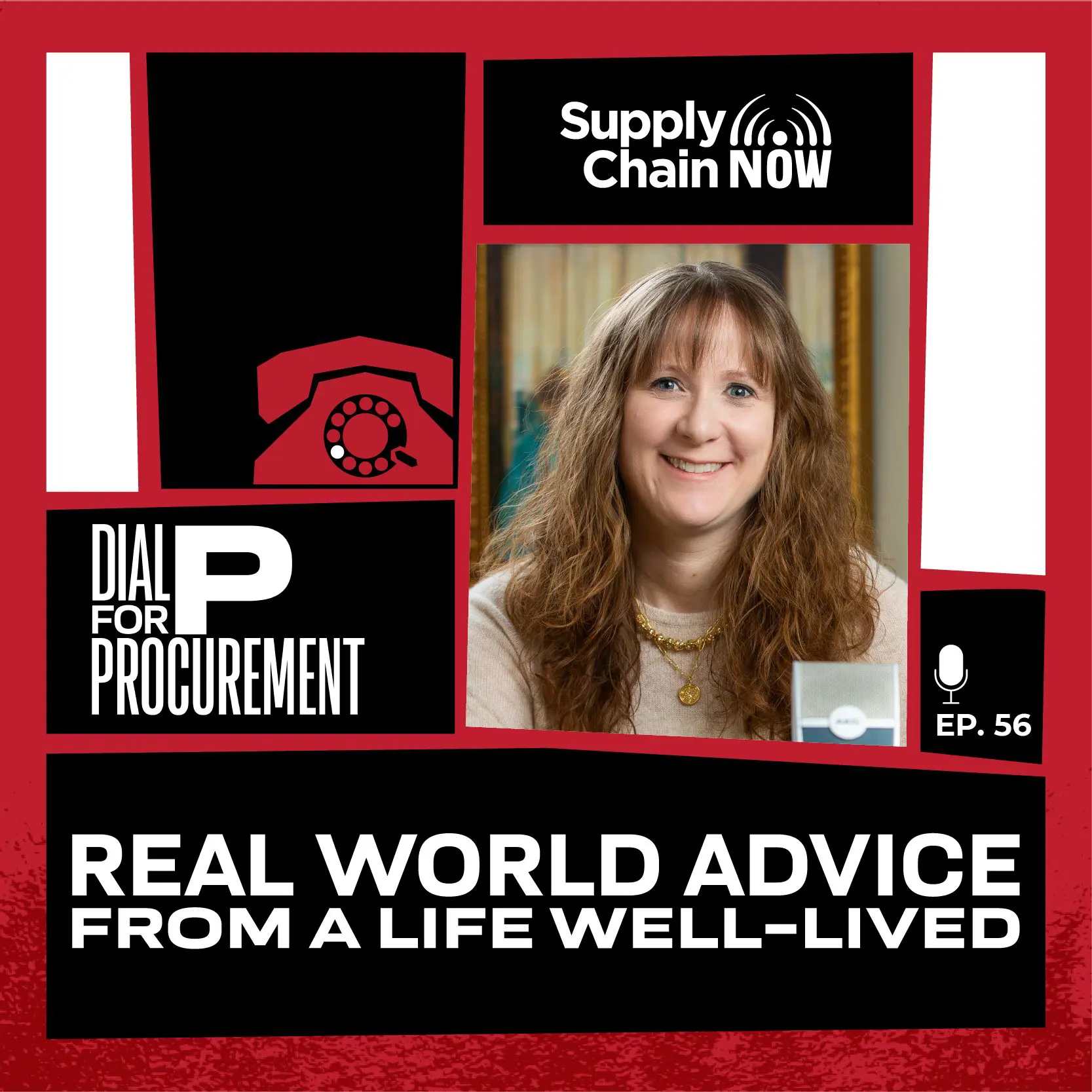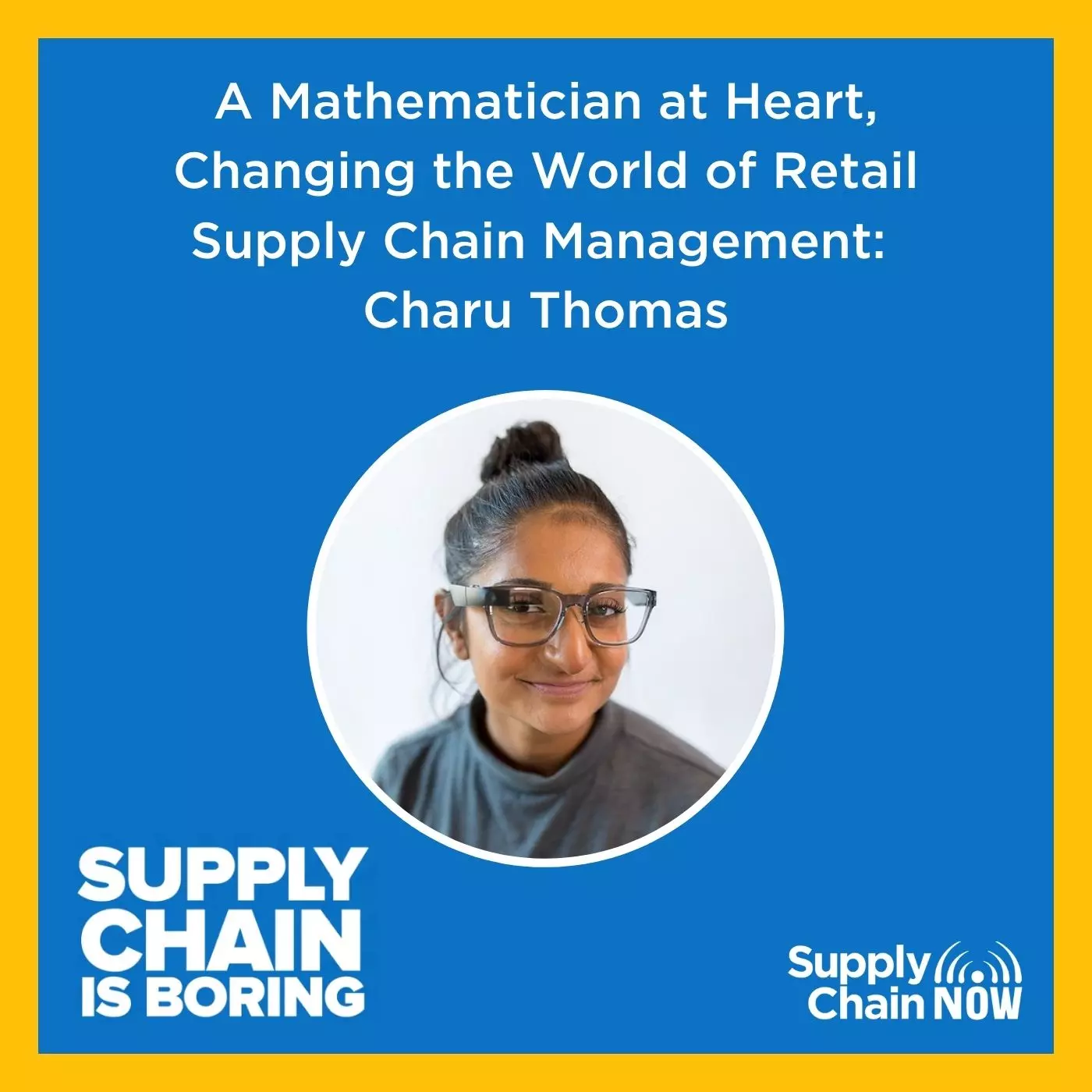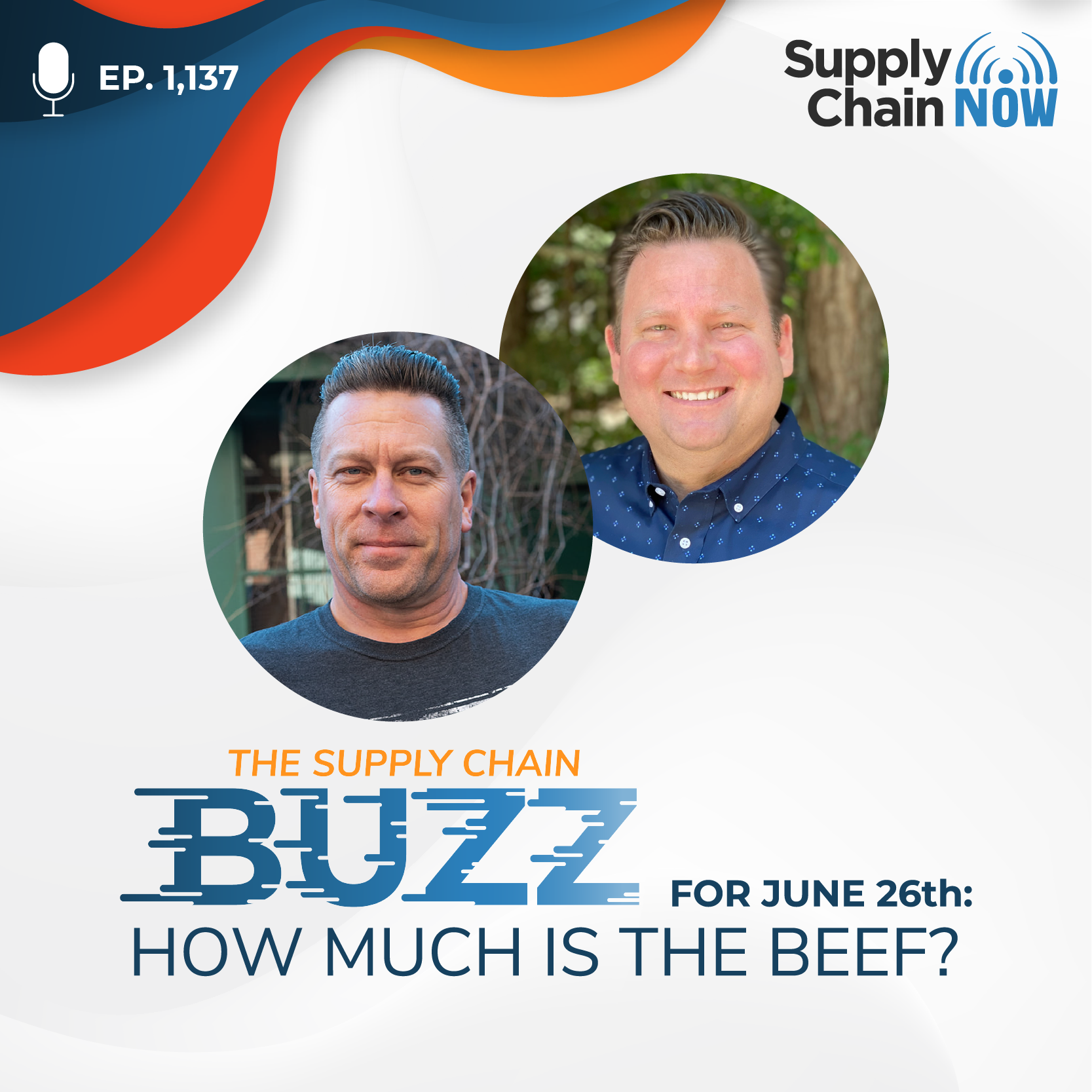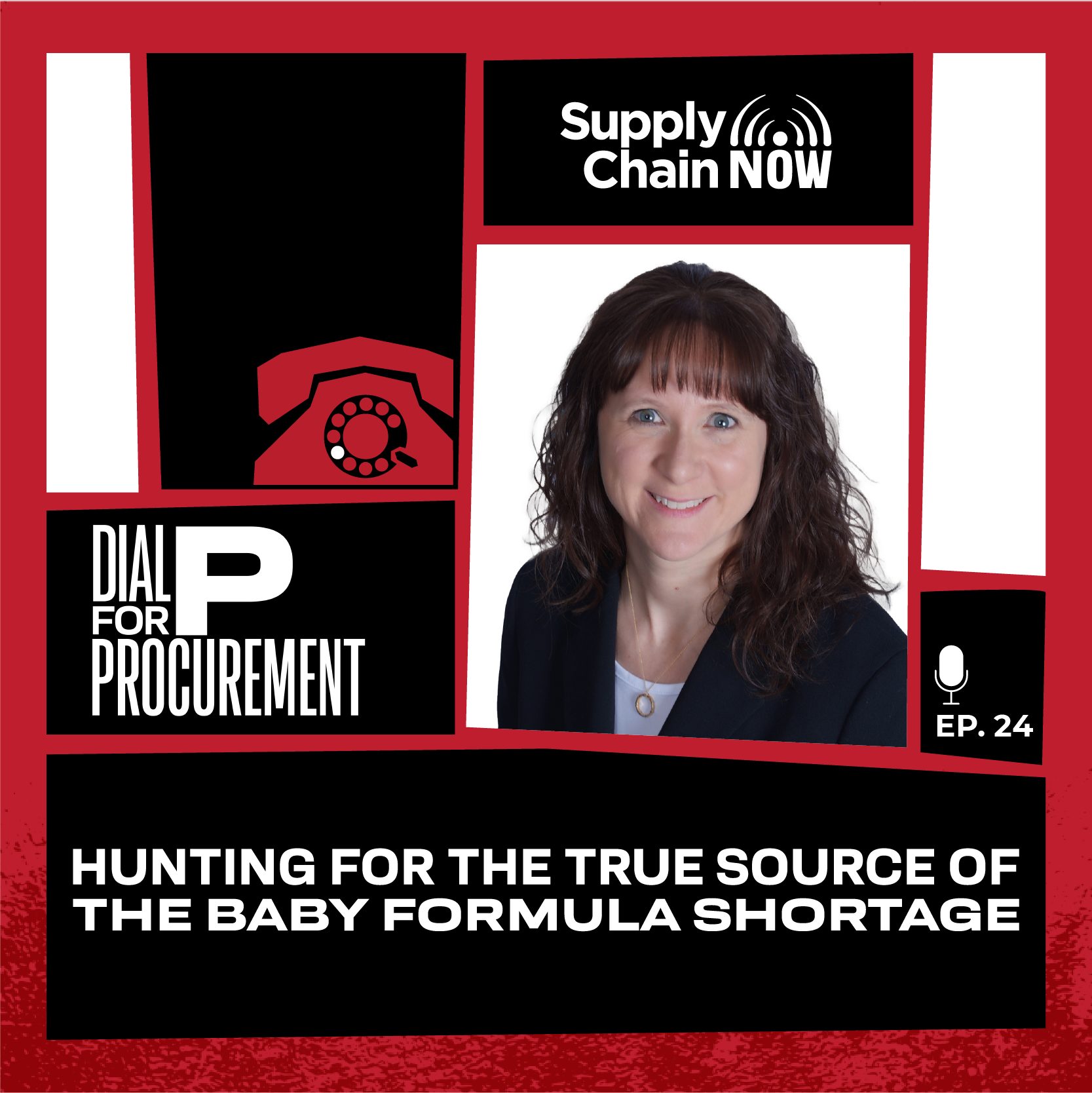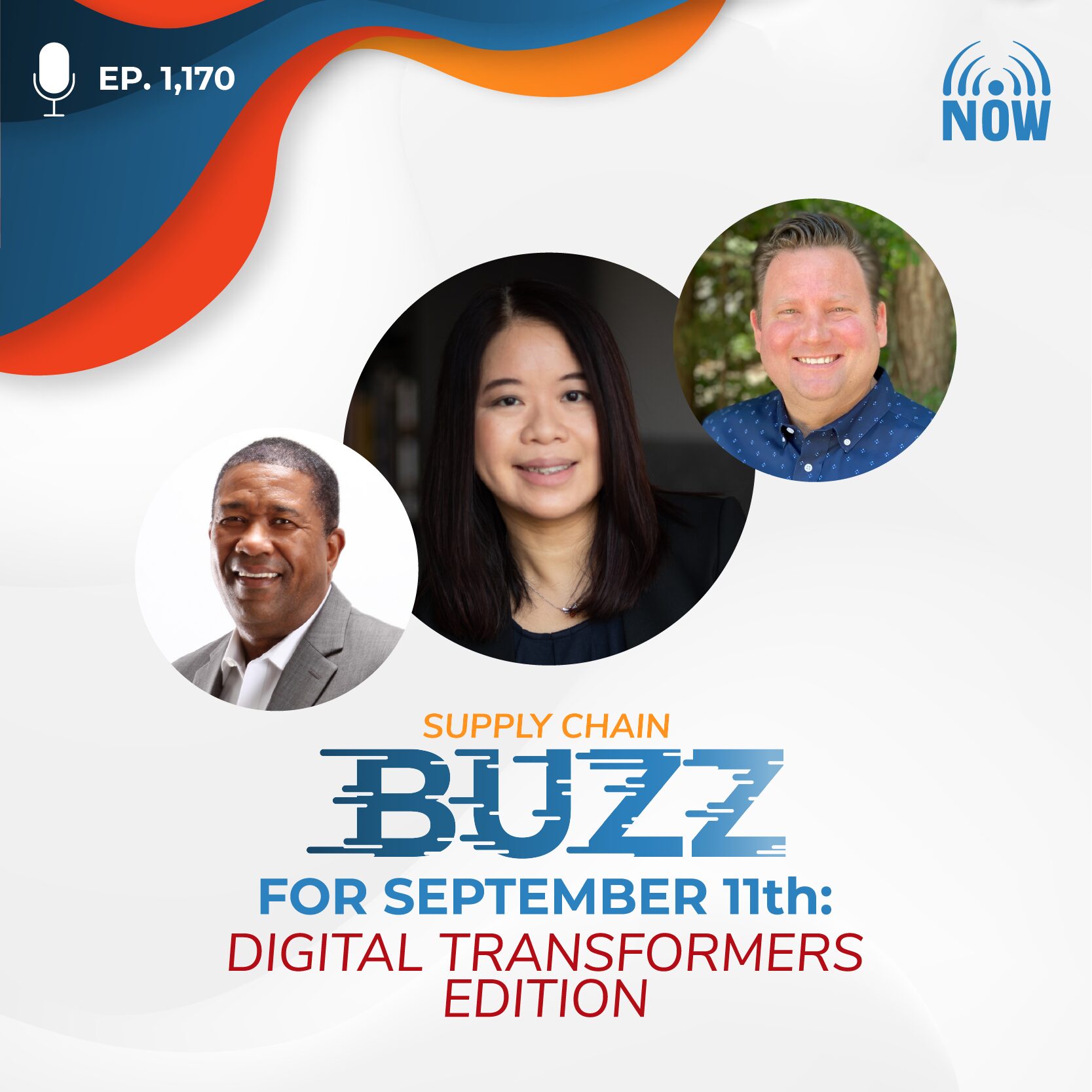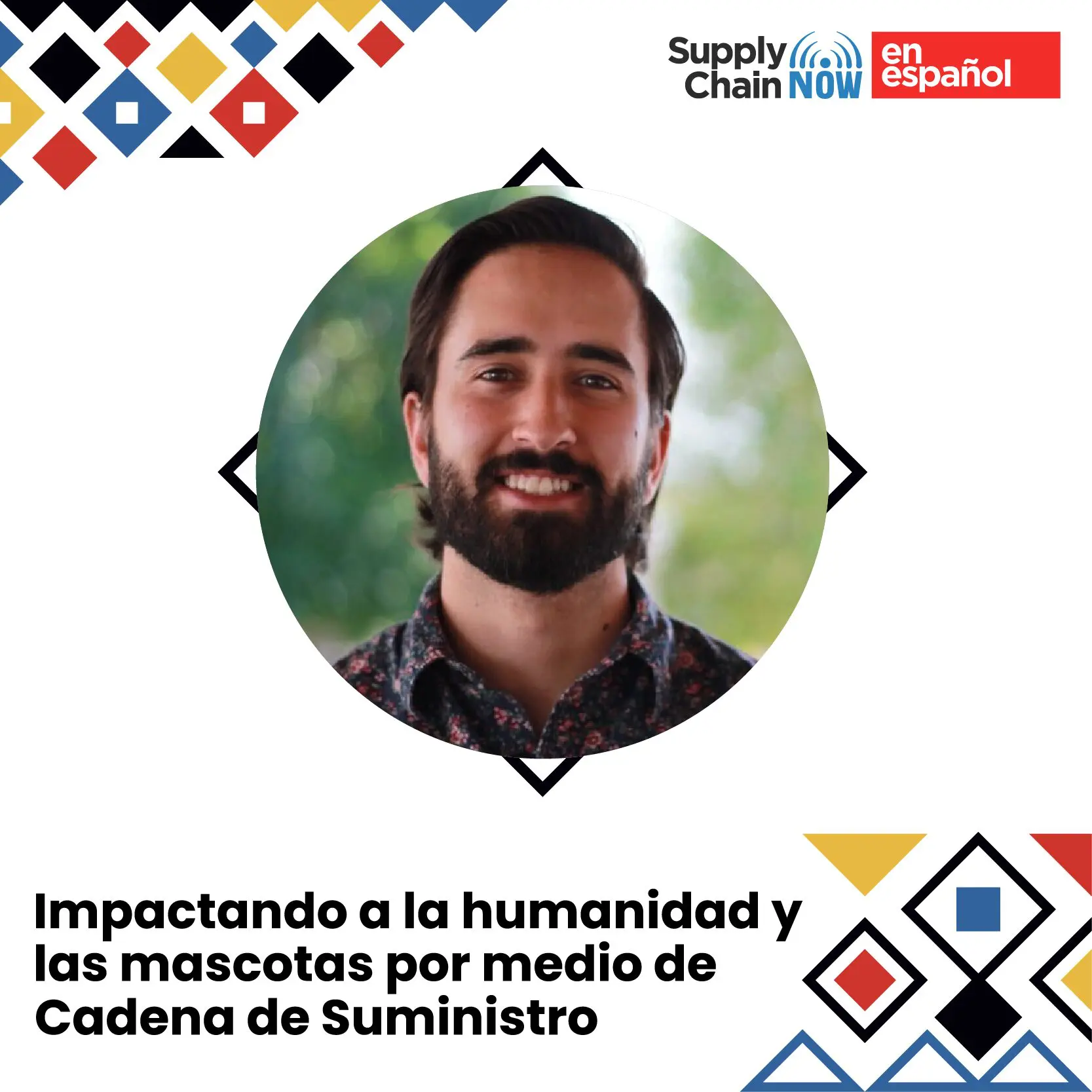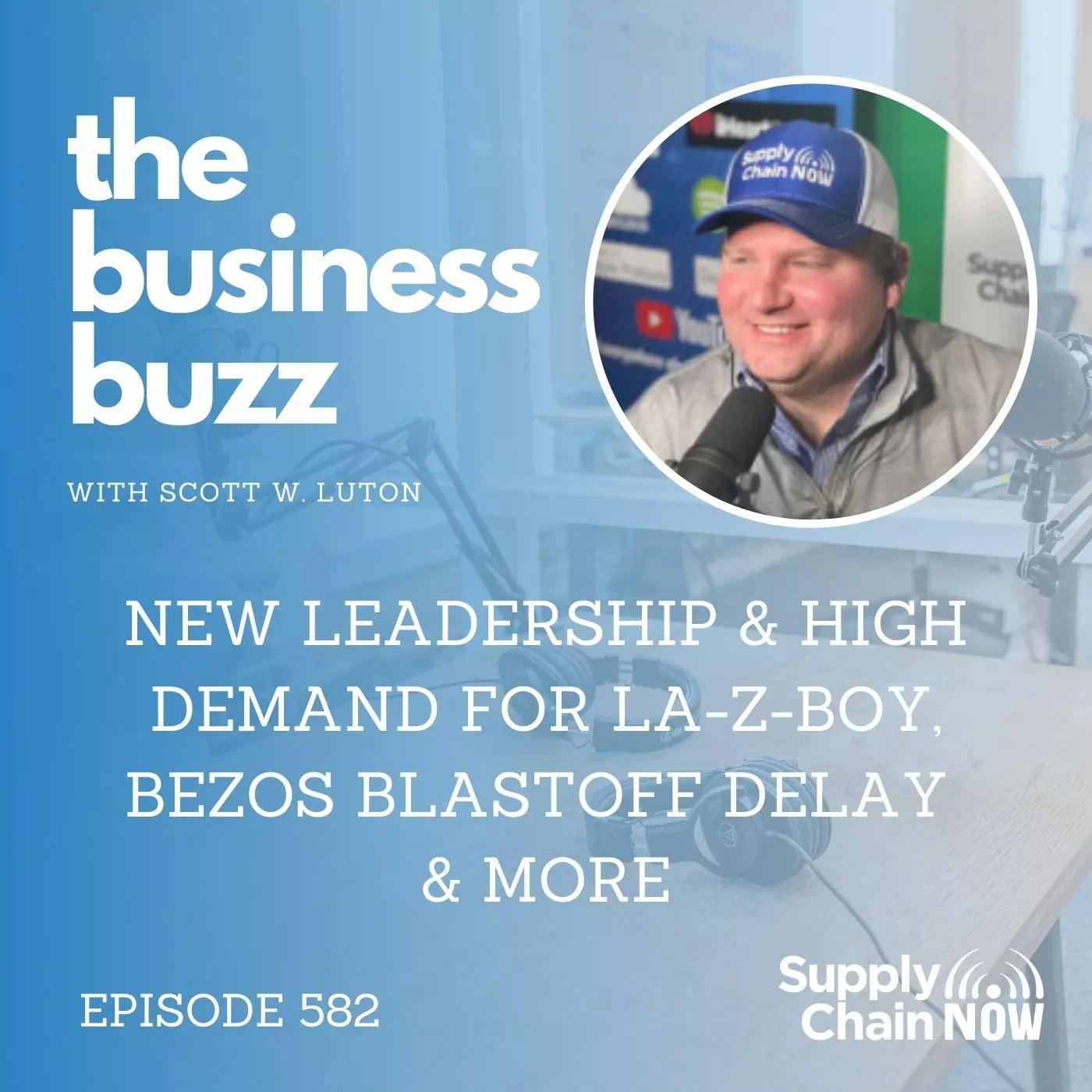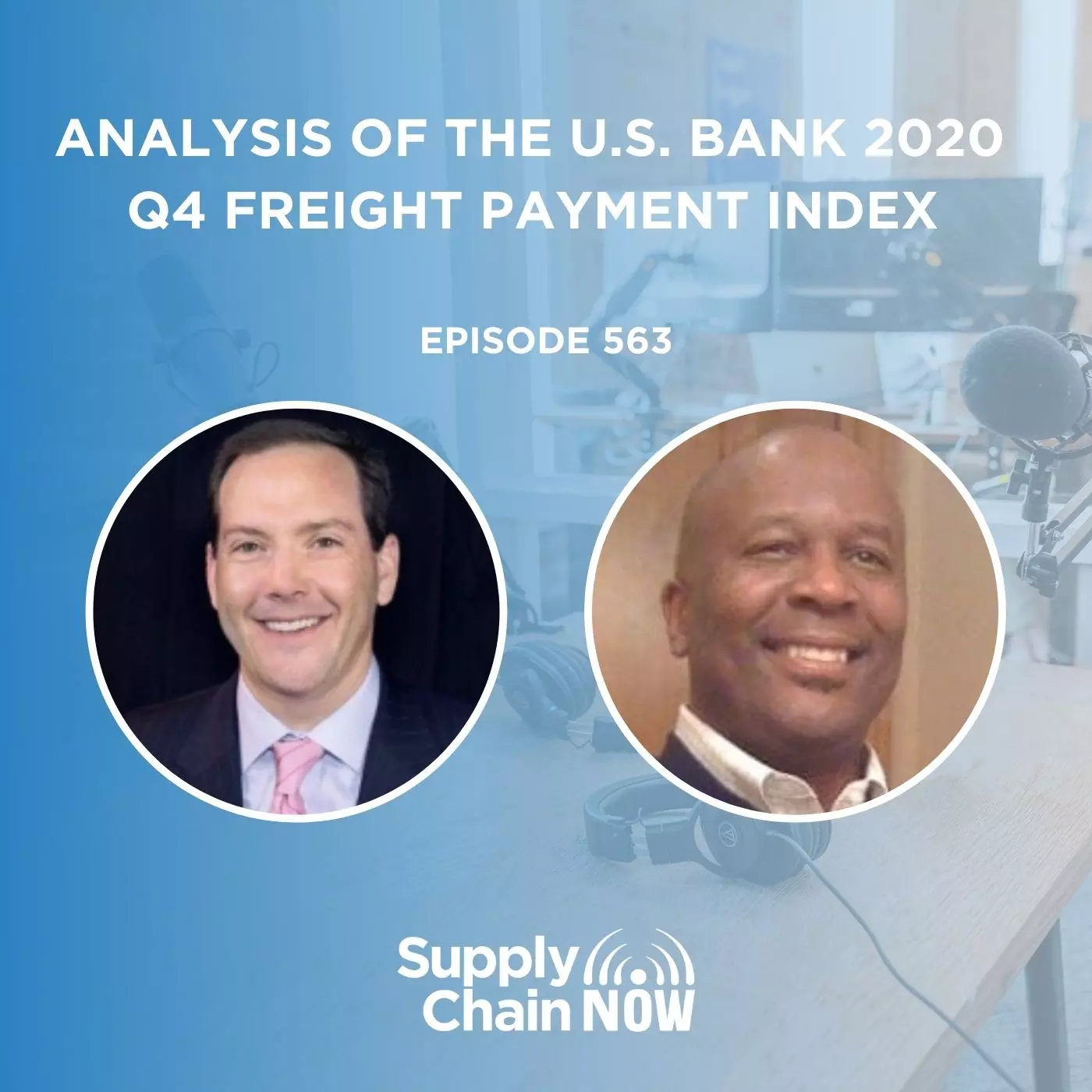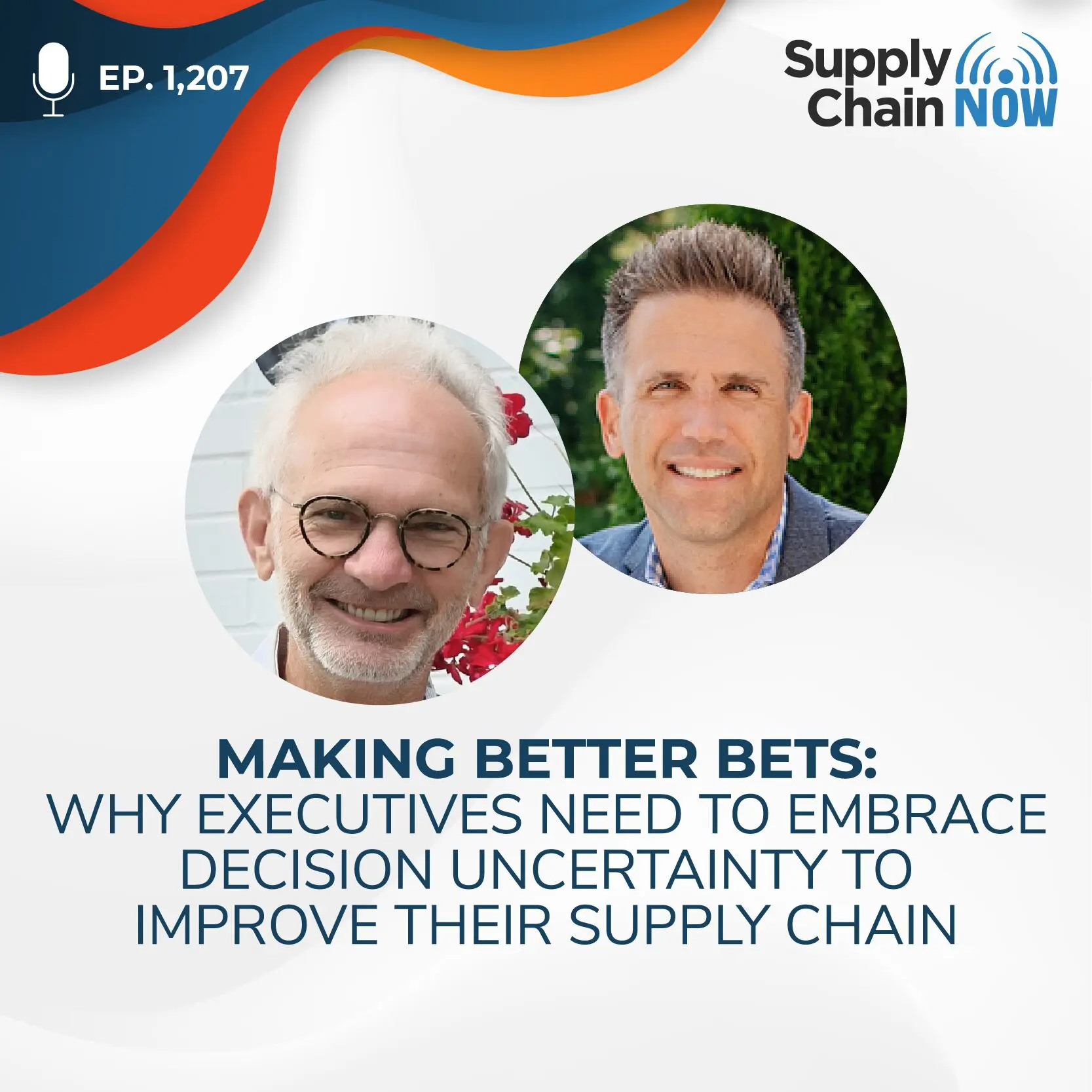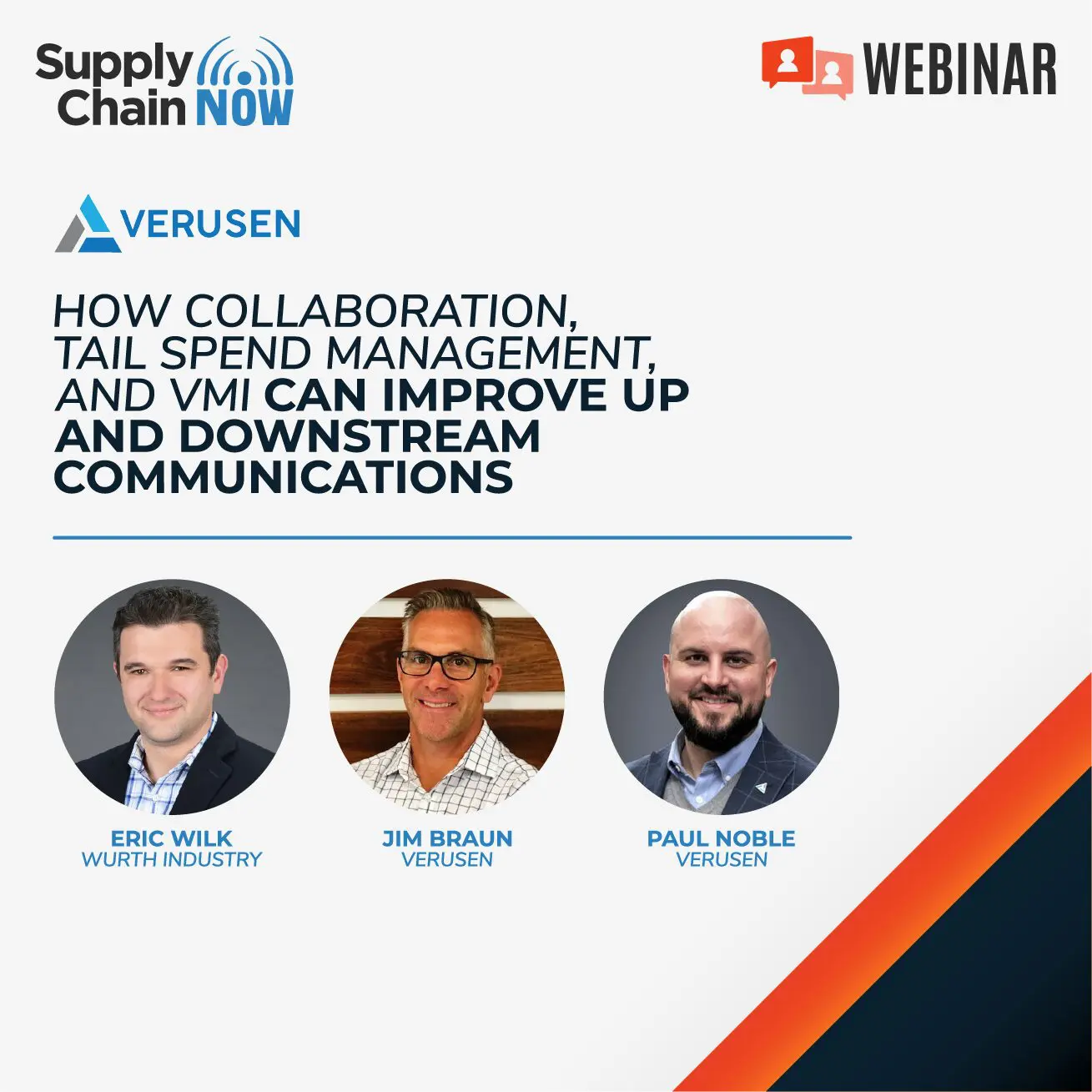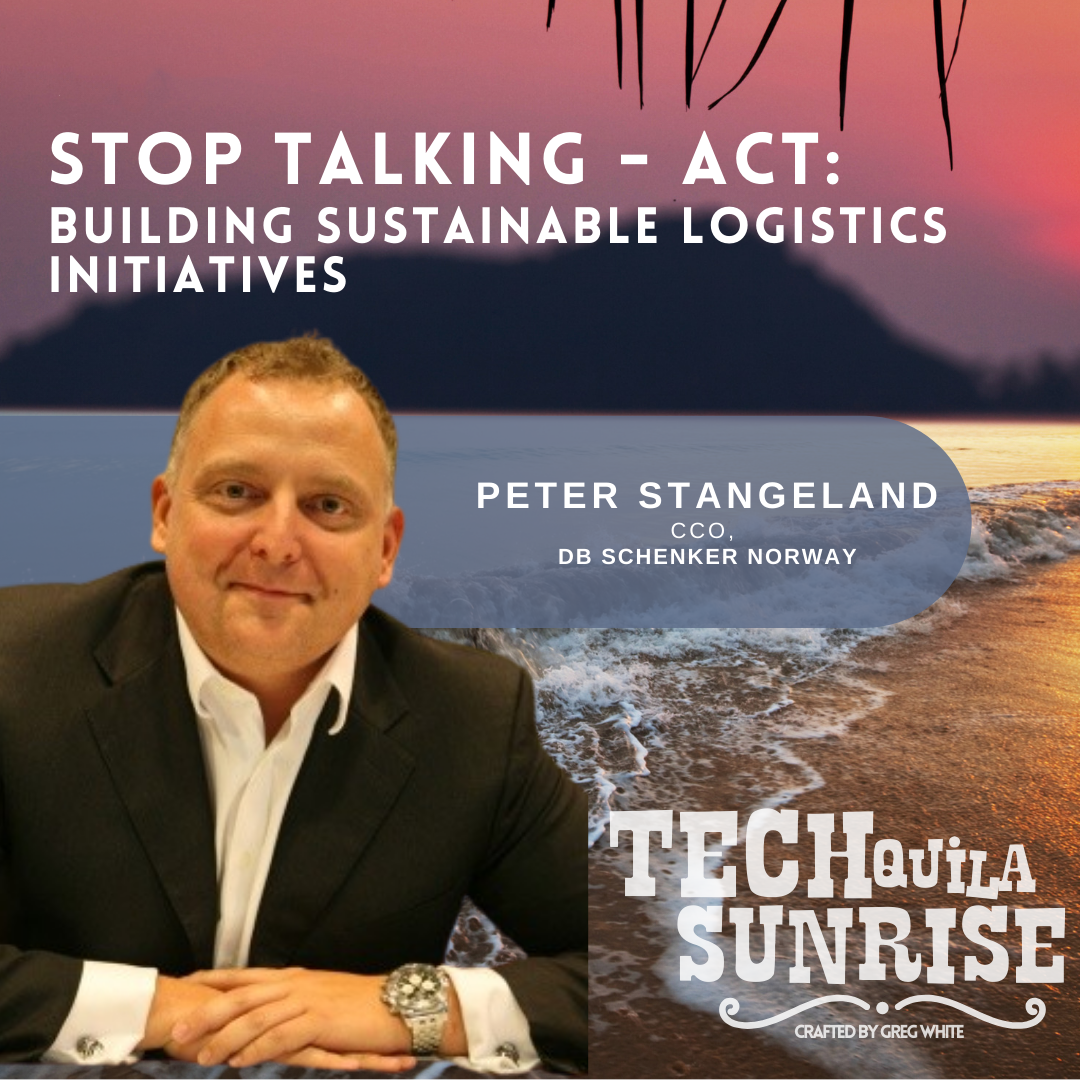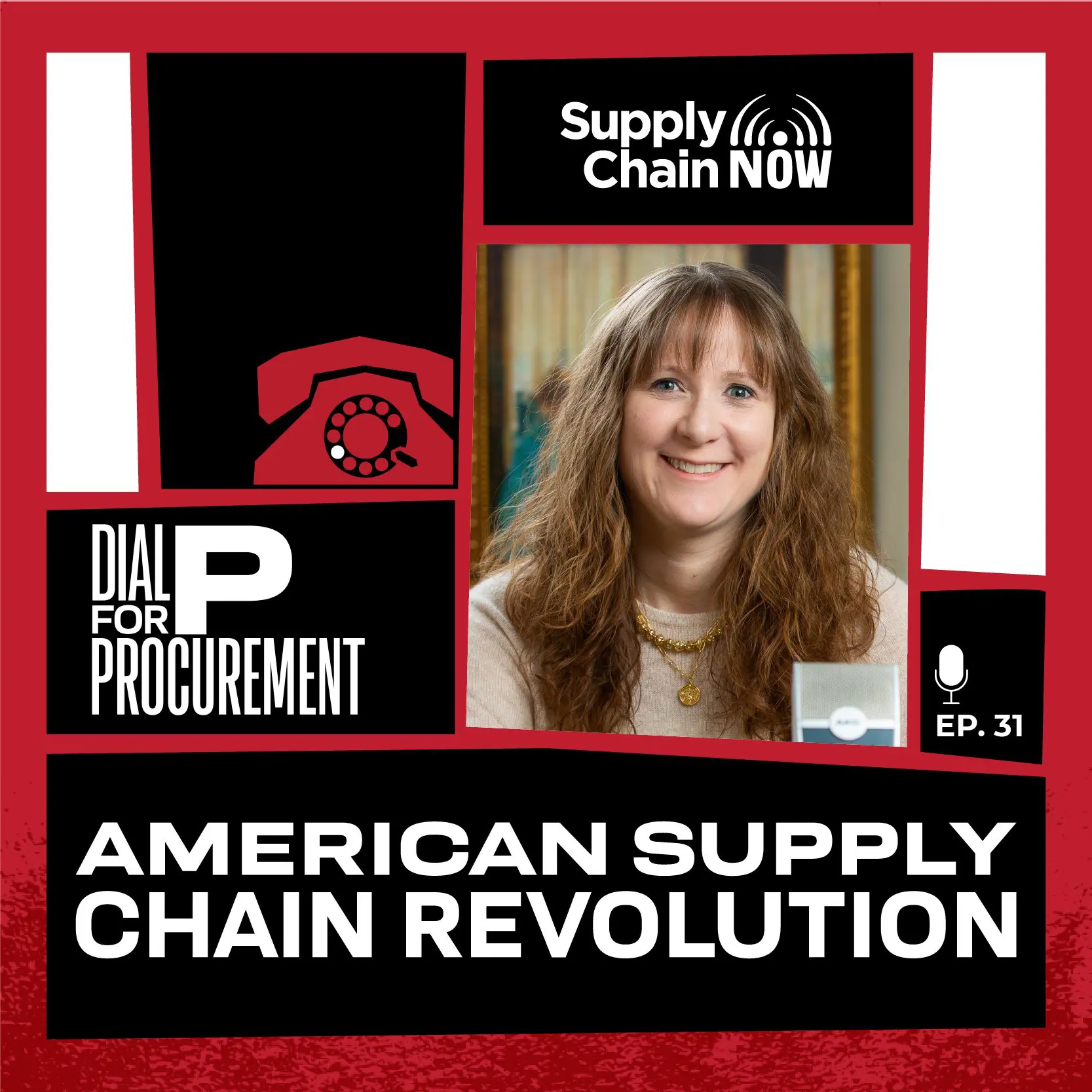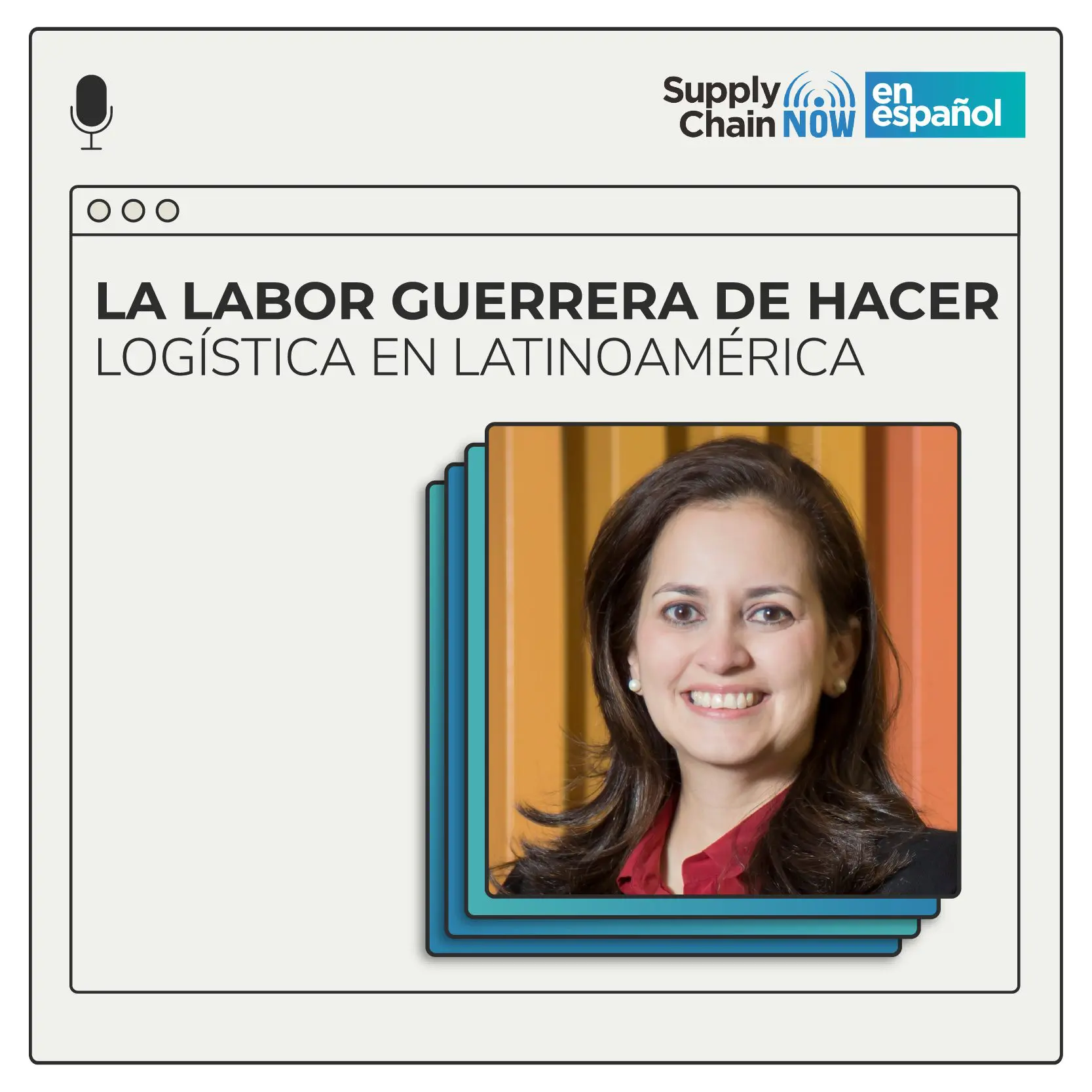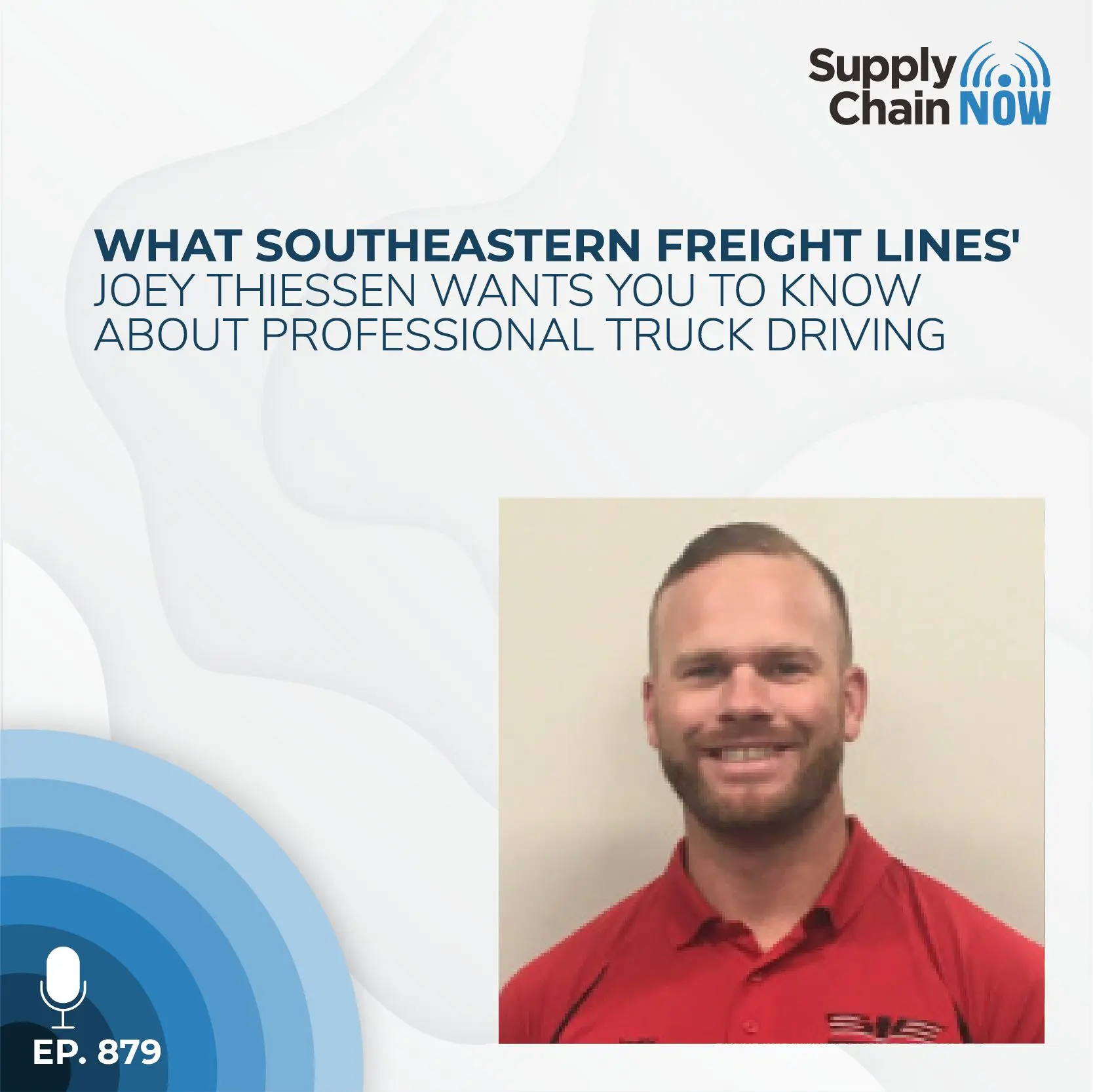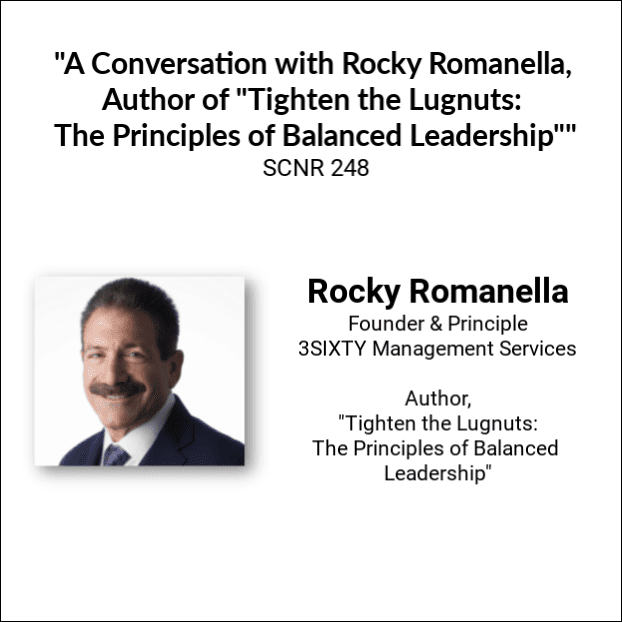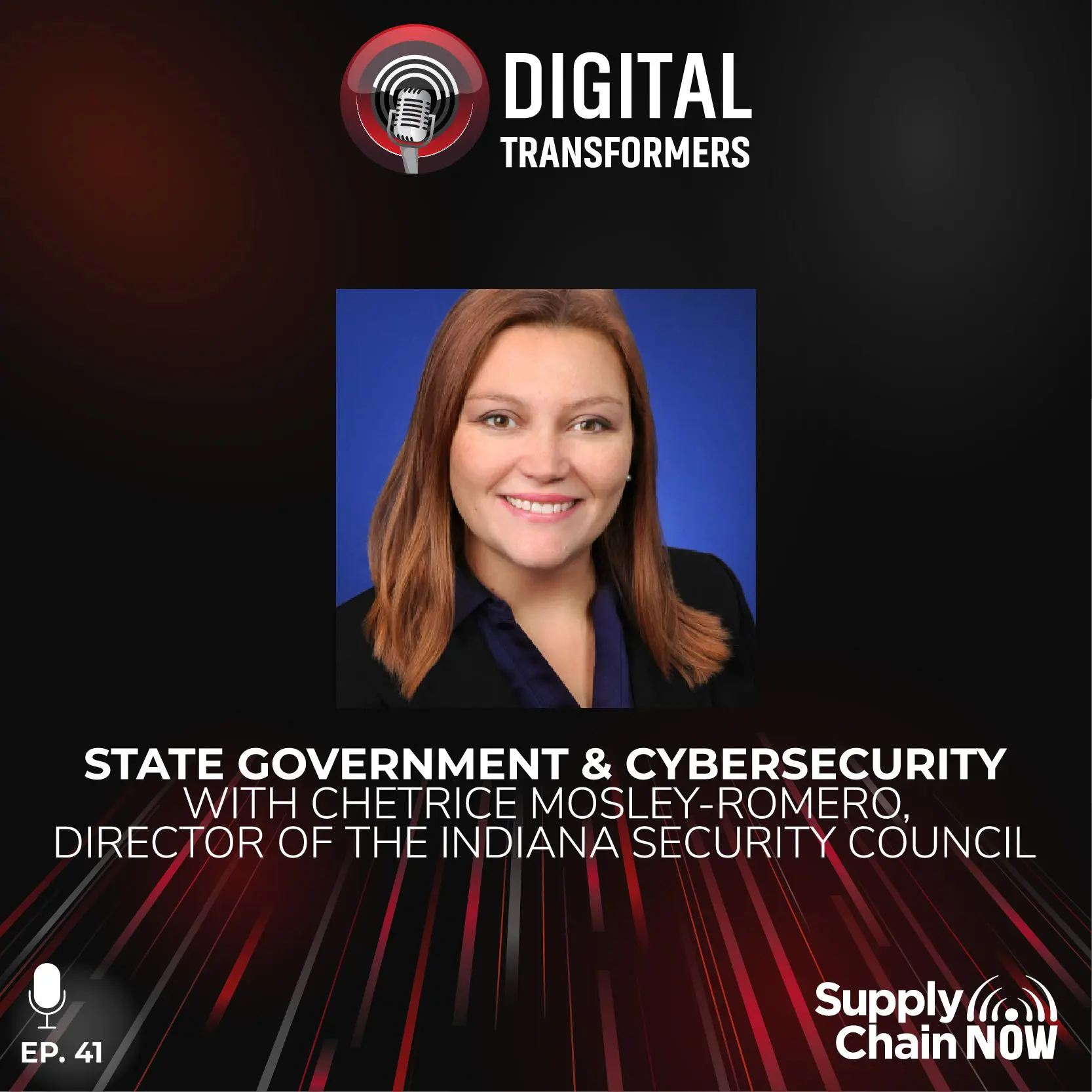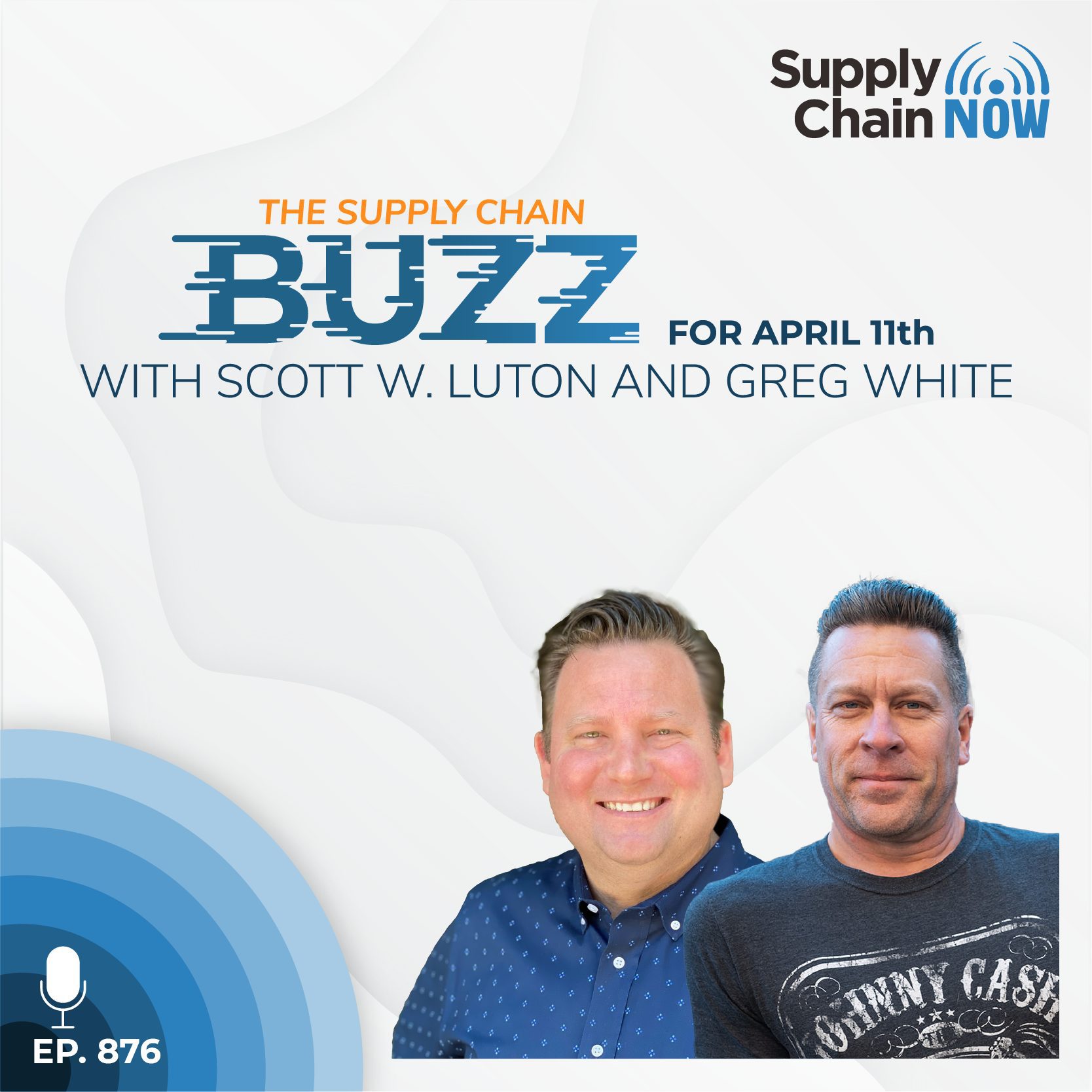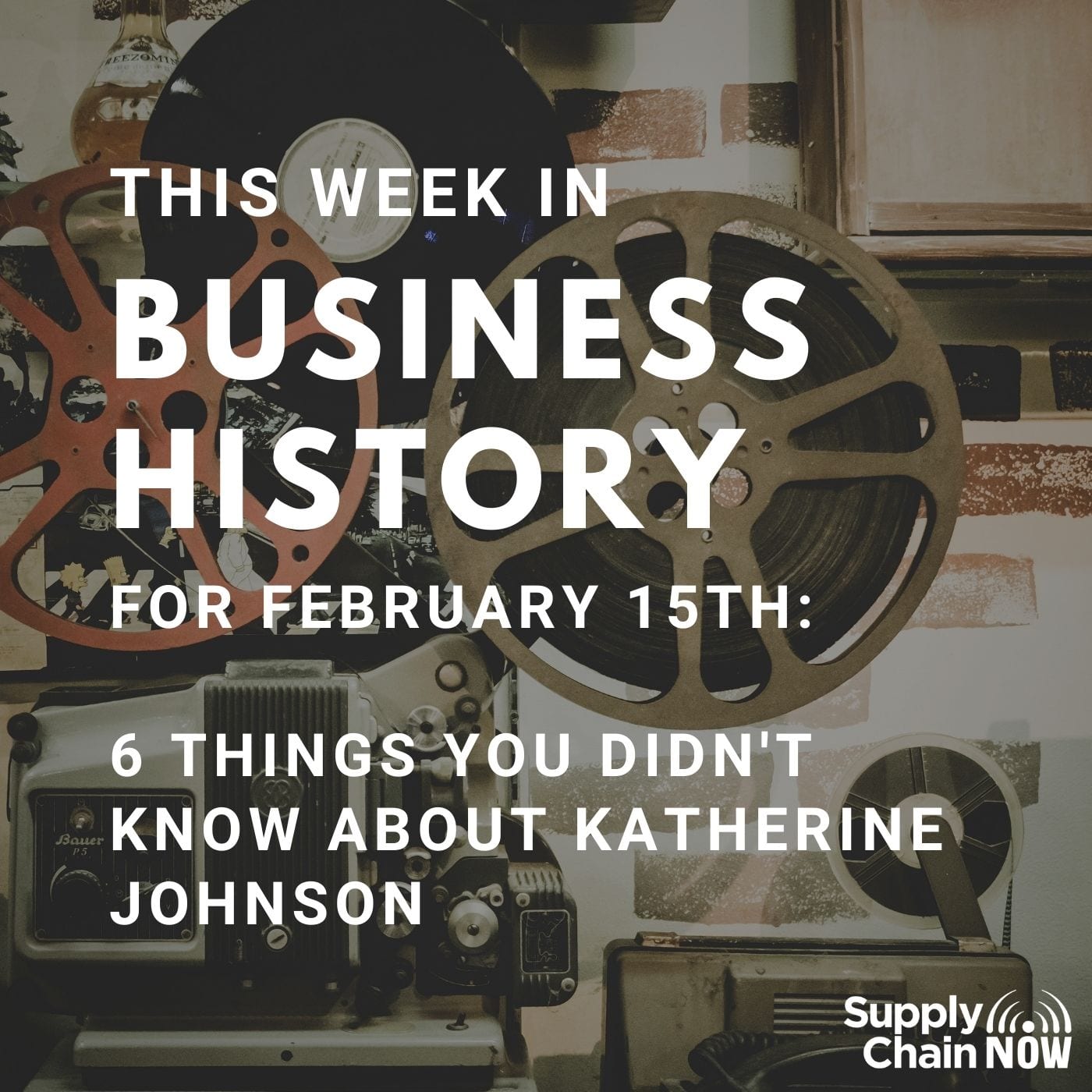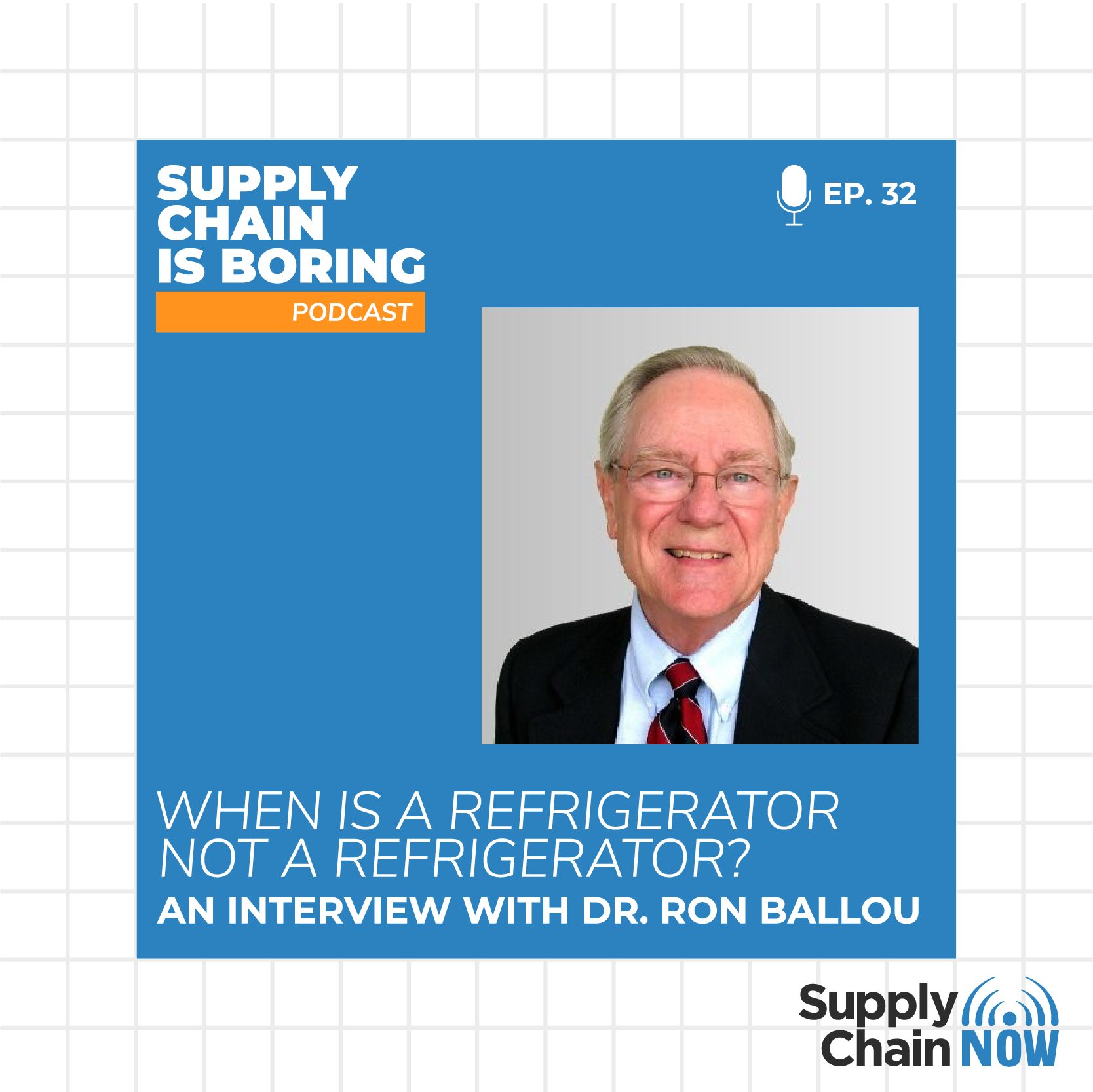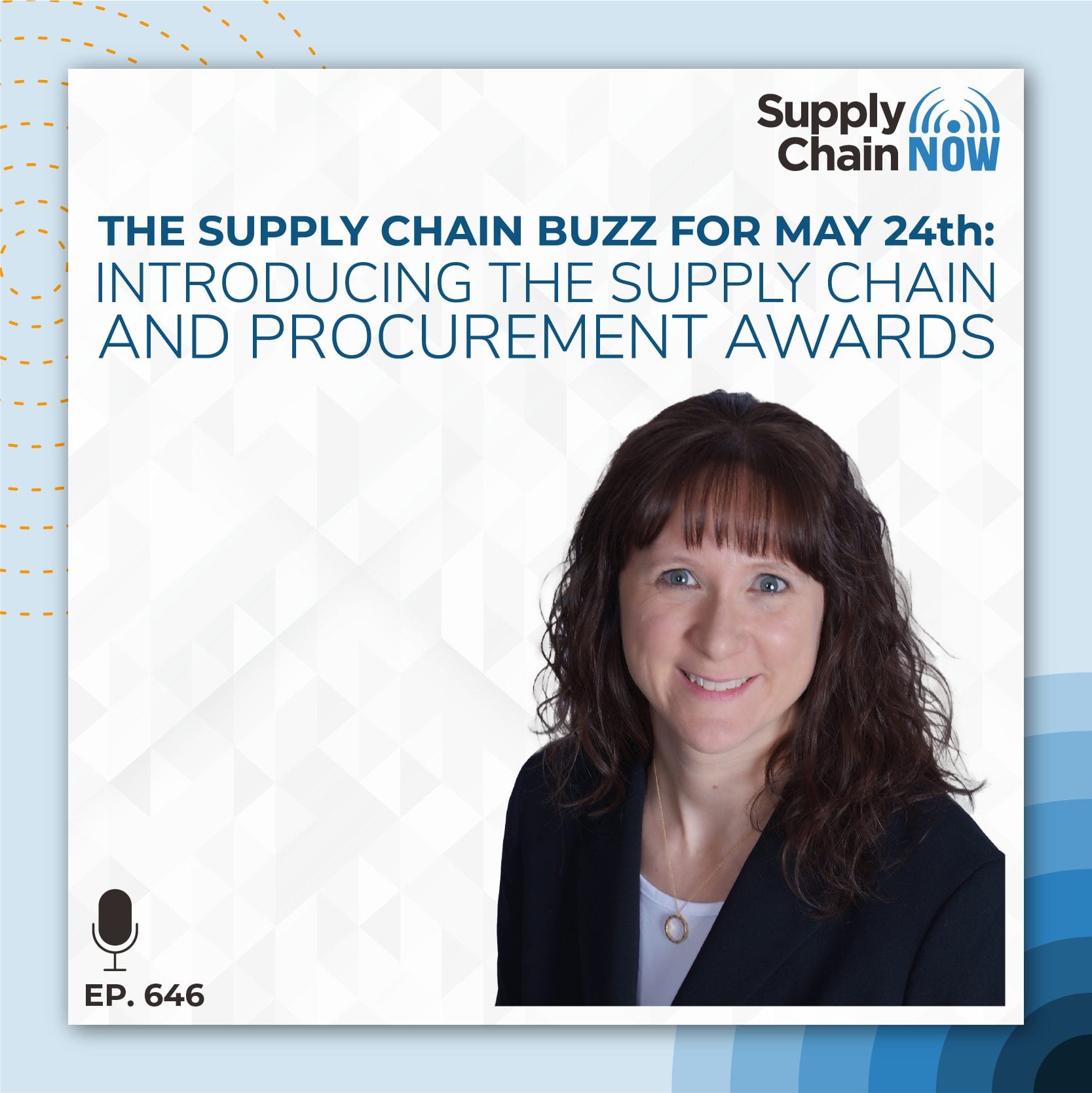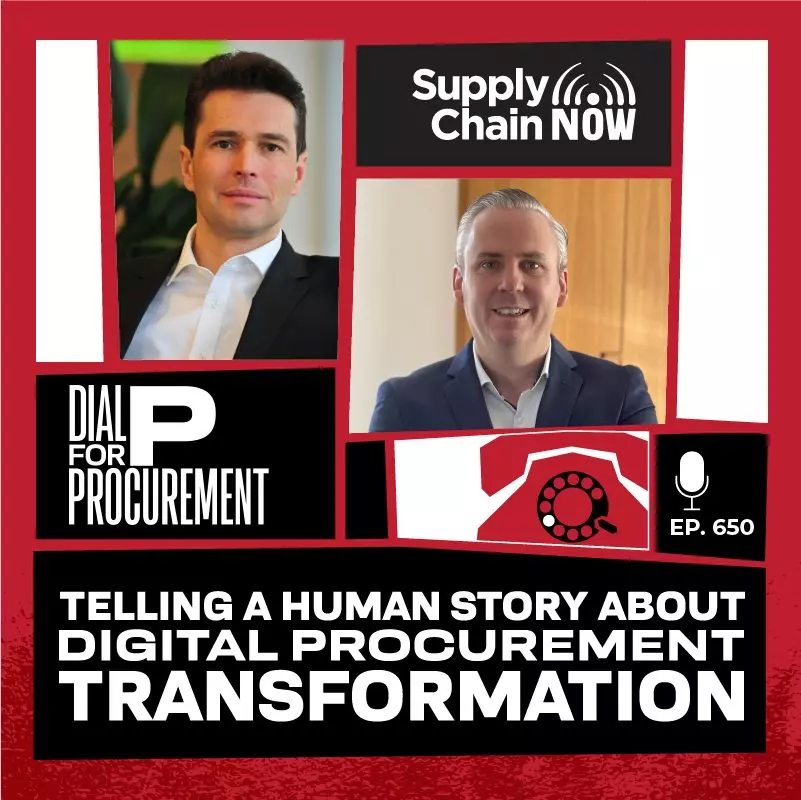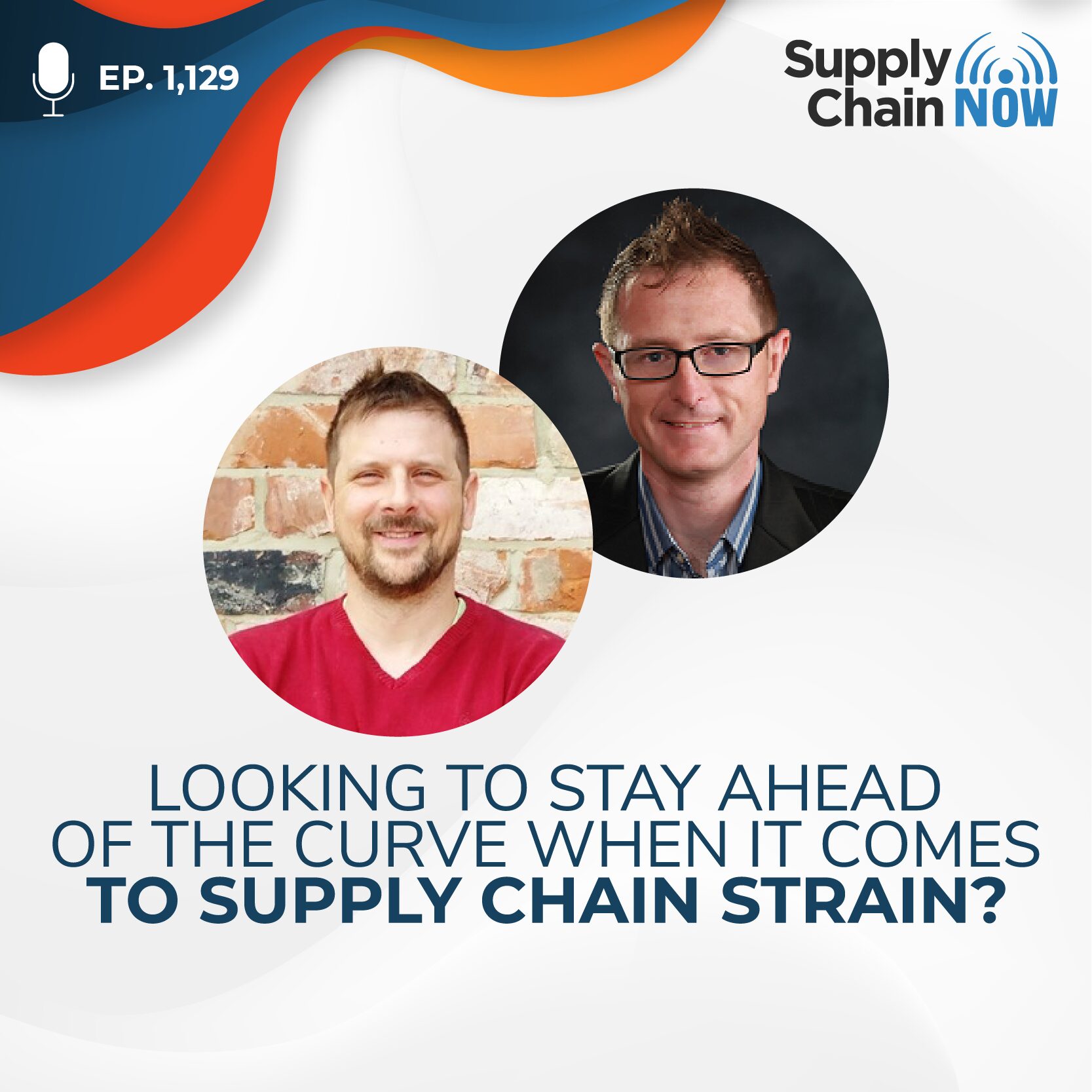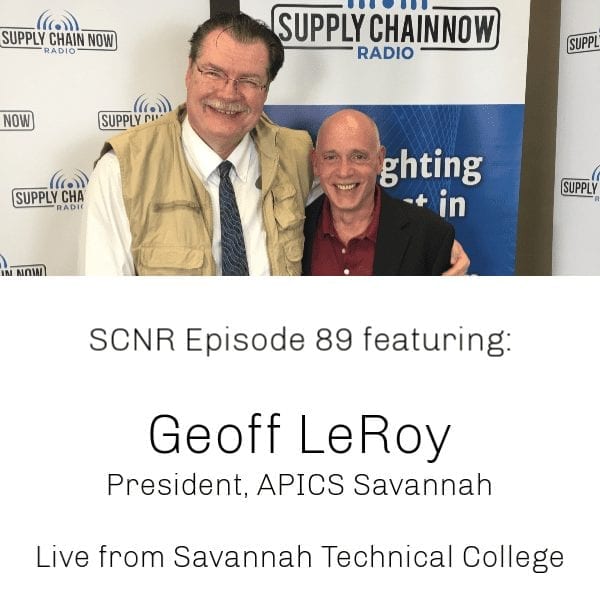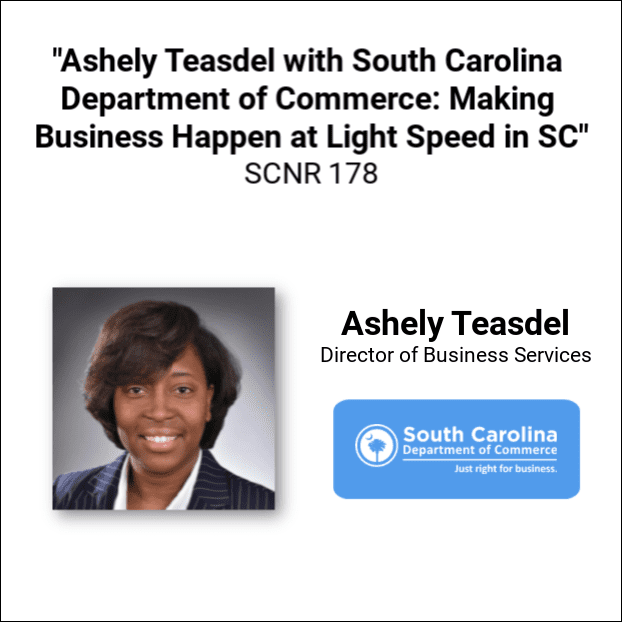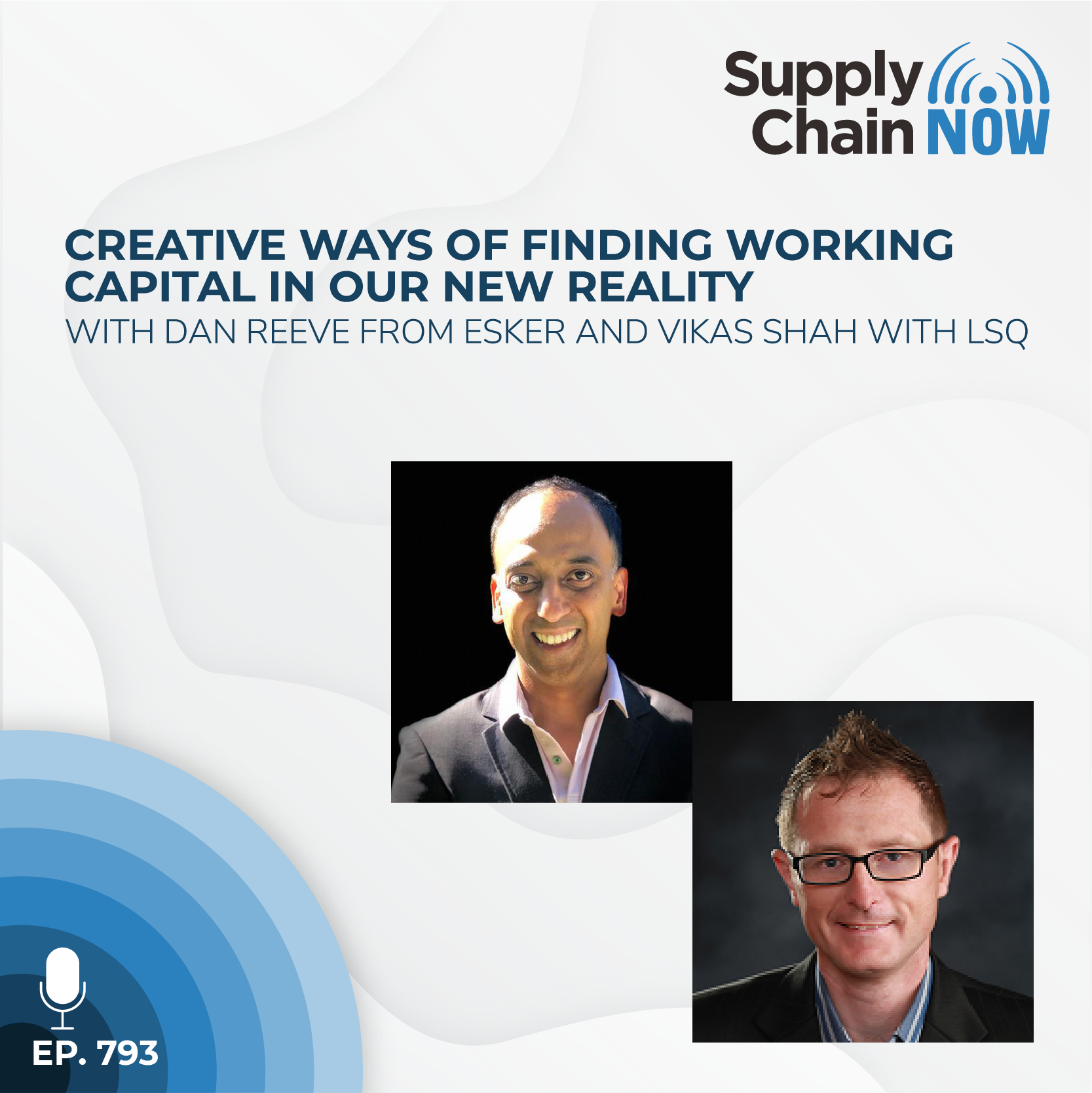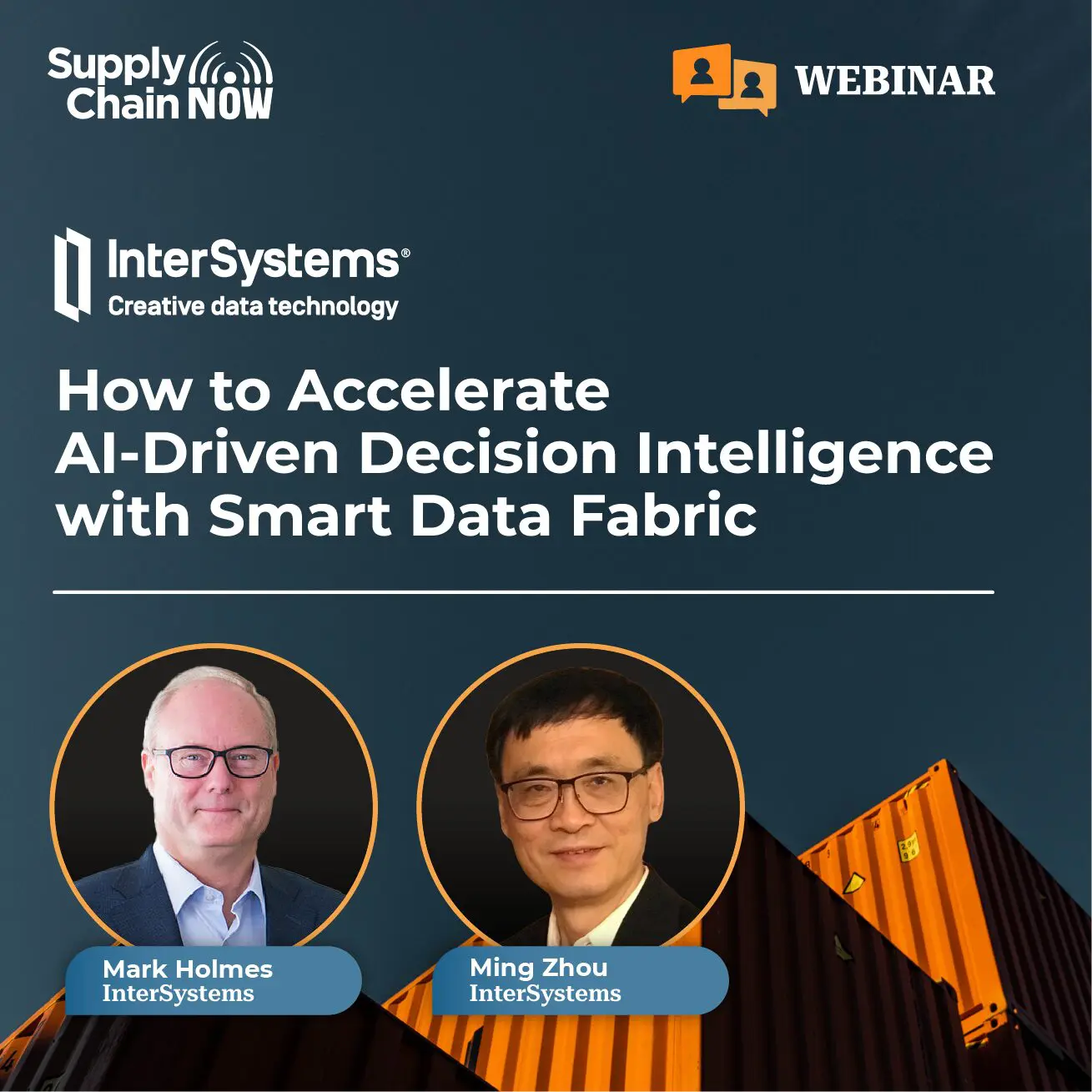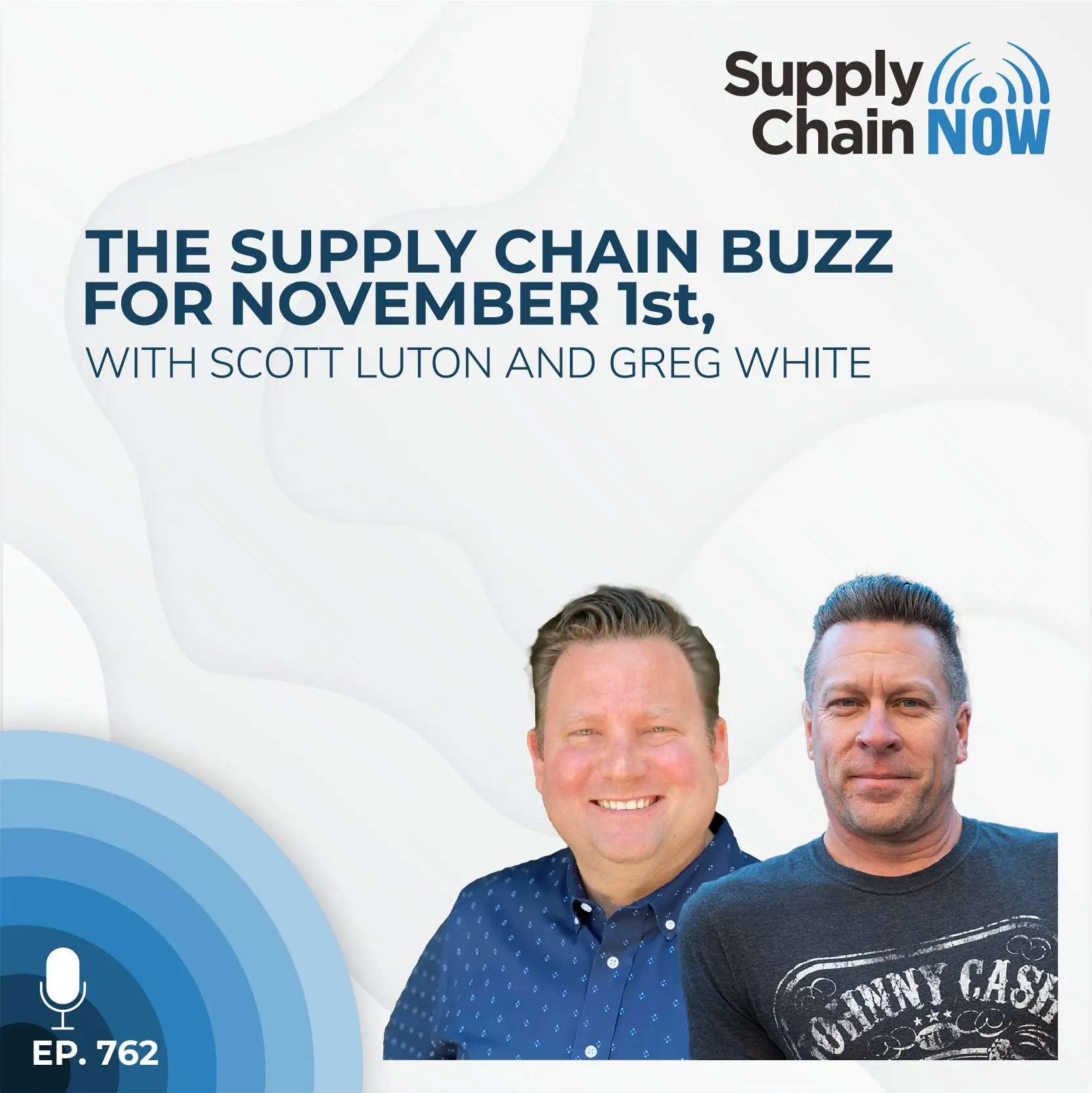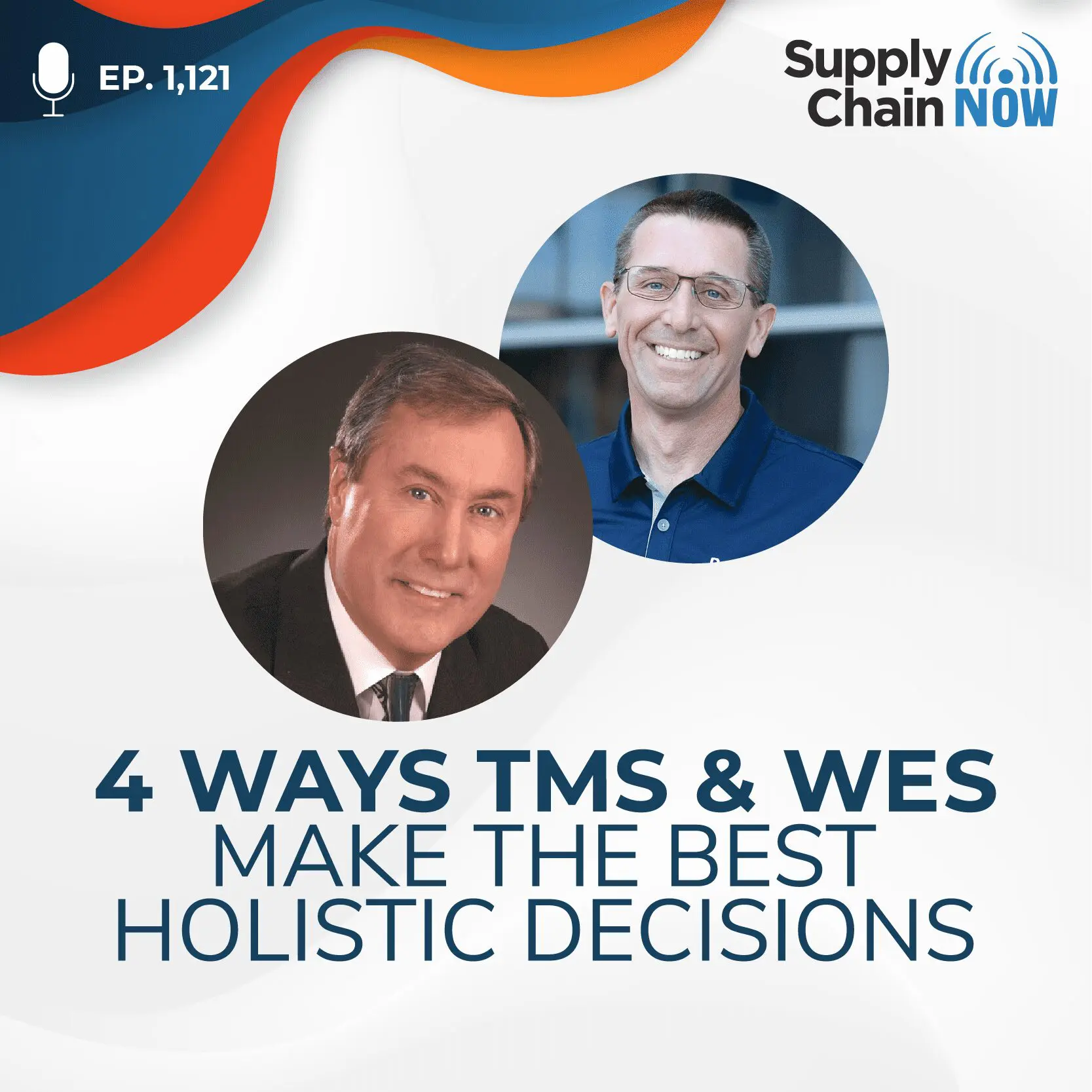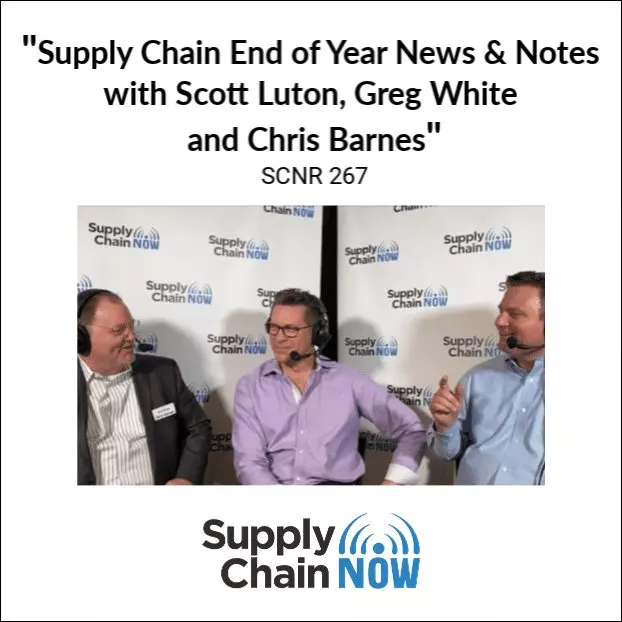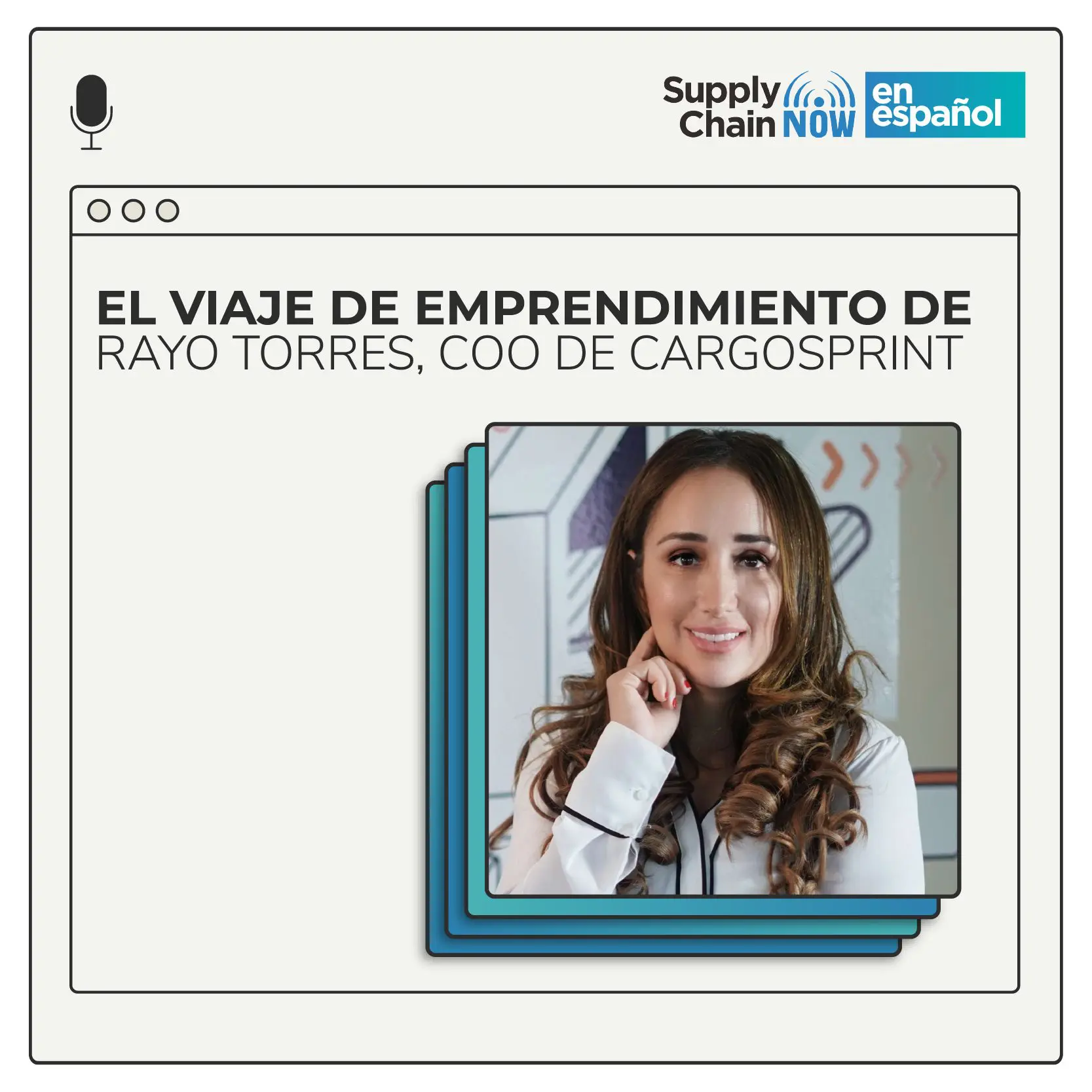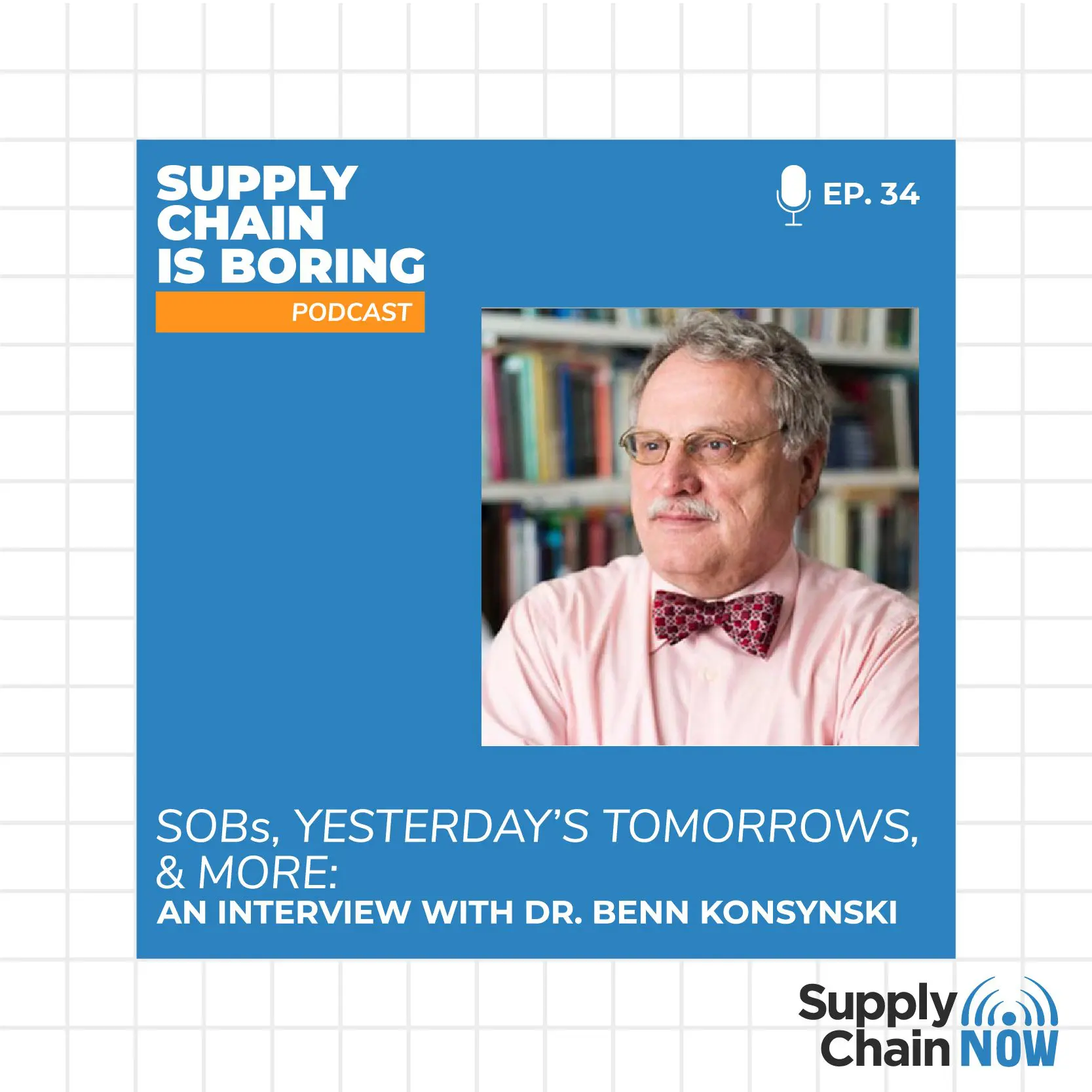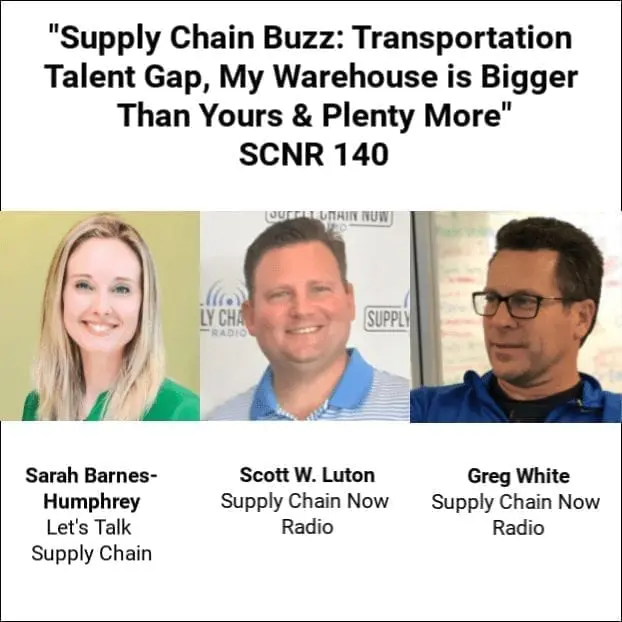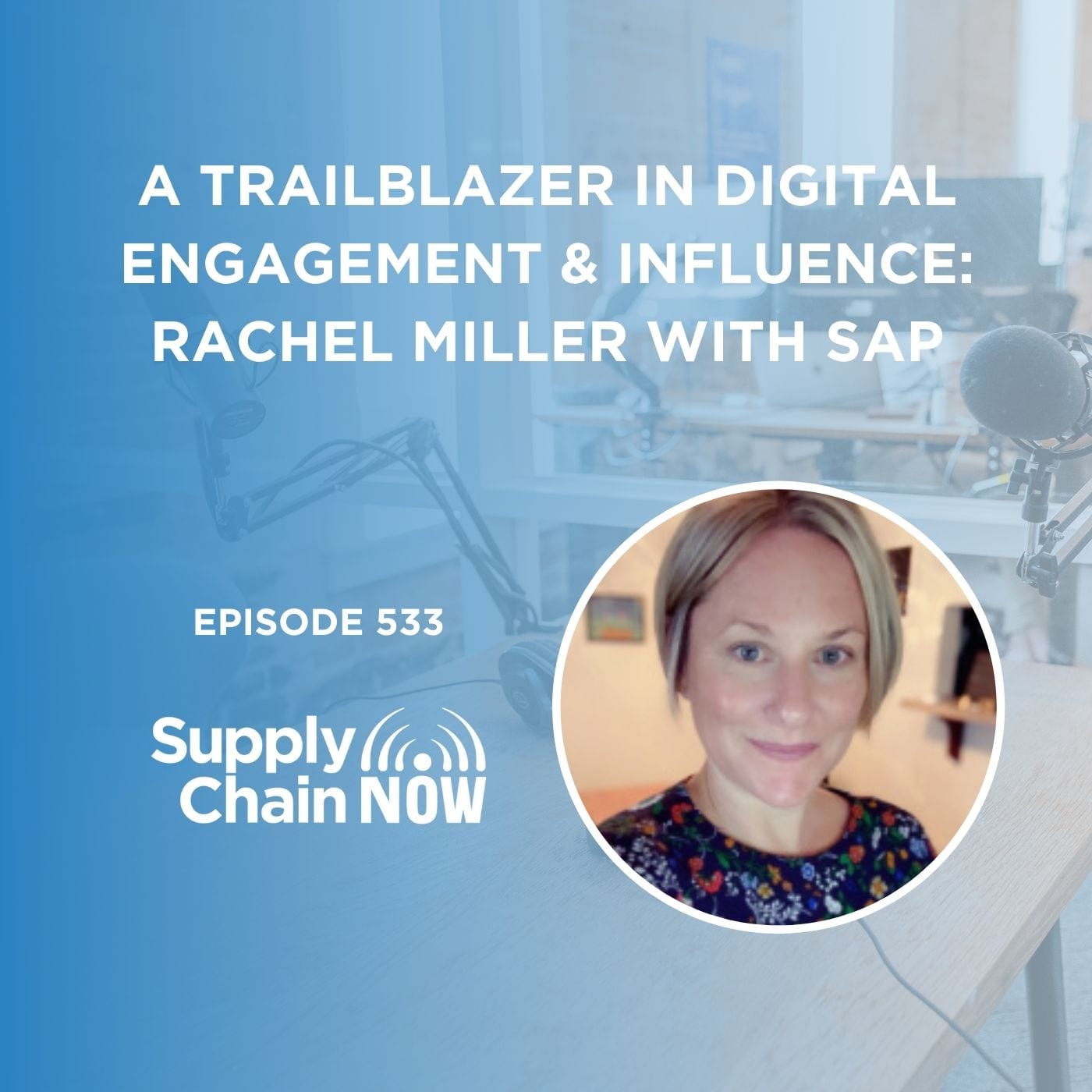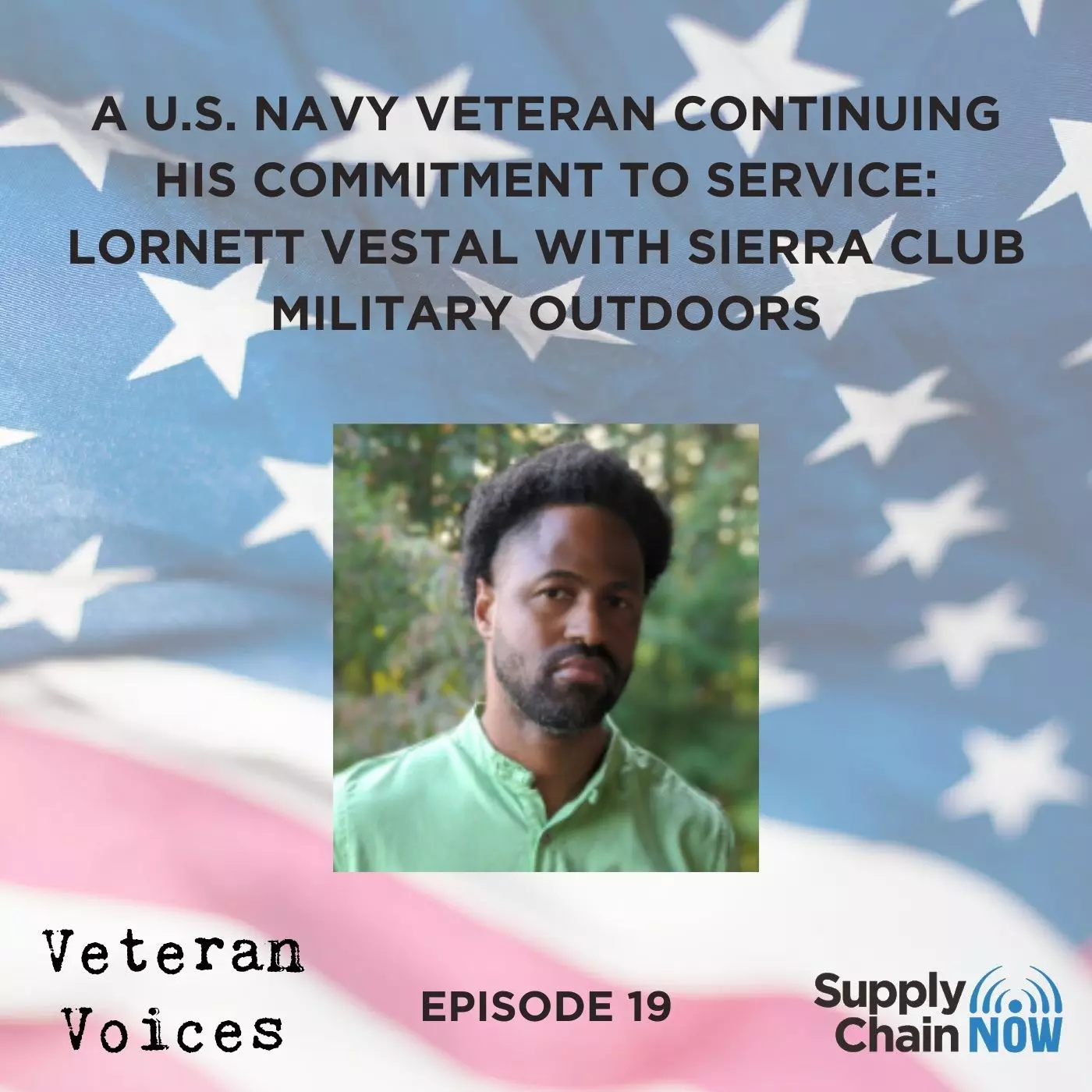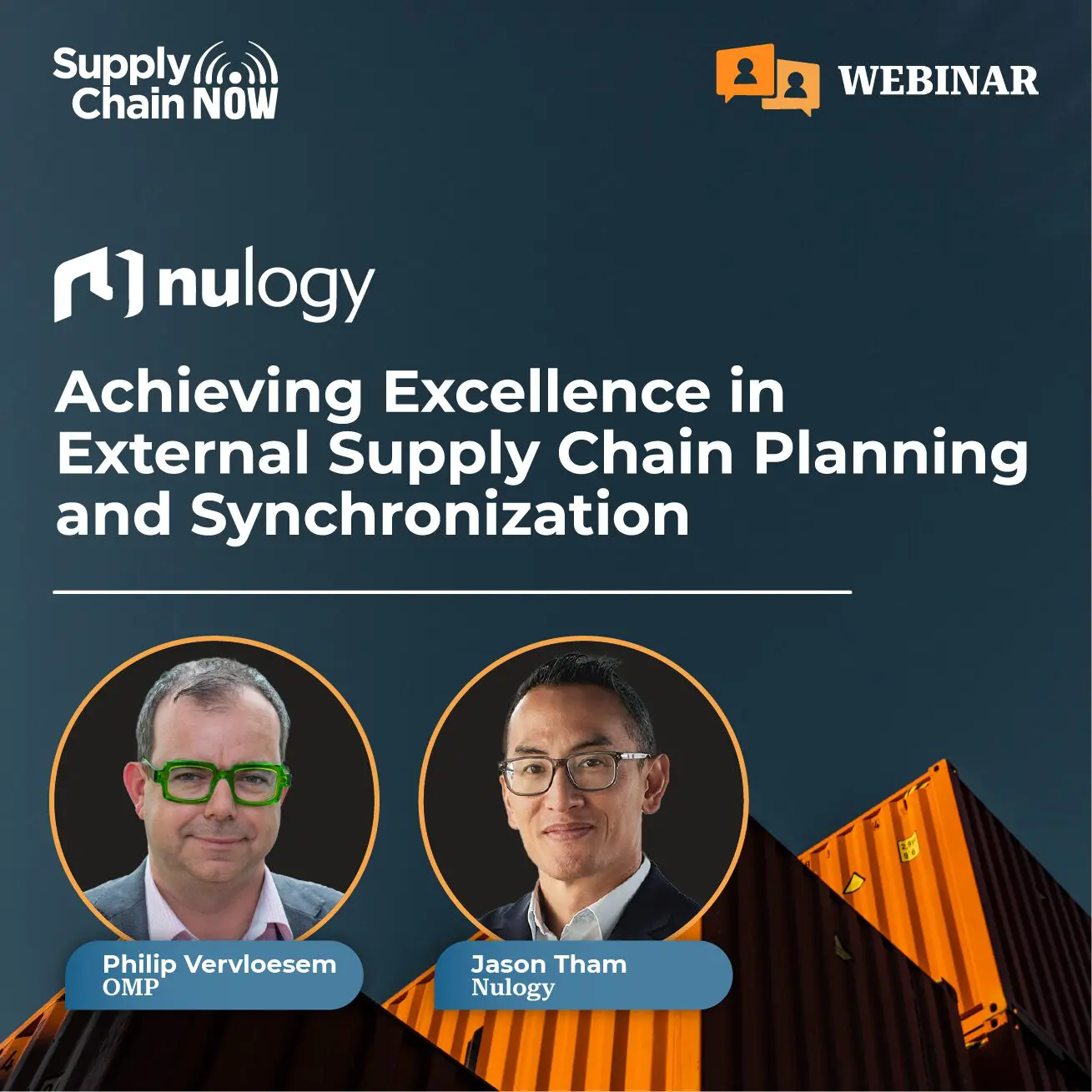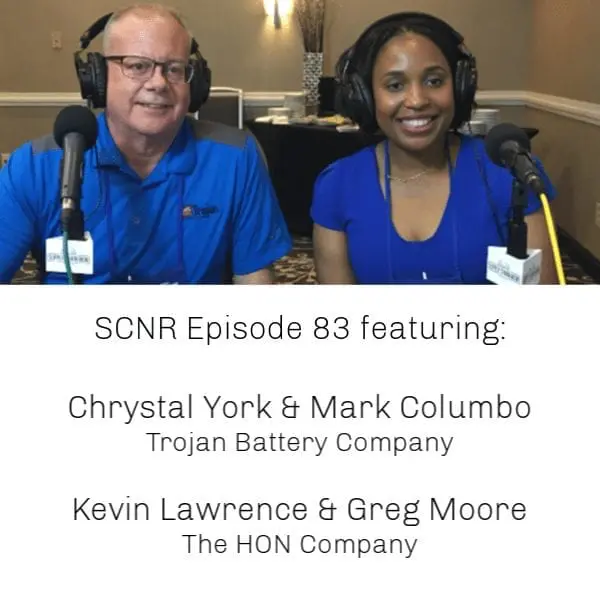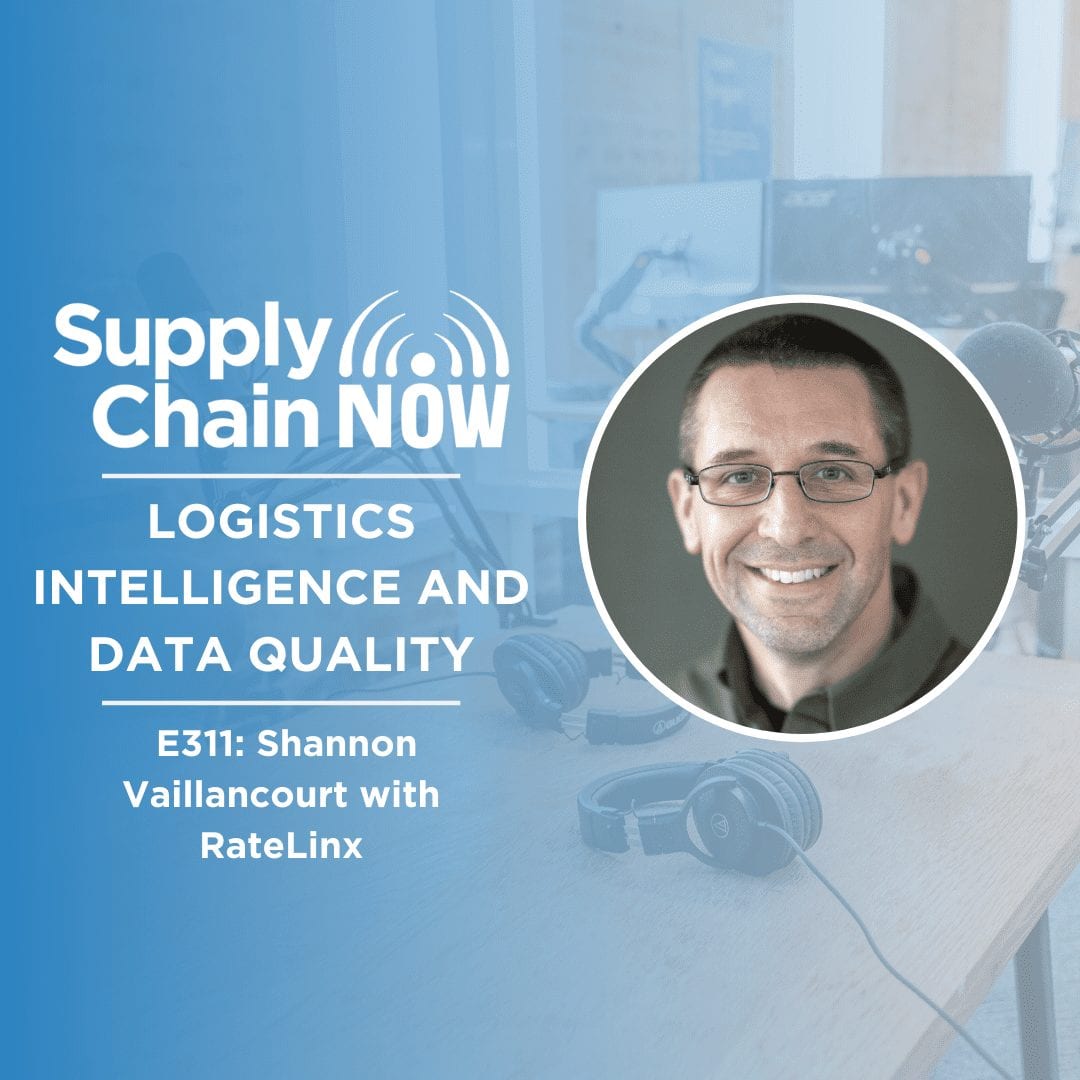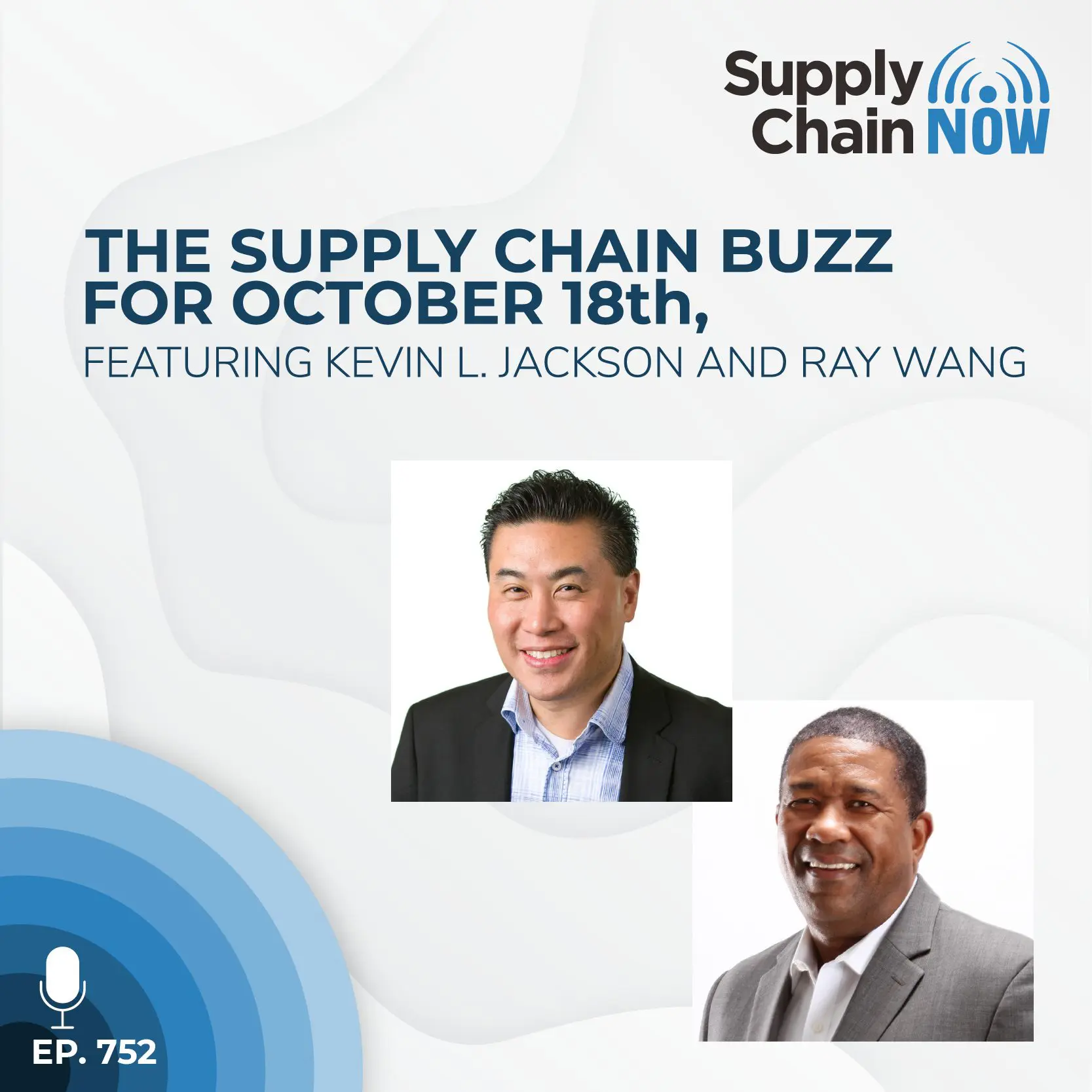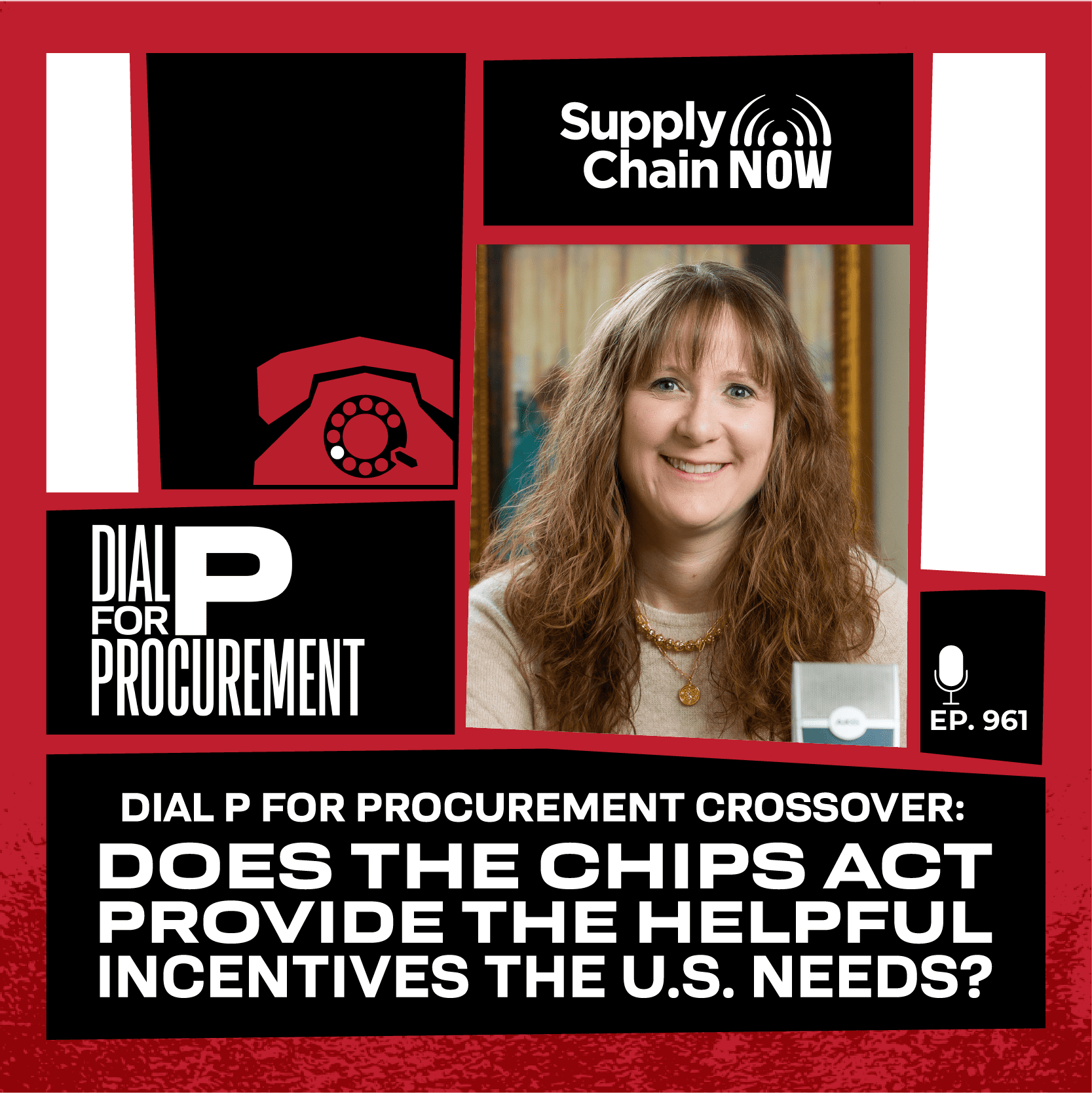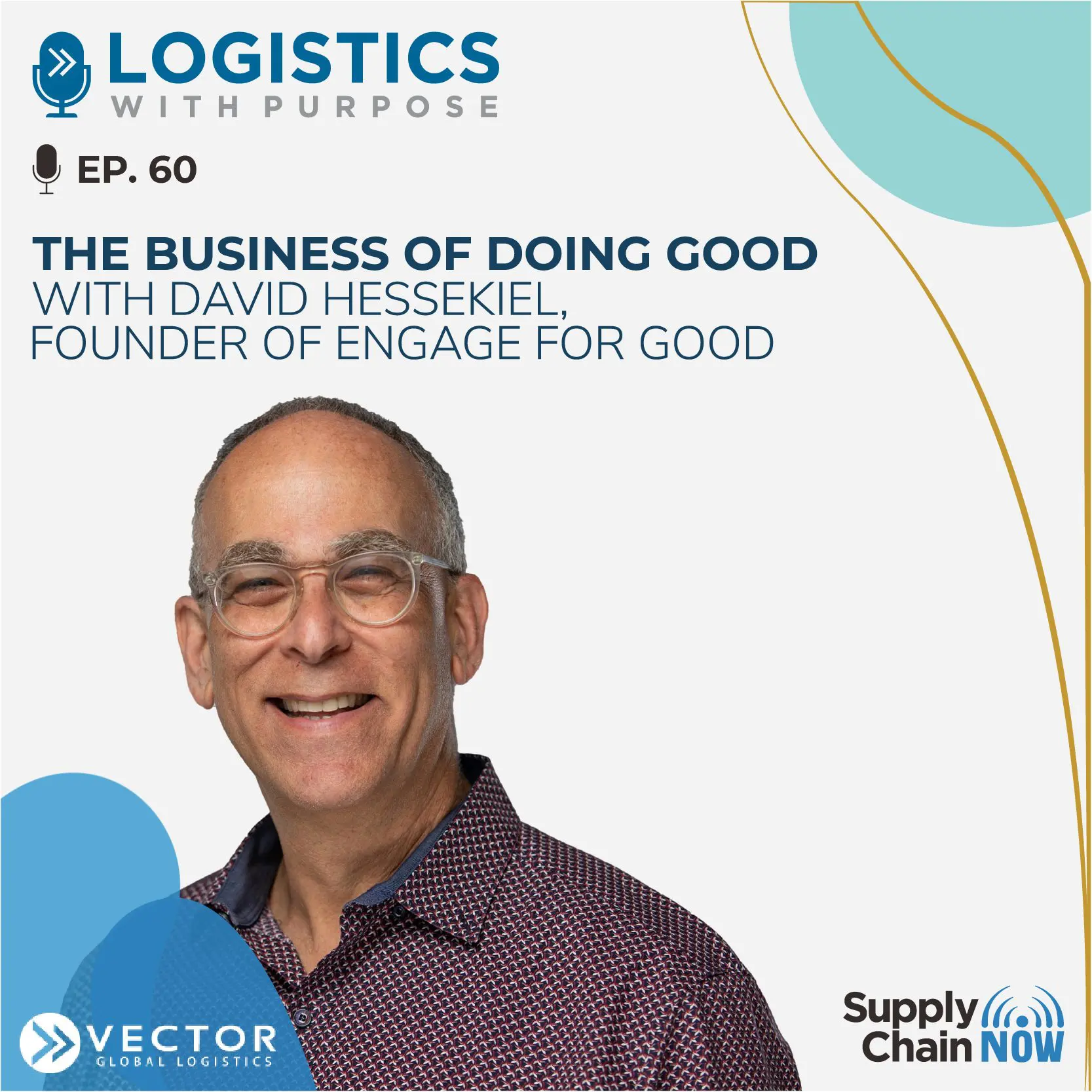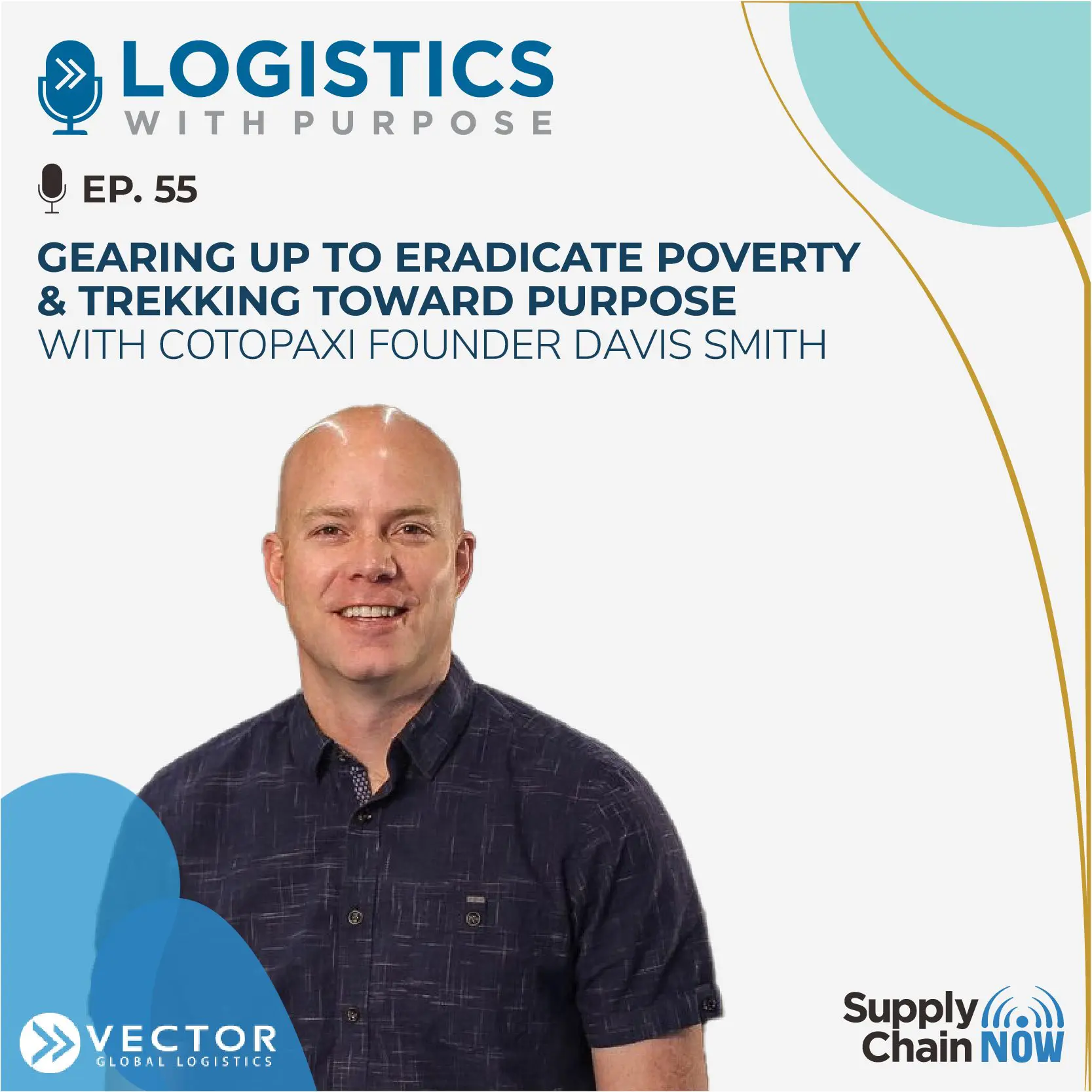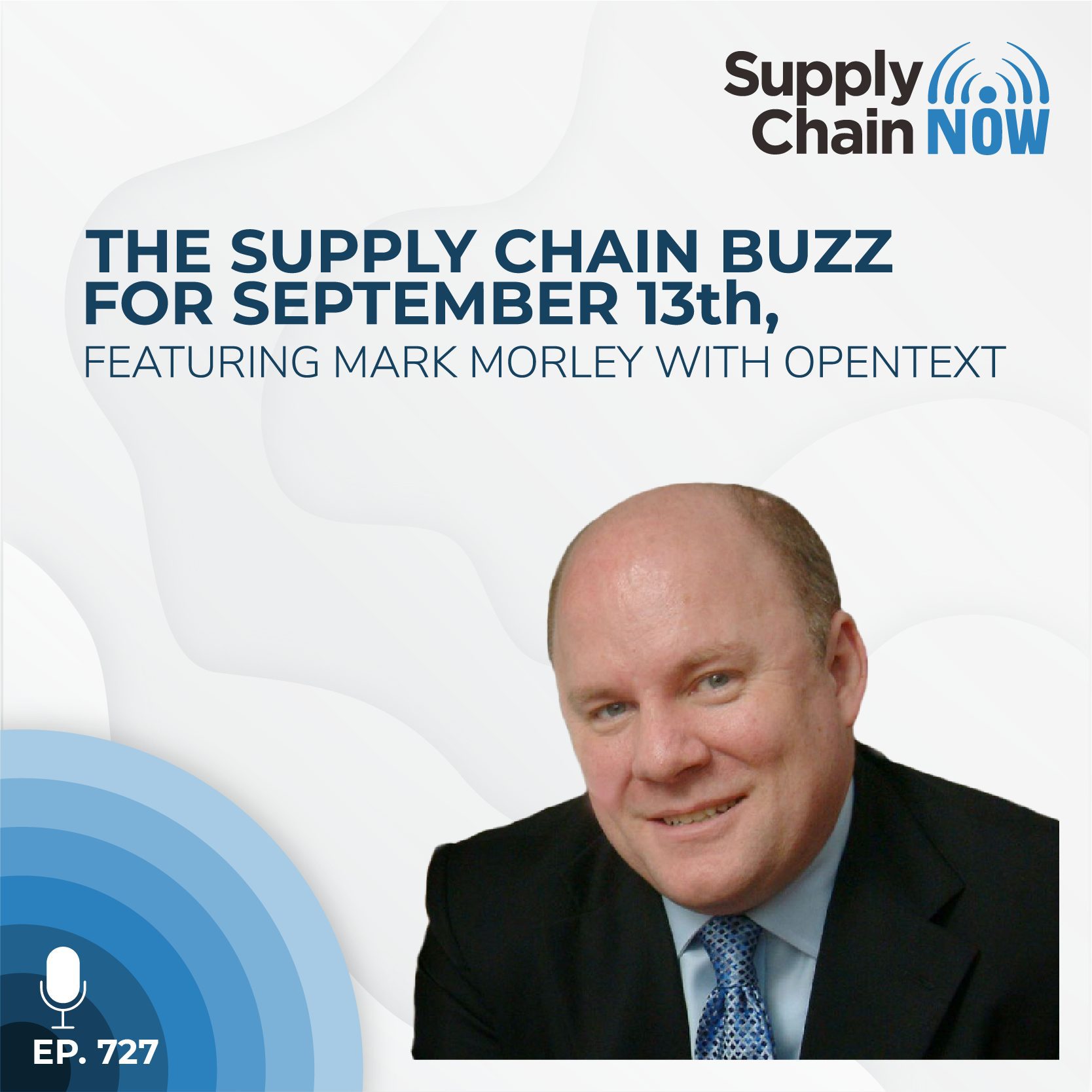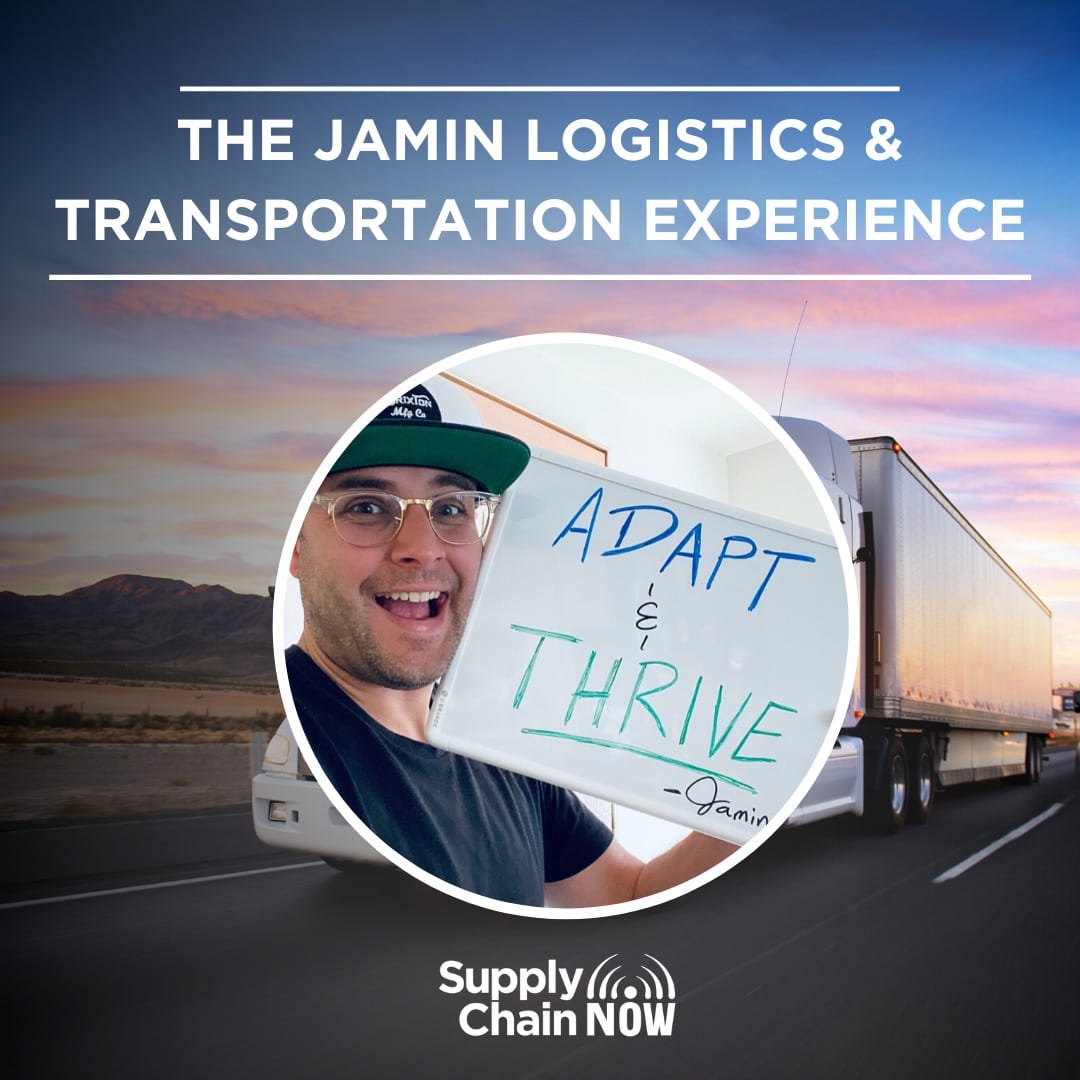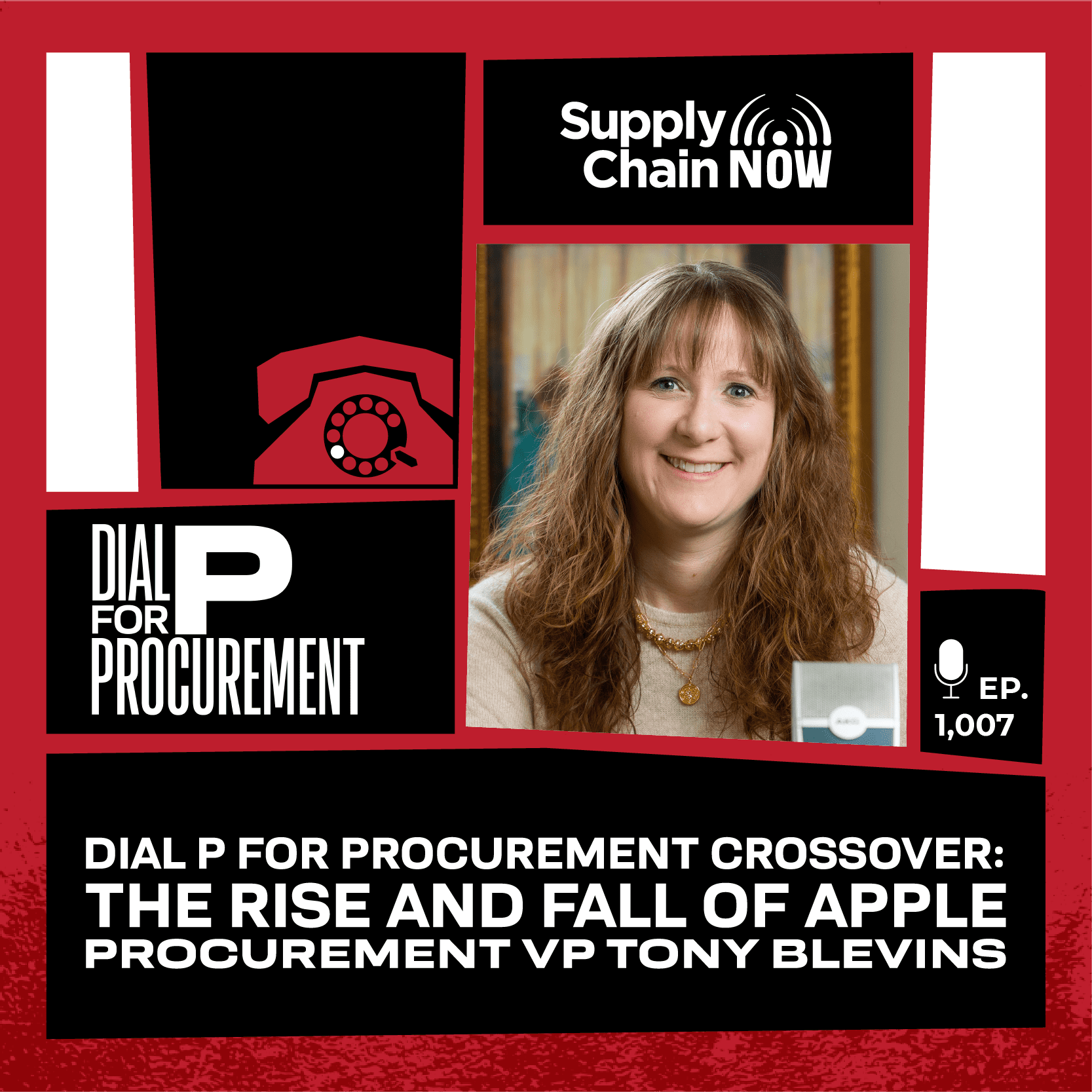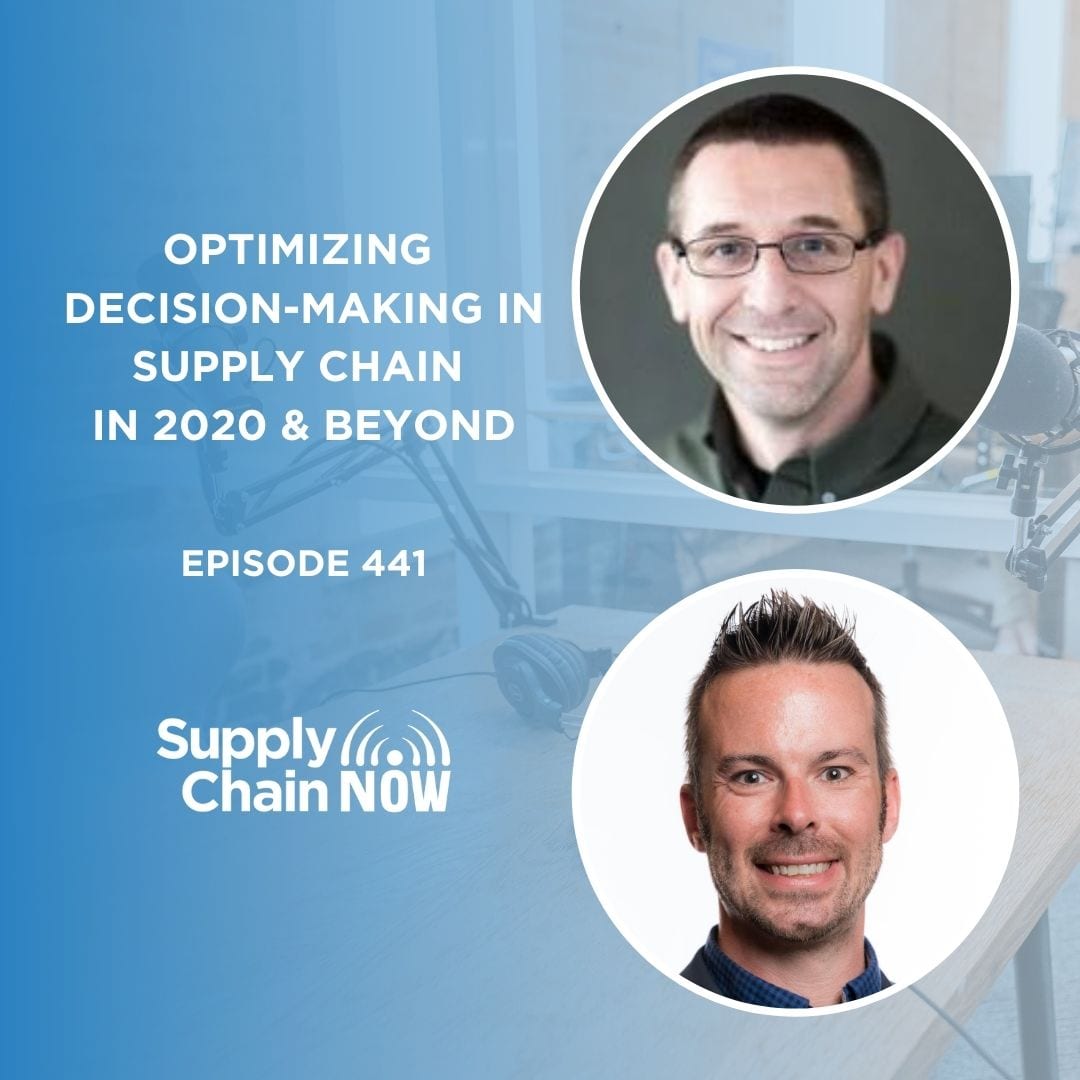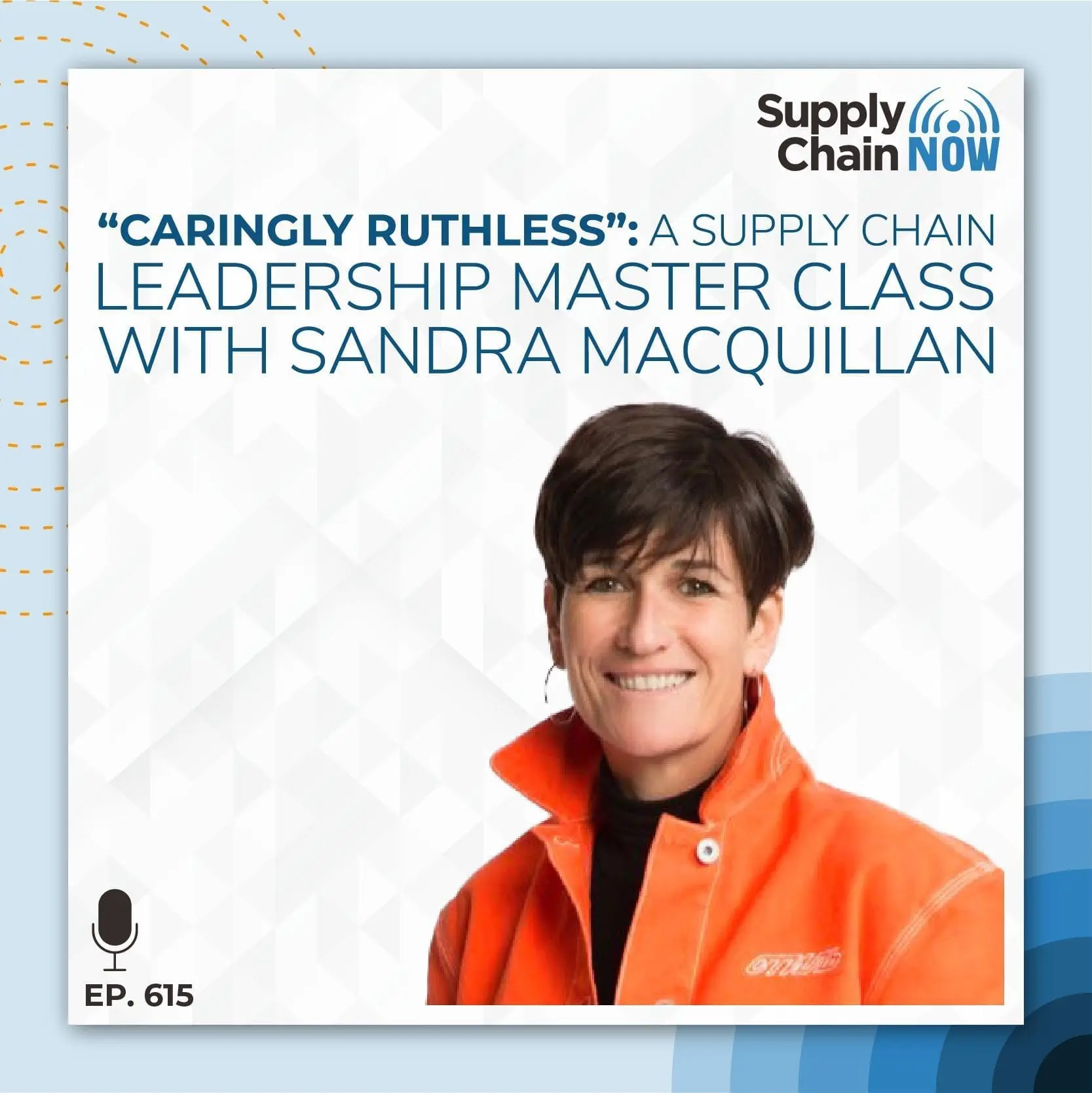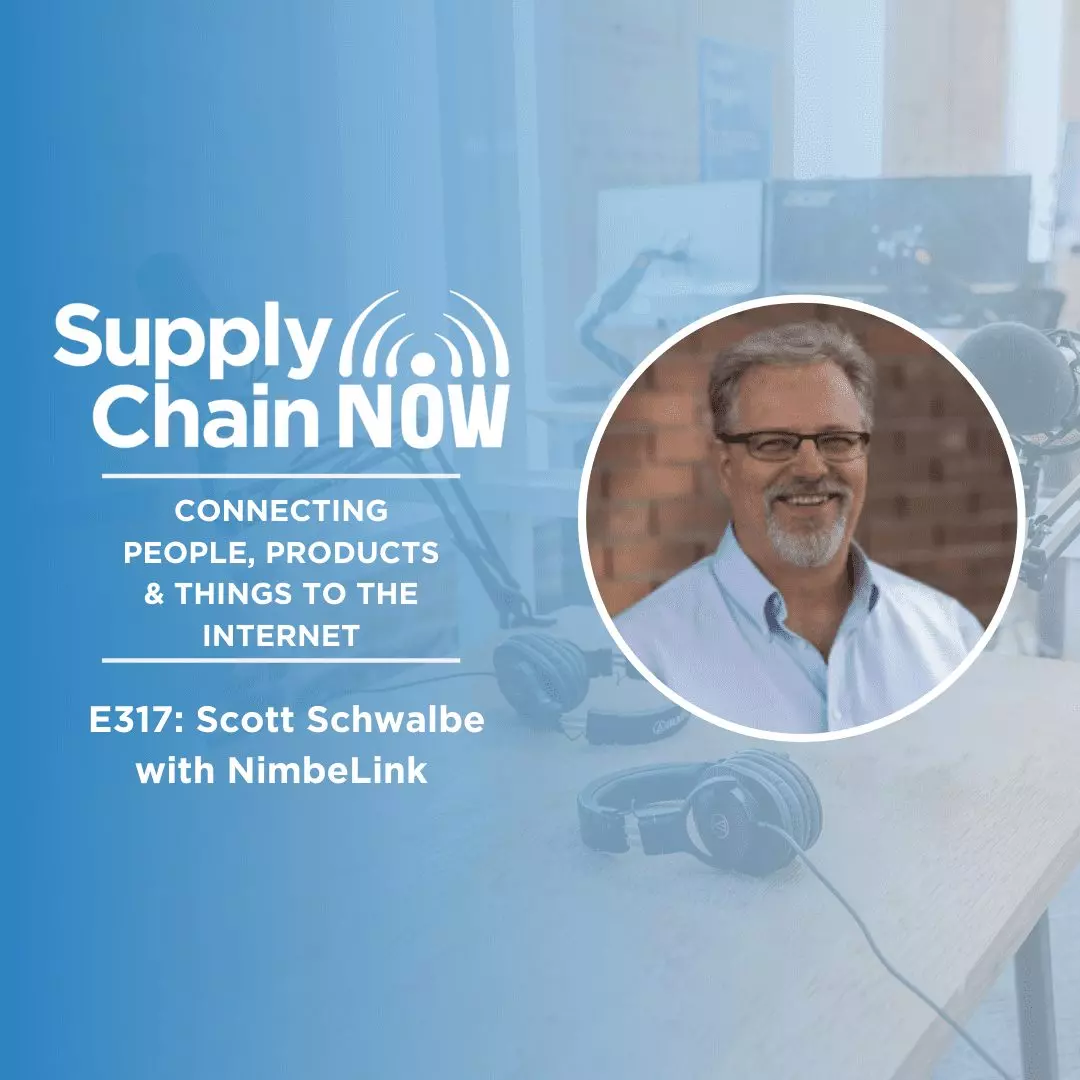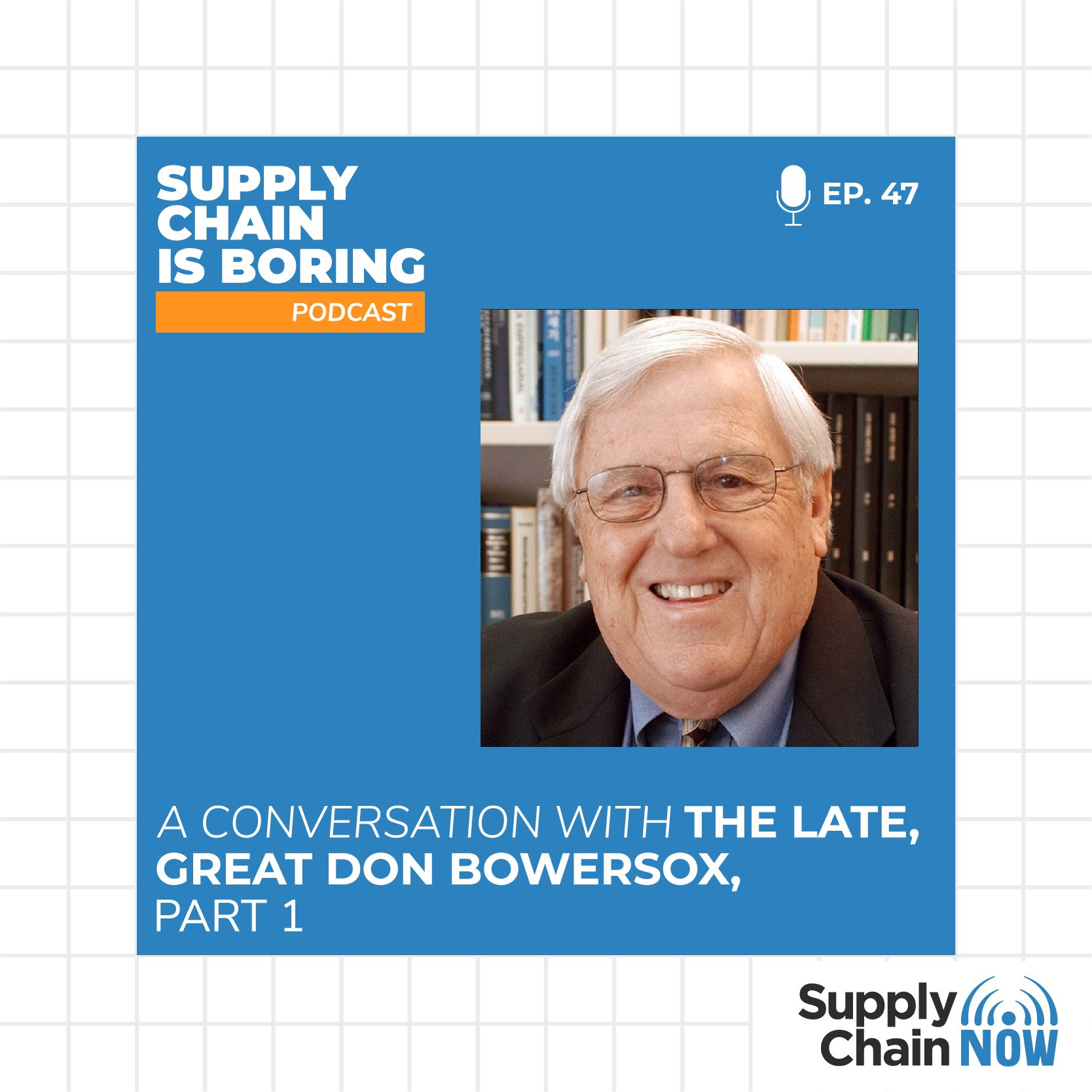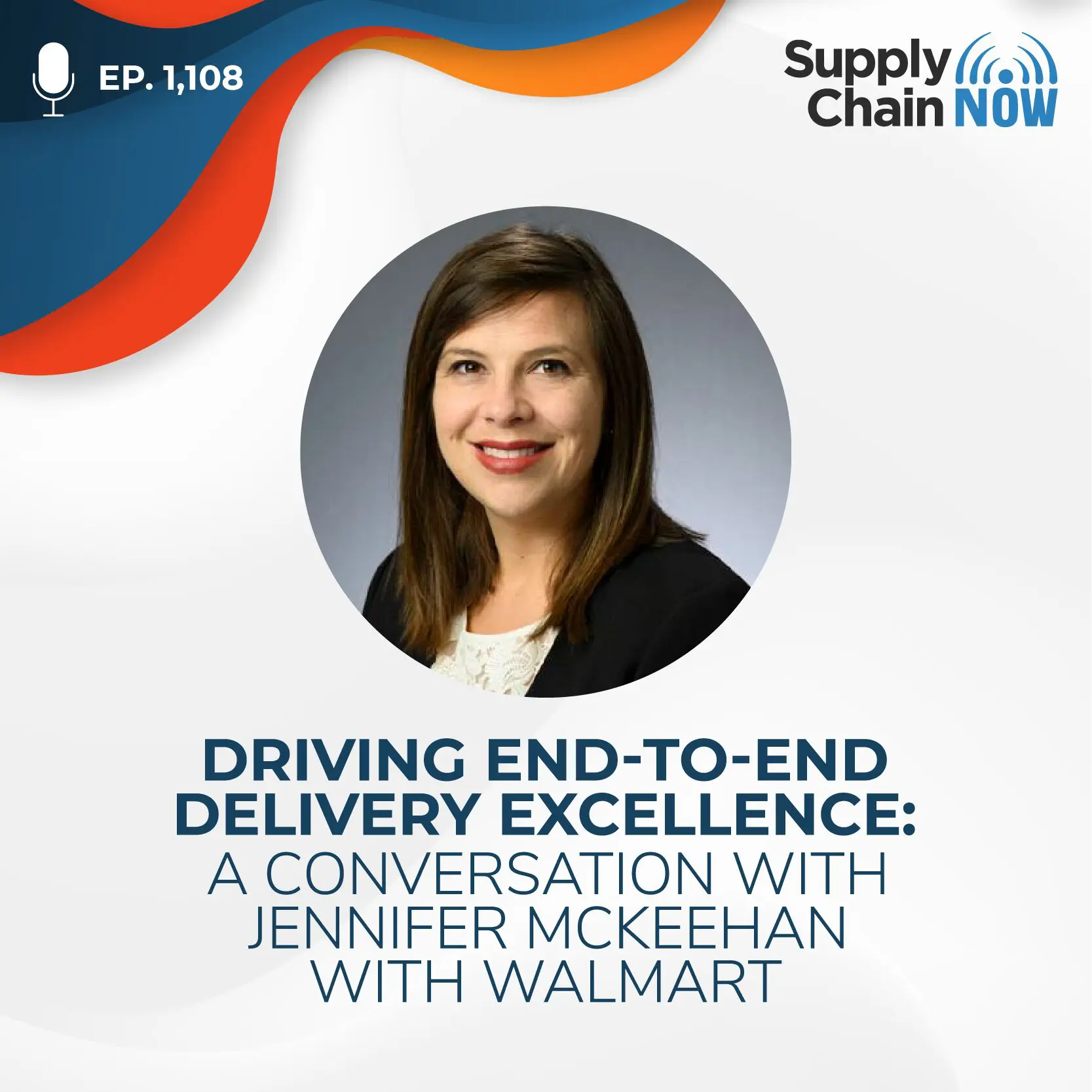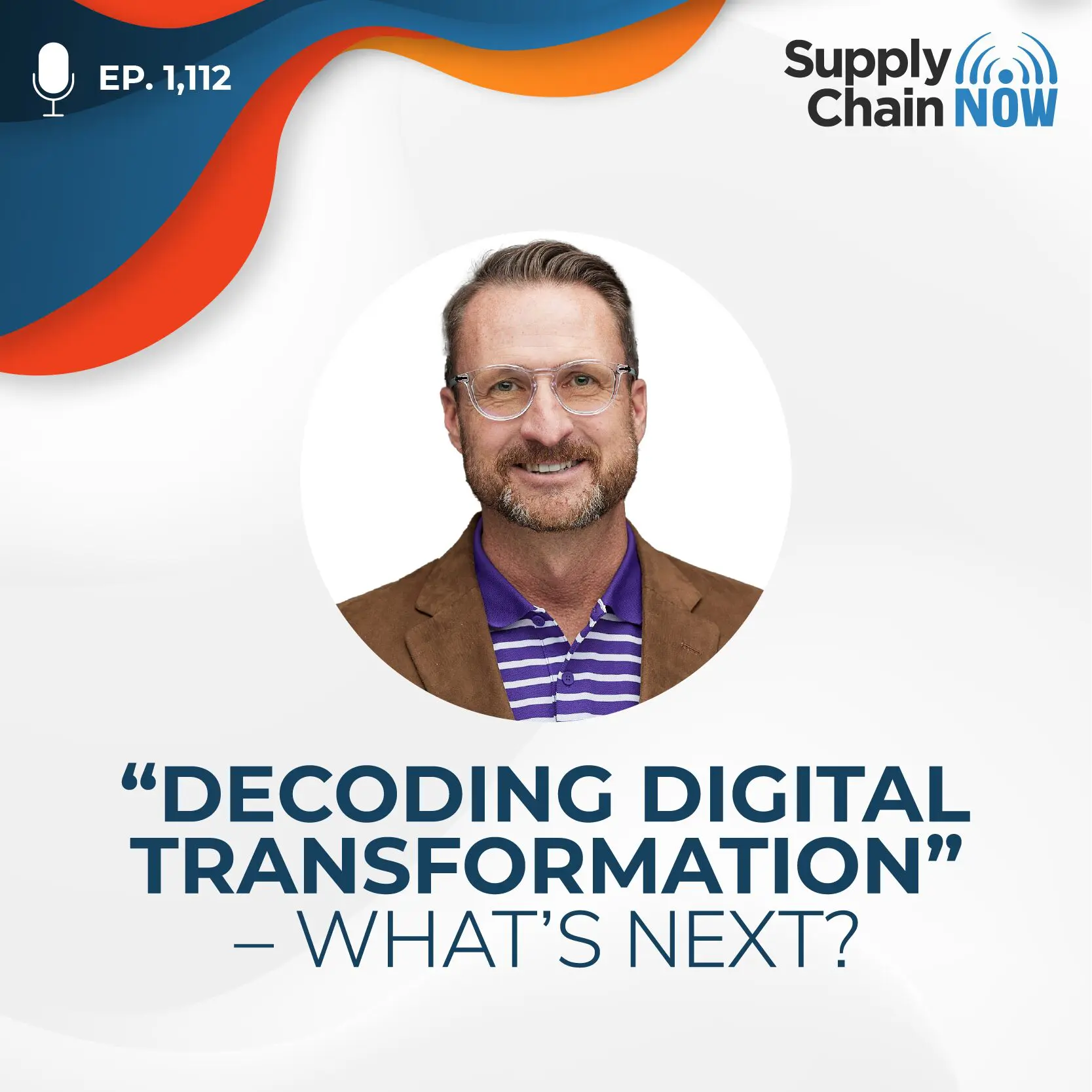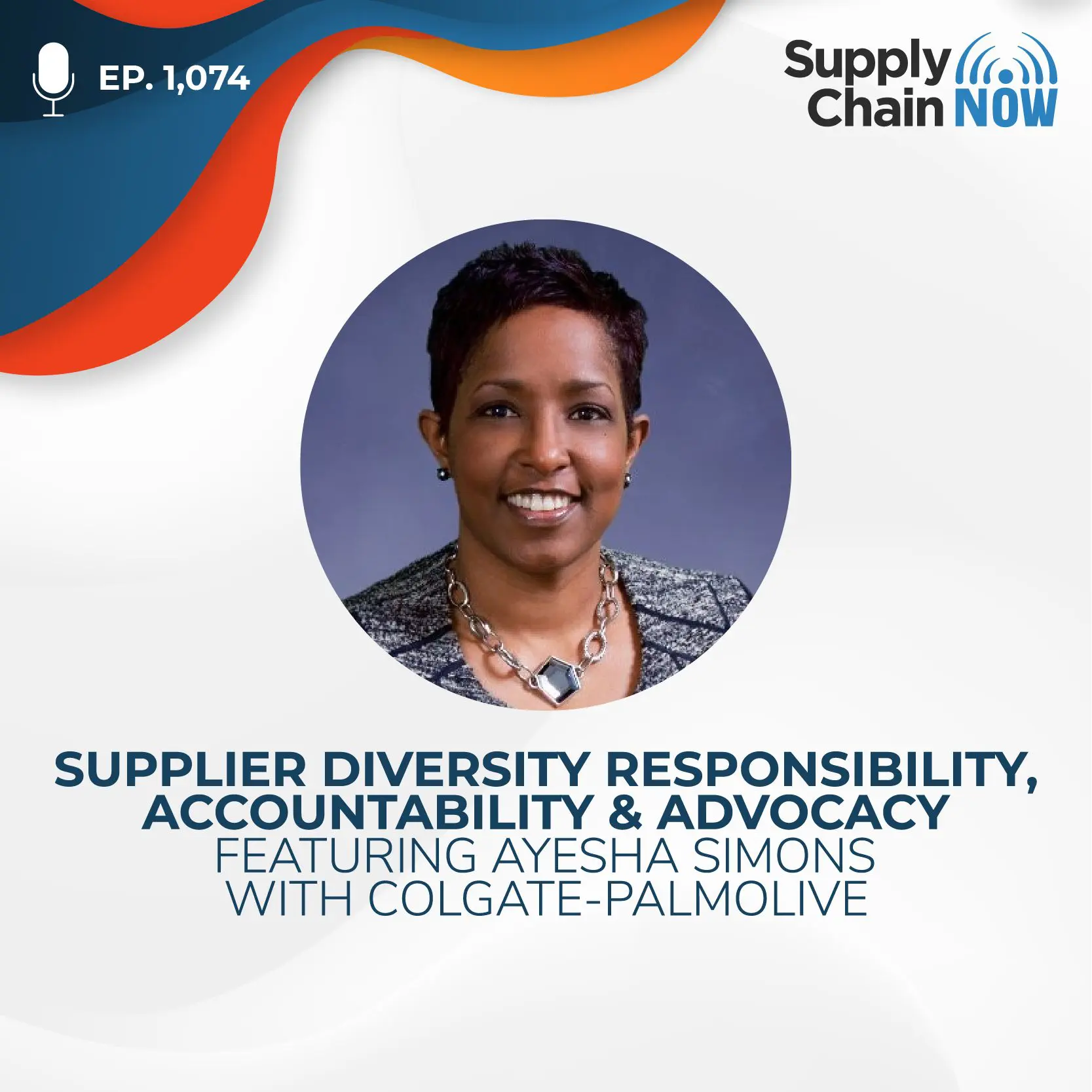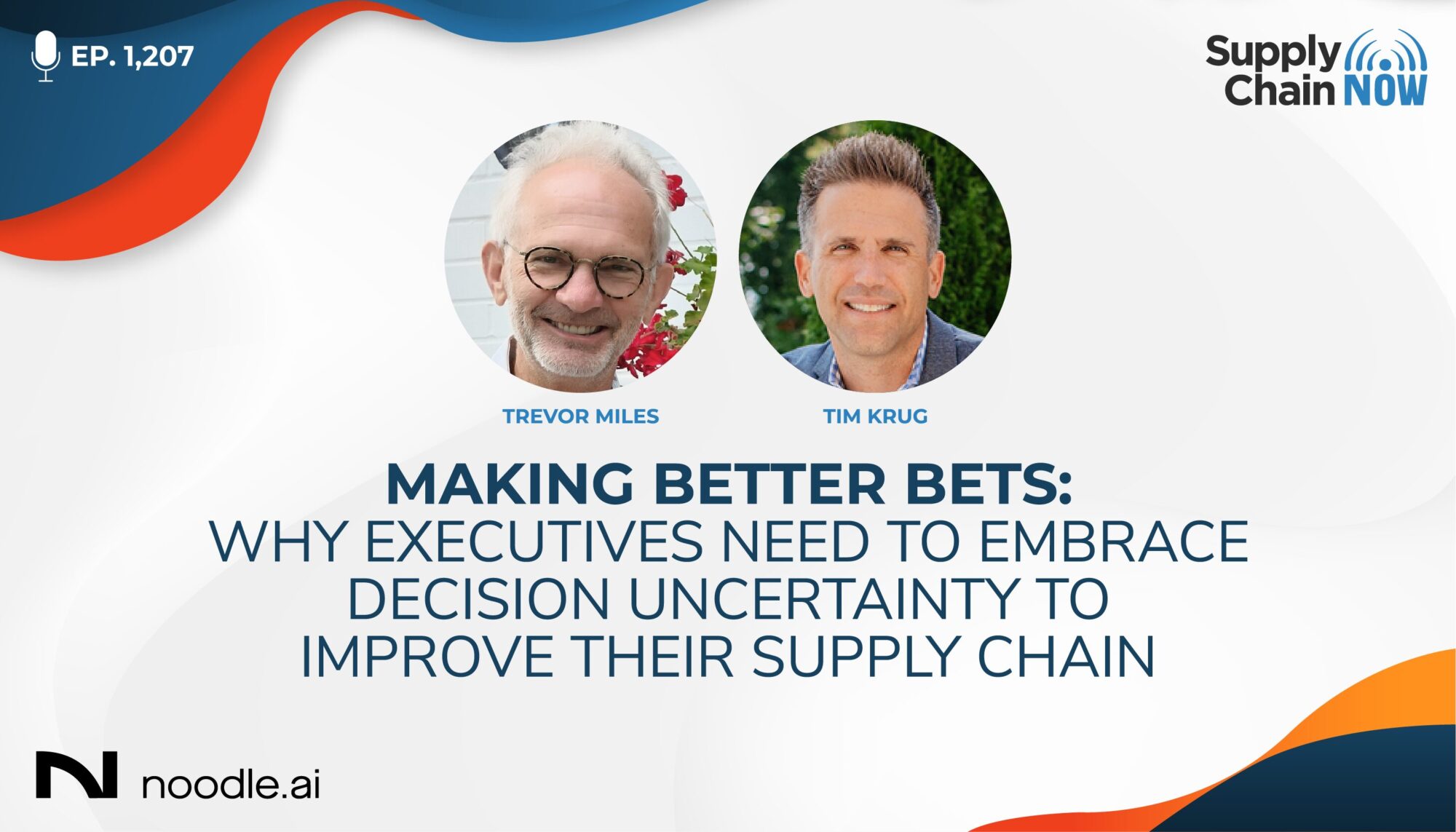
The deck is stacked against you as a supply chain leader or chief supply chain officer because there's a lot of volatility, there's a lot of complexity, and there's a lot of variability that exists in the real world and how you make decisions. But what we're trying to help people do is take the power of probabilities and apply it to their decision-making process so that they can make better decisions and get better outcomes.
-Tim Krug
Episode Summary
In our popular ongoing series with Noodle.ai, “Making Better Supply Chain Bets with the Power of Probabilities,” making better decisions faster and with more confidence has been emphasized repeatedly. In this third podcast episode of the series, hosts Scott Luton and Kevin L. Jackson welcome Noodle.ai CRO Tim Krug, and thought leader Trevor Miles to discuss how leaders can embrace the power of probability, uncertainty, and cutting-edge technologies and apply it to their decision-making processes so that they can make better decisions and get better outcomes.
Listen in and learn:
- Why a probabilistic approach is best when making supply chain decisions
- How more and better quality information improves decision-making and leadership
- How to understand and embrace uncertainty, and why it is critical
- The impact of AI on predicting business and influencing decision making
- The key to capable and confident teams achieving great outcomes
Episode Transcript
Intro/Outro (00:00:03):
Welcome to Supply Chain Now, the voice of global supply chain. Supply Chain Now focuses on the best in the business for our worldwide audience, the people, the technologies, the best practices, and today’s critical issues, the challenges, and opportunities. Stay tuned to hear from those making global business happen right here on Supply Chain Now.
Scott Luton (00:00:32):
Hey, good morning, everyone. Good evening, good afternoon, wherever you are. Scott Luton and Kevin L. Jackson with you here on Supply Chain Now. Welcome to today’s show. Kevin, how you doing today?
Kevin L. Jackson (00:00:43):
Hey, it’s doing great today, except a little nip in the air. I tell you, this winter is coming fast.
Scott Luton (00:00:51):
Well, hey, here’s stateside. I welcome it. It’s 50 — some 55 degrees here in the Metro Atlanta area, and it’s brisk, almost as brisk, Kevin, as today’s conversation’s going to be. We got a lot of good stuff to get to, huh?
Kevin L. Jackson (00:01:03):
Yeah, absolutely. Bound around 35 here, but I’m still [inaudible].
Scott Luton (00:01:08):
Usually you’re flying higher than I am, Kevin, but hey, 35 sounds good too. But Kevin, today I’m looking forward to continuing our new limited run featured series here. We’ve been partnering with our friends at Noodle.ai on this project, a podcast series entitled Making Better Supply Chain Bets with the Power of Probabilities. Now, we’ve had some great feedback from our global audience on these conversations thus far. That’s always a great thing and we’ve spent a ton of time in the first couple episodes diving deep into artificial intelligence and with good reason. But today we’re going to be incorporating a lot more supply chain into our technology discussion, and we’ve got a couple of business leaders, Kevin, that are going to bring it today. So hang on to your hats and get ready for an outstanding conversation. Kevin, you ready to go?
Kevin L. Jackson (00:01:53):
Oh, I’m absolutely ready to go. But I know AI is really important and it’s all the rage, but AI starts with real human intelligence, and that’s what I really like about how Noodle puts all this together.
Scott Luton (00:02:07):
Oh, I’m with you. I’m with you. What a great t-shirt-ism on the front end of today’s episode, Kevin, as always.
Kevin L. Jackson (00:02:14):
To get AI, you need human AI.
Scott Luton (00:02:18):
With that said, I want to introduce our featured guests here today because Kevin’s ready to go. He’s already bringing the heat. So today we feature two guests that bring tons of experience in a variety of areas, especially supply chain and technology. In fact, they spent about 10 years working together at a previous organization, developing a close and powerful working relationship while moving mountains in global supply chain. They both have been proponents for years in terms of the potential for artificial intelligence that truly power transformational change in supply chain management, and especially supply chain planning. So they were all about AI long before AI was cool, and now they’re doing just working together again at Noodle.ai. So I want to welcome in Tim Krug, chief revenue officer with Noodle.ai. Tim, how you doing?
Tim Krug (00:03:05):
Doing great.
Scott Luton (00:03:06):
Great.
Tim Krug (00:03:06):
Thank you, Scott. Great to be here.
Scott Luton (00:03:08):
Great to have you here. And you brought the other half of your dynamic duo, Trevor Miles, thought leader also at Noodle.ai. Trevor, how are you doing?
Trevor Miles (00:03:16):
Very good. Thank you, Scott.
Scott Luton (00:03:18):
Well great.
Trevor Miles (00:03:19):
Just a sidebar, it’s 72 degrees here.
Kevin L. Jackson (00:03:21):
Oh, no.
Scott Luton (00:03:24):
All right, so we’ve got to go around. So 72, so it’s the warmest maybe in Portugal where Trevor is. All right, Tim, give us the temp check.
Tim Krug (00:03:33):
Fifty-two, 52 degrees.
Scott Luton (00:03:35):
All right. So Trevor, you get the balmy nice tropical weather at least this time of year, so I bet it’s pretty there in Portugal. But great to have y’all here, really from doing our homework, the passion y’all both bring in terms of doing business different. We’re going to get into a lot of that and what that means in real practical terms, especially in supply chain. So listeners stay tuned for that. But on the front end, Kevin, I want to give our listeners an opportunity to learn a little bit more about Trevor and Tim. And Tim, I’m going to start with you because while you reside in the Nashville area, you’re a big Chicago Cubs fan, of course, major league baseball team. So what’s been one of your favorite experiences, either at a Cubs game or as a Cubs fan?
Tim Krug (00:04:19):
Sure. There’s a lot of great Cubs memories, and we just relocated down here to Nashville just over two years ago. So I grew up in the western suburbs of Chicago, and by far my favorite memory of being at a Cubs game was actually at game 7 of the World Series in 2016. I was also at game 6 of the World Series, so both in Cleveland when hell froze over and the Chicago Cubs won the World Series; 2016, my wife declared going into 2016 that it was going to be the year of the Krugs.
Kevin L. Jackson (00:05:01):
What an experience.
Tim Krug (00:05:01):
We found out that we were pregnant with twins that year and the Cubs won the World Series. So if any listeners are wondering, you can just declare in a couple months that it’s going to be the year of you or your family. And based on my experience with my wife, it works out.
Scott Luton (00:05:23):
Well, you’re speaking to universe and it come to fruition, Tim. That’s what you’re saying, right?
Tim Krug (00:05:28):
Exactly. Manifested into reality.
Kevin L. Jackson (00:05:31):
It’s all about thoughts, man.
Tim Krug (00:05:28):
Exactly. And I did not — just to go back to the Cubs as a Cubs fan, a true Cubs fan, I had the tickets to game 6 and game 7, and for those that don’t remember, we were down three games to one in the World Series. So when game 5 rolled around in Chicago, I was talking to my wife and saying, “I just hope they lose at this point. I don’t want to fly to Cleveland and watch them lose.”
Kevin L. Jackson (00:06:01):
And they lose there, yeah.
Tim Krug (00:06:03):
Or experience the vibe. Yeah, just being that this was the opposite of my wife’s manifesting things into reality, but she’s like, “No, have confidence. This is the year of the Krugs. Cubs are going to pull it out.” And game 6 and game 7 and, yeah, what a great memory and having the opportunity to be there in person.
Scott Luton (00:06:20):
Love it.
Tim Krug (00:06:21):
Hopefully we’re not waiting another a hundred years to get another world.
Scott Luton (00:06:25):
Love it. That brings two thoughts to mind, Tim. First off, Kevin, before you claim it, I’m going to call 2024 of the year the Lutons. I’m going to go ahead and claim that, Kevin, before you can.
Kevin L. Jackson (00:06:35):
Wow. You’re fast, man. You’re really fast.
Scott Luton (00:06:35):
And second — we try, not most of the time. And then secondly, really quick, Tim, I want to say Jason Heyward, former Atlanta Brave, a hometown player, had a great leadership role in that 2016 Cubs team that went on and changed history. So that’s awesome. Thank you for sharing and congrats on that big year and I’m sure plenty sense. Kevin, I’m going to get you to comment. Let’s switch over to Trevor and then I’m going to get Kevin’s commentary on this incredible panel we’ve got here. So, Trevor, welcome to the show. Congrats on joining Noodle.ai a few months back after doing so many big things in the industry. And before we get into our discussion today, I want to ask you, on your LinkedIn profile, you’ve got this great quote and this great picture of Frank Zappa. Now, my question is, are you a big fan of the quote? Are you a big fan of Frank Zappa or both?
Trevor Miles (00:07:25):
Well, it is both actually. At one stage I can say that I had about six of these albums, but no one has albums anymore. My wife sold those without me knowing.
Kevin L. Jackson (00:07:35):
All the vinyl gone? No.
Trevor Miles (00:07:38):
All the vinyl is gone. My wife, they admitted that she had sold it for about 150 Canadian dollars and that was about 30, about a hundred feet of vinyl. But it was quite amazing. But the more serious point is the quote. I’ve always liked Zappa as a Maverick. He’s always challenging or was, and all of these challenging capabilities and ideas and all of that. But this quote is the most important thing, “Mind is like the parachute. It doesn’t work if it’s not open.” So I think that’s the wonderful right now.
Kevin L. Jackson (00:08:16):
Wow. That’s great.
Scott Luton (00:08:16):
Oh, Trevor, absolutely. Well, Kevin, I’m going to get you to comment on that because I think that’s probably one of those universal quotes and points of view that’s always relevant. But, gosh, having an open mind here in recent years, it may be more relevant than ever before. Kevin, speak on that or speak about this collection of panelists we’ve got here.
Kevin L. Jackson (00:08:36):
Well, a couple of things. First of all, when you have an open mind, you can also imagine the future. And I think it’s really important in the conversation we’re going to have because when you’re thinking about the future, when you’re thinking about what’s going to happen in the future, when you’re thinking about making better bets on what the future will bring, it really takes an open mind. It also takes a belief in your own capability and to leverage what’s happened in the past to improve your vision of the future. And I think that’s really what we’re doing here with this probabilistic approach by leveraging artificial intelligence and putting that together with what really happened in the past to have a much better view, to be a Nostradamus of what’s coming in your own business. That’s what I think it’s really important and that’s the importance of having an open mind and a clear view. That’s what I really like about this panel.
Scott Luton (00:09:47):
Kevin just raised the dramatic element at play here with Nostradamus. Trevor, one quick follow-up question to that and, Kevin, well said. So obviously you’re a music lover, you want to share any — so I hate to hear about your vinyl album collection, but have you bought a recent album that you’re a big fan of? What are you tracking right now when it comes to music?
Trevor Miles (00:10:07):
Well, I’m getting into a lot of the Latin stuff on Spotify. So big playlists on Spotify. My daughter’s a huge, and now I’m going to forget her — what’s the young woman from Nashville?
Scott Luton (00:10:18):
Oh, Taylor Swift.
Trevor Miles (00:10:20):
She’s a huge Swiftie and she actually went to Seattle where my son and daughter-in-law live and went to one of the concerts with him in Seattle. So we get inundated with Swiftie music and I have to say that some of it’s grown on me, which I wouldn’t have said was possible five years ago. But I do find she’s an interesting young woman and quite a strong character.
Scott Luton (00:10:46):
And talented. Trevor, I echo what you said. What’s that, Kevin?
Kevin L. Jackson (00:10:49):
Yeah, that really must mean you have an open mind if you’re doing that. Actually, I heard the other day on NBC news that Bryan West is now on covering, to quote, Taylor Swift beat. That’s his job.
Scott Luton (00:11:07):
Really?
Kevin L. Jackson (00:11:08):
Can you imagine that? You’re a newscaster and that’s all you get to do is cover Taylor Swift.
Trevor Miles (00:11:15):
Yeah, Taylor Swift.
Scott Luton (00:11:16):
Hey, it’s her world. We just live in it. That’s where we are. But I’ll tell you, incredibly talented musician, and of course my daughters much like yours, Trevor, huge, huge fans of — my family, huge, huge fans. Okay. So now we are going to really cover all of our bases today because Taylor Swift made an appearance in this technology and supply chain leadership conversation we’re having. But great [inaudible].
Kevin L. Jackson (00:11:37):
This show’s going to be top of the charts. Guaranteed.
Scott Luton (00:11:41):
That’s right. Still great to meet you and Trevor and get to know y’all a little bit better here on the front end. So we’re going to shift gears though. We’ve got a lot to get to here today. So, Kevin, as I segue here, have you ever gambled in the casino? You don’t have to tell me good or bad, but what’s your game?
Kevin L. Jackson (00:11:58):
I actually have gone to a casino quite a bit. My son lives in Vegas, man.
Scott Luton (00:12:05):
Yeah, that’s right, that’s right. I forgot that for a second.
Kevin L. Jackson (00:12:08):
And in fact, one of the biggest wins though weren’t in Vegas. I was in New Orleans, at the Harrah’s in New Orleans, with my wife and we were waiting, we’re doing a show, I was doing a show there and then we walked into the casino, Harrah’s Casino, and we just walked to the first slot machine, put a dollar in and 800 came out. And it was like —
Scott Luton (00:12:32):
Did you stop?
Kevin L. Jackson (00:12:34):
We did. She said, “Take it. Stop. We’re going to do anything else.” And I got the cash and had some dinner and we had to recreate — I forget what movie it was, but we went to a hotel room, she sat on the bed, and just threw the cash on top and got some pictures.
Scott Luton (00:12:52):
Hey, you’re one of the few that stopped while you’re ahead, Kevin. That’s such a great story and not to be too dramatic, but we have a great opportunity by leaning into cutting edge technology to not only stop while you’re ahead, but continue getting more and more ahead. That’s what we’re going to be talking about here today.
Kevin L. Jackson (00:13:08):
Yes.
Scott Luton (00:13:09):
So, Kevin, the main topic, really looking at supply chain management through a gambler’s eyes and perspective, and a big part of the game is truly making better bets. So we’re going to be talking about how embracing and understanding uncertainty. It’s critical to placing better bets and making better decisions such as in Kevin’s story, stopping while you’re ahead and using those winnings for fun things. So I want to build a foundation first, Tim, Trevor, and Kevin. So I bet we’ve got just like Kevin, I’ve tried my hand very poorly in Vegas and other places that really enjoy that and I bet we’ve got some gamblers in our audience and plenty that have never gambled I bet that are listening. So to level set, Tim, what can supply chain leaders learn from high stakes gamblers you think?
Tim Krug (00:13:52):
Yeah, I think the first thing is just going back to the Kevin story and just thinking about Vegas, even people that haven’t been to Vegas, is people have a vision of what the casinos look like and all these marble floors and the oxygen being pumped into the room and these huge buffets and they don’t have all this beauty that they have from giving money away. They’re making money. And I think a lot of supply chain executives today and just looking at even what’s happened over the last couple of years with COVID, I think a lot of people feel like the deck is stacked against them, just like people walking into the casino and seeing that obviously the house is winning. The deck is stacked against you as a supply chain leader or chief supply chain officer because there’s a lot of volatility, there’s a lot of complexity, there’s a lot of variability that exists in the real world and how you make decisions. At Noodle, we think that everyday supply chain decisions are the equivalent to placing a bet because you’re risking money on the uncertain outcome of a future event. And that’s really the definition of betting.
Tim Krug (00:15:14):
And so, our view in the title of this podcast is that there is a way, just like high stakes gamblers. There are people that win more frequently than they lose. The house isn’t always beating down, and their secret sauce is using the power of probability to their advantage to be able to make decisions. And if you make decisions when you’re consistently most likely to win, over time if that’s your strategy, if you’re betting when you have an 80% chance of winning, then over time you’re going to win a lot of money. And so that’s really what we’re trying to help people do is take the power of probabilities and apply it to their decision making process so that they can make better decisions and get better outcomes.
Scott Luton (00:16:04):
Well said, making better decisions faster that the team and leadership is more confident in. I really appreciate what you shared there. Trevor, what would you add in terms of what supply chain leaders can learn from high-stake gamblers?
Trevor Miles (00:16:18):
Well, Scott, I think they first need to learn and understand that the tools they have been using for a long time do not offer them this opportunity of understanding what the probabilities are. So the best way I can describe what they do right now is imagine you have to take your trip with Google and you use Google Maps and comes up with a distance. You live in the Atlanta Metro area, you know that the traffic can get very clogged up at times, et cetera. So if Google tells you you’ve got an hour and 13 minutes to go to where your destination, when are you going to leave?
Scott Luton (00:16:59):
About five hours early, Trevor.
Trevor Miles (00:17:03):
Exactly because there’s uncertainty. There’s uncertainty in that number. But Google only gives you one number. So you don’t know how much to buffer that time because Google doesn’t say that’s going to be somewhere between an hour and hour and 30, in which case if it was a really important meeting, you’d leave an hour and 30 before. But if it was to go and see friends, you’d leave an hour before. But because Google doesn’t tell you what that range is, you have no way of making the decision so you leave five hours early. And that’s the fundamental thing that’s wrong right now and what Tim is talking about is we lift those probabilities. We make those probabilities available to the people so they can understand how to place their bets. Because if there’s only a 10% chance of making it, why place the bet? If there’s an 80% chance of making it, place the bet. But the existing tools don’t tell them that information so they have no idea.
Scott Luton (00:18:06):
Trevor, I love that example. And, Kevin, I’m going to get you to comment. I love that example because having navigated Atlanta traffic for 20 years now —
Kevin L. Jackson (00:18:13):
Oh, you’ve never been in DC traffic.
Scott Luton (00:18:16):
Well, I’ve heard bad things there and I experienced that a little bit, Kevin. But kidding aside that difference between hour and 30 minutes I think is the first figure that Trevor used in five hours. That three hours and 47 minutes of math is right, is such a huge opportunity and let’s use it as an opportunity rather than just waste it. It’s one of the bigger points Trevor’s making. Kevin, what would you add in terms of what Tim and Trevor has shared here?
Kevin L. Jackson (00:18:39):
When you think about this, when you’re looking at a broker for instance, they always say past performance is no guarantee of the future, when I tell you something but you can’t believe it. But this is different, it seems, right? We’re not trying to guarantee the future. We’re just trying to give you some idea of the risk of the future so that you can make smart decisions. So if you’re trying to get to an interview, you make sure you leave five hours early. But if it’s just to go with your friends or you’re doing something that doesn’t really have a start or finish time, you can just take the risk because it doesn’t really matter. I think being smart is about having knowledge of the source of information and the boundaries, what could happen in a good side and also what could happen on the bad side so that you can make the decision.
Scott Luton (00:19:50):
Kevin, I love that. I love how you very casually kind of mentioned scenarios, different scenario planning opportunities, right? That’s great. So, Trevor, I’m going to come back with you. I’m going to keep here with you. How deterministic planning models constrain supply chain executives, Trevor?
Trevor Miles (00:20:06):
So they give hopelessly optimistic estimates of what the supply chain can actually do. Now some of them go as we were talking about essentially making buffers. You were talking about buffering the time it takes you to travel and Kevin was talking about risk profile and all of that. But basically, what you’re trying to do is decide how are you’re going to make sure that you get to the end point, and this is where people then place the wrong end rate, the wrong place and the wrong quantity because they had no idea what the variability was. They only had one number, the solution gave them. So they’re making bad bets the whole time because they have no idea what the probabilities are of winning it. So as a consequence, they always are playing from behind the eight ball to mixed metaphors, but they’re always in this position where they don’t know how uncertain it is. And quite honestly, on the other side of Kevin’s statement, it’s not really risk, but where’s the opportunity? This thing we wanted to do might have only 10%, but there’s this other egg that’s just off site but it’s got an 80% probability, but it looks good, so let’s go for it.
Scott Luton (00:21:23):
Yes.
Trevor Miles (00:21:24):
But they don’t have that information at their fingertips, so they can’t make those decisions.
Scott Luton (00:21:30):
Trevor, excellent point. And we’re putting self-constraints on the performance of our organization by doing that, Trevor, very self-limiting. Tim, what would you add in terms of these deterministic, more traditional planning models?
Tim Krug (00:21:43):
I just go back to what I alluded to in the beginning is that we find from our conversations with chief supply chain officers that there’s just so much frustration that exists that people feel like they’re making these decisions and they’re losing, they’re making bets and they’re losing. And there’s a lot of frustration. I think people recognize that the technology that they’re using that has these deterministic approaches is 30 years old. The fundamental approach to supply chain planning and the math that’s being used and how decisions are made is from three decades ago, like we’re living in the ’90s, right?
Kevin L. Jackson (00:22:29):
That’s sort of like a —
Tim Krug (00:22:30):
Before Taylor Swift was even born.
Kevin L. Jackson (00:22:34):
Yeah. That’s sort of trying to drive through Atlanta or DC with one of those paper maps, right? You go like this and it doesn’t change. You don’t have Google to tell you when you go in that direction, there’s an accident 75% of the time.
Tim Krug (00:22:50):
Right. Yeah. So I think there’s almost like a feeling of frustration, sometimes hopelessness, that it’s like people know inherently that there’s got to be a better way than how they’re making decisions right now, but they don’t have — the information is being withheld from them, even just some of the topics on risk or opportunity. As an executive, I’m making decisions based off of emotion a lot of time. I don’t know that this decision I’m about to make has a 10% likelihood of winning or an 80% chance of winning. I want to have that information at my disposal and be able to evaluate my decisions, not just based off of the outcome of them, but the information that I use to make the decision. Did I make a good decision with the information at hand? And I can live with losses if I knew the information when I was making a decision versus just losing and not having a knowledge of what the risk or opportunity was when I made the decision.
Scott Luton (00:24:11):
Excellent point, Tim. And when we gain confidence in the right decisions, a team can really garner more and more organizational confidence. And, goodness gracious, you can really move mountains when you’ve got a confident team with more information, they’re making better and faster decisions that they’re confident in. Kevin, your quick comment before I move on to our next topic.
Kevin L. Jackson (00:24:32):
Well, the more information you can get, the more coloring of that information, the better decisions you can make. And it also improves the leadership and collaboration across the team. And in today’s world, it’s really all about how your whole business ecosystem works together as a team. So I think that really key is that collaboration and leveraging information to improve collaboration.
Scott Luton (00:25:05):
Great point, Kevin. Modern day supply chain, ecosystems, suppliers, the manufacturers, your customers, you name it, everybody is part of the ecosystem and that’s kind of how we’re viewing successful decisions through that prism rather than just one node or one segment.
Kevin L. Jackson (00:25:24):
Right. Misnomer, that misnomer. It’s not a supply chain, right? It’s a supply network.
Scott Luton (00:25:30):
Right. Or web, as I’ve heard. My son’s a big Spider-Man fan. So we’ve had a lot of fun with supply webs. All right. So I feel like we could have a six hour really fun, someone get the adult beverages. We’re going to have a long chat. Tim and Trevor, I think, Kevin and I are filled with a lot of kindred spirits here. [Inaudible].
Kevin L. Jackson (00:25:48):
Stop the clock somewhere in the world. Let’s make it happen.
Scott Luton (00:25:52):
You know we’re having a lot of fun when I can’t quite get the next point out. But as I referenced, Kevin, Tim, and Trevor on the front end, in the first couple episodes of this series, we enjoyed really intriguing and thought-provoking discussions on artificial intelligence. So I want to just level set with both of y’all, and, Tim, I’ll circle back to you. Why is AI pivotal to reshaping the supply chain landscape and truly powerfully, practically changing the status quo?
Tim Krug (00:26:22):
When I think about just building off of the last thing that we were talking about, the legacy technology, the current technology that people are using was based off of the computational power and the cost of compute and memory 30 years ago. And that is what people are using to make decisions in their businesses, in the supply chain space. And then in their personal life, they have access to ChatGPT, right, where it is the culmination of computing power, innovation, transformation, the reduction in costs on memory and storage and things of that nature. It’s those things that have made the power of probabilities usable in supply chain and that if you’re living in a world where you’re constrained on compute and you have to limit yourselves to lead time is always going to be four days for something. That’s the framework that people are still operating in.
Tim Krug (00:27:36):
But we know that AI, practical applications of AI exist in our personal lives and why can’t we apply those same principles to supply chain decision-making. And one of the things that I think is so fascinating about this concept of probabilities is that we’re all — I think most people listening are probably familiar with ChatGPT and have tested it for themselves. Fundamentally, what it’s doing is using probabilities. It’s predicting what the next word should be used based off of the text that has already been constructed. It is a probabilistic system. It is generative AI. And those techniques, they aren’t just applicable to large language models and text; they’re applicable to the supply chain. And we’re convinced that it is going to totally transform the way that supply chain leaders and businesses are run.
Kevin L. Jackson (00:28:40):
Yeah. Can I pull a little bit on that statement though?
Scott Luton (00:28:42):
Sure, please, Kevin.
Kevin L. Jackson (00:28:43):
Because one of the, I guess, growing skillsets in this world and it’s of ChatGPT is called prompt engineering, where you have to figure out what prompts to put into ChatGPT so that you could get relevant answers to your problem. So in a way, it seems to me that we’re kind of going backwards. It’s all about asking the right question as opposed to having all this technology in front of you. You need to have an understanding of your needs and your business process sensitivities so that you can ask the right question. And without asking the right question, the answer really can be gibberish. Is that true? This seems to be more important, or a critical part of this is knowing the business so that you can ask the right questions. Is that true?
Scott Luton (00:29:56):
Yeah. So, Trevor, why don’t you — if you speak to that and then also continue on about the power of how pivotal it is to reshaping how supply chain works.
Trevor Miles (00:30:05):
Yes. I would start with Kevin’s classification of this is going backwards. I think it’s going forwards because it requires the people to actually understand the business context as opposed to merely a number of contexts. So I think it’s going forward. They need to understand what questions to ask. But quite honestly, I’m going to go way back into history. The first computer I touched was at university, and I can still only touch a type with these six fingers.
Kevin L. Jackson (00:30:39):
Sounds like me.
Trevor Miles (00:30:39):
I cannot not type with all of my fingers. So in all seriousness, I’d love to have a UI which I could ask questions and get results that are presented to me without having first specified this to a design engineer who then has to go and put together some description and bring it back to me and say, is this good enough? And go backwards and forwards in that way. But for me to be able to ask a contextually relevant question to the system and get an answer back in a matter in which I can consume it, I think it’s wonderful. It’s a big step forward. But let’s go back really to where Tim was starting from. The first point is to make is that, emphasize that generative AI is probabilistic. So even within the context of supply chain, it is still probabilistic. Okay? So the contrast here is deterministic versus probabilistic. So generative AI won’t tell you what the answer is, but it’ll tell you the most likely answer. So it’s telling you what the probability is that you’re going to win, and then you can make that decision on, okay, how do I want to scale those probabilities. As you were saying earlier, Scott, or I can’t remember, it might’ve been Kevin, if I’m going for dinner with friends, then hey, I can have a low cost of failure. But if I’m going for an interview, I have a high cost of failure. But if you’ve got those probabilities, you can do that.
Trevor Miles (00:32:19):
But I still think that one lacks really valuable. The most valuable part of the generative AI is that it is auto-tuning and auto-learning. So let me describe how deterministic solutions are put into place right now. So when it makes a decision with army of consultants come in, we start turning the dials or the configuration parameters, there’s lots of exercise, 18 months is nothing for a deployment, and now you have your solution list running. But what happens when the business changes? How often do people go back to those principle dials that they set and question whether those dials are still the right ones? Well, what happens in generative AI is that it’s learning. It said, “Hey, I told Tim to go an hour and 15 minutes before, but he was late, so I need to adjust that to probably an hour and 25 to give him enough.” So it’s learning from what it’s telling the company to do and the results that are generated from that, which is a big, big difference from existing solutions. So I think the combination of that probabilistic, which allows you to then set your risk profile and the regenerative as we call it because you are learning, you’re updating, I think these are just breakthroughs that people have not experienced in the past.
Scott Luton (00:33:51):
Excellent point, Trevor. I’m going to keep driving a little bit and then I’m going to circle back, Kevin, and get your commentary after Tim and Trevor addressed this next one because all these conversations have evolved a good bit and I think we’ve really hit on probabilistic planning, easy for them to say a lot here. So, Tim, I’ll circle back to you. You may want to put a little more definition on that term, but we’ve already kind of implied and spoken to Noodle.ai’s approach. So if you could put a little color on how y’all define probabilistic planning and how Noodle.ai’s approach is different than some of the traditional decision-making and planning methodologies that we’ve been speaking to on the first half of the conversation. Tim?
Tim Krug (00:34:32):
Yeah, so we’re currently thinking about this in typically a two-step process because it’s no secret that people spend years, and Trevor was alluding to this and tens of millions of dollars deploying an advanced planning system. And if you look at the market cap of the big competitors to SAP, for example, like Trevor and I’s previous employer, over the course of COVID, it has just highlighted the fact that people needed to change. They were looking for a new approach. And so, they’ve invested in advanced planning systems. And the first step that we think is that we provide a system on top. We compliment the current technology investments that they’ve already made, and we do what we call intelligent correction.
Tim Krug (00:35:24):
So we take the planning results out of their advanced planning system, we take what actually is being executed out of the execution system, and we compute probability which those systems don’t understand. And then we do a series of steps to try to do this intelligent correction of the plan. So we do a demand prediction. We do a supply prediction. We calculate what the value at risk is, the expected value at risk associated with that. And then we generate these corrective actions using the concepts that Trevor was saying, reinforcement learning, graph neural networks. And we send those messages back to the planning system or an execution system. And by doing that, taking that approach where we’re [inaudible] and we’re complimenting the current system, one of the things that we think will be helpful to the market is you’ll always have a view of what was my plan telling me and my current planning system. And then what was the AI, what was Noodle suggesting I should change based off of probabilities? And those things will then be binary. It’s either I as the human or the company took the AI recommendations or I didn’t, and there’s going to be a financial ledger on a weekly basis. Did I take the action or not? And what was the financial consequence?
Tim Krug (00:36:59):
So, in this way, we think that this will give people the confidence in AI, is that I will be able to see the financial value of the recommendations that the AI is giving me. Did I get a financial benefit or not? And I think that first step is chief supply chain officers or CFOs have a real hard time answering the question of what is the financial value of my advanced planning system? Or even what is the benefit of deploying SAP and doing S/4HANA upgrade? What’s the business case associated with that? I have to do it whereas being able to see this ledger saying, “Hey, this was what the AI did for me last week.” So that’s the first step.
Tim Krug (00:37:51):
And then, the second step of where we’re going is instead of just doing intelligent correction of planning systems that are creating plans that aren’t feasible to begin with and using probabilities to correct them, just transition to a planning system that is probabilistic by nature, that is using generative AI. And so, we endeavored to make this a reality in the next 18 to 24 months is be able to give people what we call regenerative planning system that’s capable of replacing their current technology and do end-to-end planning that’s based off of generative AI.
Scott Luton (00:38:34):
Tim, that’s exciting. I wish I had my shades because it sounds like not only the current state but the future is bright. Kevin, I knew you were trying to get in a quick comment there. Before I go to Trevor, Kevin, what were you going to share based on what Tim shared?
Kevin L. Jackson (00:38:46):
Well, I kind of like Tim’s discussion as you can check the ledger, right? It’s sort of like you can go to tape, but it actually brings to the forefront the cost of decision and non-decision because you can say, okay, I wanted to do this. Noodle.ai told me to do that, and I didn’t do either one. Okay? And the ledger will tell you, well, because you didn’t make a decision, it cost you this much money, or you made this decision, it made you this. You made that decision, it made you less. So it seems like Noodle is bringing the holy grail, right, trying to give you the bottom line on not just decisions you make but non-decisions that you may make.
Scott Luton (00:39:42):
A little Indiana Jones reference there. And, Trevor, I’m coming to you because I want to get you to speak more on what Tim was sharing and the true difference and competitive advantage of what Noodel.ai is doing. But before, I love, Tim, one of the themes you’re talking about there that we love talking about around here is the power of the and versus the tyranny of the or. I don’t know if that makes sense to y’all, but I heard a lot of that in what Tim’s response. So, Trevor, talk about why this is different.
Trevor Miles (00:40:08):
Well, there’s several ways in which that can be addressed, and we need to start even at Kevin’s statement much, much earlier that prompt engineering is coming in because it’s going to necessitate the people actually use these tools differently. But let me be very careful. I’ve said for a long time that AI isn’t going to take the people out of the process. AI is going to take the robot out of the people.
Kevin L. Jackson (00:40:36):
Yes, I love that.
Scott Luton (00:40:38):
I do, too. I’m going to steal that, Trevor.
Trevor Miles (00:40:42):
They’re going to be doing different things, but some might need to be upskilled in all of this type of thing. But principally what AI is going to give them is this ability to ask a lot of questions and get an end-to-end answer and with a probability that they’re going to be able to arrive at that result. If they’re looking at three different options of doing things, one might look very, very nice from a financial perspective. There’s a low probability of achieving it. There’s something else that’s less likely, a less fantastic from a financial perspective, but there’s a high probability of achieving it. Well, which one are you going to go for? In my opinion, you should go for the one that has the highest probability. Or the other side which Noodle will be able to do as well is tell you what’s hindering you, the high value one with low probability but what’s causing you to have low probability so you can go and make a change to your supply chain in order to improve your probabilities. But if you didn’t know what was causing you that low probability, you wouldn’t even be able to fix it.
Trevor Miles (00:42:00):
So these things are going to change the way in which people use systems quite dramatically because what I’ve talked about there is first of all, the way in which people interact with the system, it will be, I believe, much more of a prompt type of environment. But the other one is it’s not just what is my result because I can’t then calculate what other answers I could get. It’s, well, what’s causing me to get a bad result and how quickly can I fix it. So that’s going to be a big, big change in how we do things.
Scott Luton (00:42:33):
Trevor, I love it. Kevin, I’m going to get you to comment really quick, but I want to make a quick, what I’m hearing kind of quantification is another theme here, what Tim and Kevin and Trevor are all sharing. But all things are not equal. The cost of not knowing what I’m thinking after hearing all this is skyrocketing now based on the art of the possible, and the opportunities are out there. So Trevor and Tim, this is exciting. Kevin, your quick comment, I know that you love that Trevor’s quote about it’s not going to take the people, I’m paraphrasing, not take the people out, but it takes a robot out of the people. Love that, Trevor. Kevin?
Kevin L. Jackson (00:43:08):
Yeah, take the robot out of the people. And it emphasizes what I’ve been sort of thinking is that this makes — Noodle makes people even more important because it’s the people that better understand the context of the decision. It’s the people that better understand the intangibles that you can’t put into a system, and it’s the context and the intangibles that the people bring. That’s, once again, you’re taking the robot out, you’re taking out the things that, oh, anything can do, any software can do. You’re really highlighting what the real software up there in the head can do.
Trevor Miles (00:43:58):
Yes, yes. Exactly.
Scott Luton (00:44:00):
Very poetic, Kevin.
Tim Krug (00:44:02):
Yeah, I think that’s one of the things, if you follow Lora Cecere and other analysts that talk about this is, if you look over the course of the next five to 10 years, the talent gap in supply chain and planning specifically, and a lot of the frustration that new entries into the profession feel because they have this life experience of using their iPhone and all this great technology, and then they find themselves working in spreadsheets and doing all this gymnastics like moving data around, and that’s the robot that Trevor’s talking about that we’re trying to take out of the people. And I think that is going to give people way more job satisfaction because they’re going to be able to make decisions with a better understanding of the value that they’re driving for the business instead of just sitting in the silo and moving numbers around, having no idea the value [inaudible].
Kevin L. Jackson (00:45:06):
Staring at the spreadsheet.
Scott Luton (00:45:11):
Not very fulfilling. All right. So, Tim, let’s stick with you for a second because I want to get you to speak to the so-what here, right? So if we have listeners out there that haven’t bought into anything we’ve shared yet, I know you’ve got your finger on the pulse because you’re working with organizations that have really seen some real tangible benefits by leveraging probabilistic planning, of course things you’re doing in Noodle.ai. So give us some of those examples if you would, Tim.
Tim Krug (00:45:36):
Yeah, the easiest way I think about this, the reason to do anything in business is to make money or save money. And so, on the making money standpoint, by having this type of information available to us, getting the right inventory to the right location at the right time, that is providing a service that’s hitting your OTIF metric, On Time In Full, that’s making sure that you have the right things at the right place so you can capture the revenue opportunity. And during the COVID times, this is what most people were focused on because people were operating in a supply-constrained environment. Particularly in consumer-packaged goods, everybody was stocking their pantries with stuff. And a lot of companies that we were engaged with at that time and now they were just making everything that they could because the perception was that people were going to buy it, let’s keep the factory rolling and get things out there. And the worst-case scenario is I’m not going to be able to capture revenue.
Tim Krug (00:46:36):
And so, by using these techniques and using the power of probabilities, at that time we were helping people capture revenue opportunity, deliver on their service expectations, avoid being fined from their partners for not meeting the service expectations. What we’re seeing now is as people have come out of this and now we’re operating in more of a demand-constrained environment, it’s all about cash and trying to make better decisions to improve working capital. And so, in today’s world, that’s the impact that we’re seeing is if I can improve my forecast accuracy, for example, by using some of the AI techniques even on the demand side, and I can get 10, 15, 20% more accuracy on forecast, that means that I’m not going to have inventory that I need to stock at a location that’s got potentially be excess or obsolete. I’m not going to have to carry that inventory and pay inventory and carrying costs.
Tim Krug (00:47:45):
So it’s very common when we look at the financial ledger that I was talking about and being able to see the financial impact that the AI is having on business decisions for us to be able to show gross margin impact in tens of millions of dollars over the course of monthly increments. We have a few customers who when they look at their financial ledger, they’re seeing over $250 million benefit over the course of the last year in terms of the AI recommendations that they’ve accepted and what that’s meant to their business.
Scott Luton (00:48:27):
Wow. Okay. That’s the year of Noodle.ai is what I’m hearing there, Tim. Goodness. All right. So, Kevin, I’m going to get you a quick comment here. I know Tim earlier we were kind of all picking on the ’90s a bit, but one of the things I heard Tim talk about, I’m going to take it back to the ’80s, good old video game Pitfall. One of the tangible benefits here is being able to avoid some of those horrible decisions that will lead to a financial pitfall in many ways. Kevin, what’d you hear there though?
Kevin L. Jackson (00:48:54):
Well, I hear you can avoid not only the pitfalls, but avoid the mistakes of others and maybe even the mistakes that you’ve made before because you can see. It’s like in your face. You’re going to be stupid again.
Scott Luton (00:49:16):
Kevin’s keeping it real. I love that. And that’s a great segue, Kevin, because as I bring Trevor back into the conversation, as always, you’re going to get the frank honest assessment here at Supply Chain Now. So, Trevor, tell us what’s the real cost you think for organizations and their leaders that clinging, again, that word clinging to traditional deterministic models?
Trevor Miles (00:49:36):
The biggest cost is the slowness to react to changing business environments. Okay. Because there’s a company I used to work with, which I love, which was using a solution which we both loved, but what happened is they’ve got a long supply chain that starts in China and Japan, actually in this case, and ended in South America, went through four different ERP systems, all of this type of stuff. The problem was they were fairly small semiconductor purchaser, but they were putting more and more conductors into the finished equipment. But because they were small buyer, they didn’t get full visibility of what the availability was and they were just lifting the lead times out of the ERP system. And the ERP system didn’t notice that the semiconductor supplies were taking longer and longer to arrive. So those standard lead times go into the planning system. The planning system doesn’t know that the lead times are depend longer and longer.
Kevin L. Jackson (00:50:39):
Yeah, context.
Trevor Miles (00:50:40):
So it just keeps on planning for those shorter lead times and they did so 18 months later, which is the length of their supply chain, and all of a sudden they don’t have enough stuff to send to their customer because they couldn’t buy the semiconductors 18 months ago. So now if you bring in an AI system that’s learning the whole time monitoring, it can see automatically that, hey, the semiconductor lead time is increasing so let’s go in and make sure we buy earlier and earlier and earlier. So these are some of the fundamental, easy to describe issues. And it’s same on the demand side, where demand can be changing but the system is just really slow to understand that, hey, we’ve got a capacity constraint in a certain environment and this demand is taking place in another region, so we’ve got to ship it over there, but we don’t have enough truck. People are just too slow to understand what those problems are. But if you could raise the information, let the AI actually work out what these constraints are and redirect the system based upon what’s really happening on the ground, they get so much further forward in a very short period of time.
Tim Krug (00:52:00):
Yeah. I wouldn’t mind adding something on this. I think the other thing that what we’re finding is that with all the oxygen that’s given to AI right now, chief supply chain officers, executives, CEOs, CFOs, they’re being asked by their board, “What are you going to do?” I mean, Bill Gates wrote in March of this year The Age of AI has Begun. And in that writing, he talked about in his lifetime, he’s been blown away by technology twice. One was in 1980 when he saw the graphical user interface for the first time, which then created the whole strategy of Microsoft and led to his personal wealth basically. And the second time was when OpenAI and ChatGPT demonstrated beating an AP biology exam with ChatGPT, and that was something he challenged them to do. He thought it was going to take them years. They came back in a few months and showed him how it could beat this exam. And so, we’re in the age of AI and it’s going to change the way people work, and businesses are going to distinguish themselves by how they use it. If businesses don’t figure out how to use AI, they’re going to be leapfrog; they’re going to be left behind. And so, I think that’s the other thing that is kind of aligned with what Trevor was saying is you have to get started on this now. I mean, the next three to five years, I mean, imagine how much it’s going to change.
Kevin L. Jackson (00:53:41):
Yeah.
Tim Krug (00:53:41):
Three years from now.
Scott Luton (00:53:43):
So, Tim — Kevin, I’m going to get your comments, but Tim gave me a little ’80s reference there of leapfrogging, of Frogger, you’re diving, dodging all the supply chain disruptions. But secondly, the cost clearly is much bigger than what most folks are even thinking about. And, Kevin, you and I had a conversation the other day, I want to get your comment here because it illustrates the point Tim and Trevor are making. Research shows that the companies that are truly embracing cutting edge technology, they were lapping the laggards at a two-x point. Now, that has grown, research indicates, to about five x. So Tim and Trevor are not — they’re not blowing smoke here. This is what’s happening. Kevin, your quick comment.
Kevin L. Jackson (00:54:28):
So, what Trevor highlighted is the importance of change and accelerating change. I mean, business in the past, and I’m talking maybe 10 years ago, was more static than it is today, right? And deterministic models work well in a static environment because you have time to modify those variables. But in today’s world, change is constant. It’s guaranteed and it’s accelerating. So deterministic models just don’t work anymore. That’s why this probabilistic approach is so critical to any business in today’s world because if you don’t take into account change, like that lead time going from five days to five months, then you’ll run up against the wall. So I think that’s the key here. The probabilistic enables change, your ability to avoid like that Frogger, those supply chain issues.
Scott Luton (00:55:42):
Oh, Kevin, I’m glad you embraced my video game analogies because I got one more for you. We can’t approach global supply chain like it’s the age of Pong.
Kevin L. Jackson (00:55:51):
Yes.
Scott Luton (00:55:51):
It is the age of PlayStation 5 and beyond, and we can’t fool ourselves.
Trevor Miles (00:55:57):
But, Scott, it is the age of Pong.
Scott Luton (00:56:01):
Oh, Trevor, I got it. I got it. I guess I’m challenging folks not to stick their head in the sand and pretend and buy into that. So, Trevor, excellent point there. Okay. This is a really great conversation. We’ve dabbled a little bit here on the future. It’s crept in our conversation throughout. The exciting news is a lot of what we’re talking about here today is available to you here today to all the leaders out in our audience. But, Tim, let’s talk about what lies ahead in supply chain. Talk more about how these uncertainties that Kevin — Kevin was just referencing all the certainties and how that leans into, maybe — it makes it easier to keep doing business as it’s been done. But, man, these uncertainties are really shaping the future of supply chain management. Talk to us about that, Tim.
Tim Krug (00:56:48):
Yeah. I would say that we find that a lot of people, they know that they want to get started on something. They know that they want to change, they just don’t know how. They know that they want to try testing artificial intelligence and have practical applications of invoking these techniques into their business. And one of the ways that we try to help facilitate that is what we call like taking the AI challenge, or we’ll bet you that we can help you place better bets, right? Take us up on it.
Scott Luton (00:57:21):
All right. What an outstanding conversation here, Tim, Trevor and Kevin; really have enjoyed it. It’s always invigorating to sit with people and talk shot with people that are changing how the game is played for the better and for all the practitioners out there that are in the trenches that want to win but sometimes they’re constrained by how we’ve always done business, and that’s not what we’re talking about here. So, Tim, if folks want to lean in to doing business like it’s 3023, not as if it’s 2023, how can folks get started here today? What are some of those first steps you would suggest?
Tim Krug (00:57:55):
Sure. That’s a great question, Scott. So we find that people are desperate to test applying these techniques into their business, but oftentimes don’t know how to get started. And so we want to challenge people to engage with us and take what we call the AI Challenge. Allow us to prove to you that we bet you that we can help you place better bets. And one way that’s really easy to prove in a short period of time is using our AI models to be able to improve their demand signal. If you think about the supply chain and how people are generating plans, it starts with demand. And if you’re making bad decisions on the demand signal or you’re making bad bets on the demand signal, it’s cascading across your network or your web, Scott, as your son would say. And so, we have an approach we call the AI Challenge, which is an assessment where we can prove to you over the course of typically somewhere around four to eight weeks, depending on the scope that we define of how we can generate a significantly better forecast that can have measurable financial impacts on your business. That’s the easiest way to get started. But don’t hesitate to go to Noodle.ai to find out more information on everything that has to do with our company, or contact me or Trevor Miles on LinkedIn and we’d be happy to have a conversation there or schedule a meeting to discuss all the concepts that we’ve talked about with probabilistic planning or what we’re defining as regenerative supply chain planning.
Scott Luton (00:59:42):
I love that. And hey, that AI Challenge, that’s gold. I know a certain big beverage company that rolled out a challenge awhile back that worked out really well for them too. So I look forward to leaning into the AI Challenge. Trevor, what would you add to that, especially in terms of helping some advice around how can folks get started?
Trevor Miles (01:00:01):
Yes. So what is interesting with AI as it’s come about is it’s given a new leg to IT. And we find all of these smaller teams that have been formed inside of organizations that are focusing on AI in the IT organization. But there’s a lot more to AI and making it a productive system for the entire organization than a few lines of Python code. It has to have a whole structure around ingesting data learning, being able to understand the changes in terms of the learning pattern, how often you need to auto tune it. All of that work is really, really important as well. So to any business leader, they should really think about coming to a vendor that can provide them that whole suite of capabilities.
Trevor Miles (01:00:59):
But the other thing I want to leave you with is this idea that, imagine you’ve got 1980 — since we’re in the ’80s — 1989, folks arguing golf and we’ll even make it a diesel. And now you come down and somebody says, “Oh, well, we want to put an electric engine in it.” So how easy would it be to now make that old Volkswagen Golf Diesel into an EV? It’s not easy. Okay? There’s a lot that has to change and this is why Noodle being built ground up from the principles of AI and probabilistic planning that is so much more important in all of the architecture that we deliver, rather than trying to retrofit a solution that was developed 30 years ago and now try and get it to adopt all ideas around AI-published plan. So those two aspects I think are really important to keep in mind.
Scott Luton (01:02:02):
Trevor, home run between you and Tim here today, really enjoy what Noodle.ai and appreciate the big impact and growing impact Noodle.ai is making. Kevin, when you think about all the ground and the whole conversation we’ve had here today — before we make sure folks know how to connect with Tim and Trevor, although Tim’s already given a sneak peek there because Tim’s always ahead of the curve. I’ve learned about Tim Krug. Kevin, what’s one of your —
Kevin L. Jackson (01:02:26):
It’s probabilistic thinking.
Scott Luton (01:02:30):
Kevin, what’s one of your favorite takeaways from this conversation with Tim and Trevor here today?
Kevin L. Jackson (01:02:35):
I think my biggest takeaway is in the real world, nothing happened instantaneously. So you have to ride the curve, and probabilistic approach is the way to ride the curve. So if you want to work in a real world, don’t be deterministic, be probabilistic.
Scott Luton (01:02:57):
That’s right. Just about rhymes too, Kevin. I love it. All right.
Kevin L. Jackson (01:03:01):
Is Noodle.ai. going to change that as a tagline now?
Scott Luton (01:03:05):
It may. Who knows? They’re changing a lot of stuff.
Kevin L. Jackson (01:03:09):
I want my royalties. I want my royalties.
Scott Luton (01:03:12):
Well, hey, there’s been a lot of what we call around here, t-shirt-isms here today, right, folks? Some brilliant succinct mantras and MOs and perspectives been dropped. Really have enjoyed and, really, it’s become a hallmark of this series. A big thanks to Tim and Trevor, to you both and the Noodle.ai team for partnering with us on this series. To all of our listeners out there, the smartest audience across the globe, stay tuned to the next episode and what promises to provoke more thoughts, supply chain technology and a whole lot more. And let us know what you think. So, Tim, really quick, you’ve already kind of laid it out there. You’ve got some good stuff out there on LinkedIn. In fact, I came across this, I want to quote you before I thank you. “Don’t be a sucker for fixed rules. Tilt the odds in your favor by supercharging your tech stack with purpose built,” Tim, end quote. I love that. So how can folks — you invited folks to connect with you at LinkedIn or check out Noodle.ai? Is that right, Tim?
Tim Krug (01:04:08):
That’s right. You can also reach out to me via email at tim.krug, K-R-U-G, @noodle.ai. Happy to talk about all things supply chain or the Cubs, our chances, our probability of winning the World Series in 2024.
Scott Luton (01:04:27):
Tim’s got those answers. In fact, Tim, I’m going to get him winning lottery ticket numbers from y’all later. But really appreciate, Tim, the age of Krug continues. But, Trevor, great to have you here, great to finally meet you. I’ve heard so much and I came across a lot of your thought leadership over the years. Really appreciate, in particular, Trevor, to your passion when it comes to helping customers achieve frictionless, one of my favorite words, resilient and sustainable supply chains that create value and real competitive advantage. And y’all are doing that by the truckload. So, Trevor, how can folks connect with you?
Trevor Miles (01:05:00):
Same thing, trevor.miles — I don’t have to spell my last name, I don’t think — trevor.miles@noodle.ai is the easiest way. LinkedIn is a very good way as well. There are always lots of good conversations taking place in LinkedIn about supply chain in general, AI in specific and Noodle in particular.
Scott Luton (01:05:23):
Agreed, agreed. Really appreciate all that you and Tim both have brought here today. Tim Krug, chief revenue officer with noodle.ai, and Trevor Miles, a big thought leader, also with Noodle.ai. Thank you both. Kevin L. Jackson, what an episode here today.
Kevin L. Jackson (01:05:39):
Powerful.
Scott Luton (01:05:40):
Big thanks — oh, definitely.
Kevin L. Jackson (01:05:42):
This is powerful.
Scott Luton (01:05:43):
What I love about this, to your point, Kevin, is it’s not theoretical, it’s real.
Kevin L. Jackson (01:05:47):
No. It’s actionable.
Scott Luton (01:05:48):
They’re doing it now. So big thanks to Kevin L. Jackson, host of our Digital Transformers with Kevin L. Jackson, here, part of our Supply Chain Now family. Kevin, how can folks connect with you?
Kevin L. Jackson (01:05:58):
As always, kevin@kevinljackson.com or just go to Supply Chain Now, where you can see the latest shows, and on LinkedIn. I’m there talking with all of the thought leaders like Trevor and Tim. So, thank you. I’ll see you there.
Scott Luton (01:06:14):
The movers and shakers. All right. Great episode here today. Big thanks once again to our collaborative partners over at Noodle.ai. We look forward to the next episode of this series, Making Better Supply Chain Bets with the Power of Probabilities. Okay. To our listeners, though, the onus is on you now. Tim and Trevor and Kevin have brought it today. Take something they dropped here today in these truckloads of brilliance and put it into action. Your people will appreciate it. They want to succeed. Give them what they need to go bigger and really grab hold of the art of possible in a headlock and run with it. So with that said, on behalf of the whole Supply Chain Now team, Scott Luton challenging you to do good, give forward and be the change. And we’ll see you next time right back here at Supply Chain Now. Thanks, everybody.
Intro/Outro (01:07:01):
Thanks for being a part of our Supply Chain Now Community. Check out all of our programming at supplychainnow.com and make sure you subscribe to Supply Chain Now anywhere you listen to podcasts. And follow us on Facebook, LinkedIn, Twitter, and Instagram. See you next time on Supply Chain Now.
Featured Guests

Tim Krug is currently the CRO of Noodle.ai. Tim’s”why” is to challenge himself and others so that all are inspired to do good. For him, “doing good” is living by the “golden rule” and constantly striving to treat others the way that he would want to be treated. At Noodle.ai, Tim helps global supply chains implement Enterprise AI for good so they can conquer waste and boost profits. Connect with Tim on LinkedIn.

Trevor Miles, With over 30 years of experience in supply chain management, Trevor is a trusted advisor and influencer for global leaders in various industries, such as automotive, industrial, electronics, pharmaceutical, and CPG. As a Thought Leader at Noodle.ai, he provides strategic direction and insights across all lines of business, with an emphasis on AI-powered supply chain planning and execution solutions. His core competencies include identifying and articulating the true business needs and benefits of change, facilitating and gaining acceptance for innovation and transformation, recruiting and developing teams for supply chain practice, and positioning and selling IT solutions that align with business processes and goals. He is passionate about helping customers achieve frictionless, resilient, and sustainable supply chains that create value and competitive advantage. Connect with Trevor on LinkedIn.
